

Dubai Laws For Tourists In 2023: A Complete Guide
Visiting Dubai can be an amazing experience with its ultra-modern architecture, lively nightlife, and world-class shopping. However, before you pack your bags, it’s important to understand Dubai’s laws and customs to avoid getting into trouble.
If you’re short on time, here’s a quick answer: While Dubai has more lenient laws than other parts of the UAE, there are still strict rules against public intoxication, indecency, littering, taking photos without permission, and public displays of affection .
As a tourist, avoid illegal drugs, respect local culture, and dress modestly.
UAE Laws and Dubai Legal System
Overview of uae legal system.
The legal system in the United Arab Emirates (UAE) is based on a civil law framework with influences from Islamic Sharia law. The UAE legal system is a combination of federal and local laws, with each emirate having its own legal regulations.
The UAE Constitution serves as the foundation for the legal system, ensuring the protection of individual rights and promoting social justice.
The UAE legal system is known for its efficiency and transparency, offering a fair and impartial judicial process. The UAE has established specialized courts to handle different types of cases, such as civil, criminal, and commercial matters.
These courts ensure the proper administration of justice and provide a reliable platform for resolving disputes.
Federal vs local laws
In the UAE, both federal and local laws coexist. Federal laws are applicable throughout the entire country and cover matters such as criminal offenses, banking, immigration, and labor regulations. On the other hand, local laws vary between different emirates, including Dubai.
These local laws govern areas such as real estate, business licensing, and traffic regulations.
It is important for tourists to familiarize themselves with both federal and local laws to avoid any legal complications during their visit to Dubai. Ignorance of the law is not an excuse, and tourists should be aware that certain actions that may be legal in their home country could be considered illegal in the UAE.
Why understanding laws is crucial for tourists
Understanding the laws of Dubai and the UAE is crucial for tourists to ensure a safe and enjoyable visit. By familiarizing themselves with the legal framework, tourists can avoid unintentionally committing offenses that could lead to fines, imprisonment, or deportation.
One of the key areas where tourists should exercise caution is with regard to cultural norms and religious practices. The UAE has a strong Islamic influence, and certain behaviors or activities that may be acceptable in other countries could be offensive or illegal in Dubai.
For example, public displays of affection, indecent clothing, or consuming alcohol in public places can lead to legal consequences.
Tourists should also be aware of the regulations surrounding photography, especially when it comes to capturing images of individuals, government buildings, or sensitive areas. It is always advisable to seek permission or refrain from taking photographs in restricted areas to avoid any legal issues.
To ensure a hassle-free experience in Dubai, tourists should also be aware of the laws related to driving, renting properties, and engaging in business activities. Familiarizing oneself with the relevant regulations can help tourists make informed decisions and avoid any unnecessary legal entanglements.
To stay updated on the legal requirements and regulations in Dubai, tourists can refer to official government websites such as government.ae or consult with their embassy or consulate before traveling.
Drugs and Alcohol Laws
When visiting Dubai as a tourist in 2023, it is essential to be aware of the strict drug and alcohol laws in place. Dubai has a zero-tolerance policy towards drugs, meaning that even the smallest amount of illegal substances can lead to severe penalties, including lengthy prison sentences and hefty fines.
It is crucial to remember that what may be legal or tolerated in your home country may not be the case in Dubai. Therefore, it is highly recommended to avoid bringing any drugs into the country and to refrain from engaging in any illegal drug activities.
Strict zero-tolerance drug policy
Dubai’s law enforcement agencies maintain a strict zero-tolerance policy when it comes to drug-related offenses. This policy applies to both residents and tourists alike. The possession, use, or trafficking of any illegal drugs, including marijuana, cocaine, heroin, or any other controlled substances, is considered a serious criminal offense.
Those found guilty of drug-related activities can face severe consequences, including imprisonment for several years or even a life sentence, depending on the quantity and type of drug involved.
Alcohol only allowed in licensed venues
While alcohol consumption is not illegal in Dubai, it is strictly regulated. Alcohol is only permitted in licensed venues such as hotels, restaurants, and bars. These establishments typically require an alcohol license to serve alcoholic beverages.
As a tourist, it is important to remember that public intoxication is not tolerated, and drinking in public places, such as parks or beaches, is strictly prohibited. It is advisable to consume alcohol responsibly and within the confines of licensed establishments to avoid any legal complications.
Drinking and drunk behavior laws
In Dubai, there are laws in place regarding drinking and drunk behavior. It is illegal to consume alcohol if you are under the age of 21. Additionally, it is important to note that driving under the influence of alcohol is a serious offense and can result in severe penalties, including imprisonment, fines, and even deportation.
It is always recommended to use alternative modes of transportation such as taxis or ride-sharing services if you plan on consuming alcohol.
It is worth mentioning that Dubai takes its laws and regulations seriously, and it is crucial to respect and comply with them during your visit. Ignorance of the law is not an excuse, and violating the drug and alcohol laws can lead to significant consequences that can negatively impact your stay in Dubai.
For more detailed information, it is advisable to visit the official website of the Dubai Police at www.dubaipolice.gov.ae or consult with the relevant authorities.
Dress Code and Public Decency Laws
When visiting Dubai, it’s important for tourists to be aware of the dress code and public decency laws in order to avoid any unnecessary trouble. Dubai is a city that values its cultural and religious traditions, and these laws are in place to respect and uphold those values.
Conservative dress code
Dubai follows a conservative dress code, especially in public places and religious sites. Both men and women are expected to dress modestly. This means avoiding clothing that is too revealing or offensive. For women, it is recommended to wear loose-fitting clothing that covers the shoulders and knees.
Men are advised to wear shirts and trousers, avoiding sleeveless tops and shorts.
Swimwear restrictions
While Dubai is known for its stunning beaches and luxurious resorts, it’s important to note that there are certain restrictions on swimwear. Bikinis and swim trunks are generally acceptable on private beaches and within resort premises.
However, when visiting public beaches or other communal areas, it is advised to wear more modest swimwear that covers the body appropriately.
Indecent behavior punishments
Dubai has strict laws regarding indecent behavior in public. Any form of public display of affection, including kissing or hugging, is considered inappropriate and can lead to legal consequences. It is important to remember that Dubai is a conservative city and its laws reflect that.
Violators can face fines, imprisonment, or even deportation.
For more detailed information on Dubai’s dress code and public decency laws, you can visit the official website of the Dubai Police or consult with the local authorities upon arrival.
Photography Laws and Privacy
When visiting Dubai as a tourist in 2023, it is important to be aware of the photography laws and privacy regulations in order to avoid any legal issues. The city takes privacy and security seriously, and as such, there are certain rules in place regarding taking pictures and filming in public places.
Rules around photographing people
In Dubai, it is generally allowed to take photographs of people in public places without their consent. However, it is always best to be respectful and considerate of people’s privacy. If someone explicitly asks you not to take their photo, it is important to comply with their request.
Additionally, it is worth noting that taking pictures of certain individuals, such as government officials or members of the royal family, may be restricted and could lead to legal consequences.
Restrictions on filming government buildings
When it comes to filming government buildings, it is important to exercise caution. In Dubai, there are strict regulations in place regarding the filming or photographing of government buildings, military installations, and other sensitive areas.
It is advisable to avoid taking pictures or videos of these locations to prevent any potential legal issues.
Posting photos online
While you may be excited to share your experiences in Dubai on social media, it is essential to respect the privacy of others when posting photos online. Avoid sharing pictures of people without their consent, especially if they are in compromising situations or engaging in activities that may be considered culturally inappropriate.
It is always a good idea to use discretion and ask for permission before posting someone’s picture online.
For more detailed information on photography laws and privacy regulations in Dubai, you can visit the official website of the Dubai Government at government.ae .
Laws on Relationships and Public Affection
When visiting Dubai in 2023, it is important for tourists to be aware of the local laws regarding relationships and public displays of affection. The city follows a conservative approach towards these matters, and it is crucial to respect and adhere to the cultural norms and regulations.
Premarital and extramarital relations banned
Dubai strictly prohibits premarital and extramarital relationships. The city’s laws are based on Islamic principles, and any form of intimate relationship outside the bounds of marriage is considered illegal. These laws apply to both residents and tourists, regardless of their nationality.
Engaging in such relationships can lead to serious consequences, including imprisonment and deportation. It is essential to exercise caution and avoid any activities that could violate these laws while visiting Dubai.
No public displays of affection allowed
In Dubai, public displays of affection (PDA) are not permitted. This includes kissing, hugging, or any other intimate behavior in public places. The authorities consider PDA as a violation of the city’s cultural norms and values.
While it is natural to express affection towards loved ones, it is important to restrain from engaging in any public displays of affection to avoid legal repercussions. Couples should be mindful of their behavior and keep their interactions modest and respectful in public areas.
Harassment and stalking
Dubai has strict laws against harassment and stalking, which are enforced to ensure the safety and well-being of its residents and visitors. Any form of unwanted attention, including verbal or physical harassment, is considered a criminal offense.
If you find yourself being harassed or stalked while in Dubai, it is crucial to report the incident to the authorities immediately. They take such matters seriously and will take appropriate action to ensure your safety and hold the offender accountable.
It is important to note that these laws are in place to maintain order and respect the cultural values of the city. By being aware of and respecting these laws, tourists can have a pleasant and hassle-free experience during their visit to Dubai.
While Dubai presents itself as a modern and cosmopolitan destination, visitors should be mindful of the conservative local laws and customs to have an enjoyable and lawful visit. Do your research beforehand, avoid illegal substances, dress modestly in public, and show respect for Emirati culture and values.
By following these guidelines, you can fully experience everything Dubai has to offer like world-class dining, exciting desert safaris, towering skyscrapers, traditional souks, and spectacular beaches while staying safe and out of legal trouble.
Jennifer Morris is an avid solo travel adventurer who founded Solo Traveller after many years of journeying on her own around the world. She has backpacked through over 50 countries across 6 continents over the past decade, striking up conversations with locals along railway platforms, learning to cook regional dishes in home kitchens, and absorbing a global perspective while volunteering with various community initiatives.
With a Masters in Tourism and Hospitality, Jennifer is passionate about responsible and meaningful travel that fosters cultural exchange. Whether trekking through the Atlas Mountains, sailing to Komodo National Park, or taking an overnight train across Eastern Europe - she is always seeking her next epic destination.
When not globetrotting, Jennifer calls Vancouver, Canada home. There she enjoys kayaking local waters, curling up with books on faraway places, and gearing up for her next solo backpacking trip. As the founder of SoloTraveller, she hopes to motivate and inform fellow solo explorers from all walks of life to take the leap into their own adventures.
Similar Posts

Corpus Christi Vs South Padre Island: A Detailed Comparison
Texas offers some amazing beach destinations along the Gulf of Mexico, but two top contenders are Corpus Christi and South Padre Island. If you’re looking for the key differences to help decide which one to visit, here’s a quick answer: South Padre Island is smaller and more focused on beach life and partying, while Corpus…
Air Force One Tracker: Tracking The President’s Plane
Let’s talk about the Air Force One tracker. Have you ever looked up at a plane flying overhead and wondered if it was Air Force One? As the aircraft that transports the President of the United States, Air Force One generates significant interest regarding its flights. If you’re short on time, here’s a quick answer:…

The True Story Of The Real Sawyer Family
The Sawyer family and their horrific acts have long captured the public’s imagination thanks to the fictional Texas Chainsaw Massacre films. But behind the sensationalized horror is a very real family with a dark and disturbing history. If you’re pressed for time, here’s the key facts in a nutshell: The Sawyer family did exist in…

Bronx Zoo Vs Central Park Zoo: Which Zoo Is Better For You?
New York City is home to two fantastic zoos: the world-famous Bronx Zoo and the smaller but beloved Central Park Zoo. If you’re trying to decide which zoo to visit during your New York vacation, this guide will compare everything you need to know about both zoos to help you choose. If you’re short on…
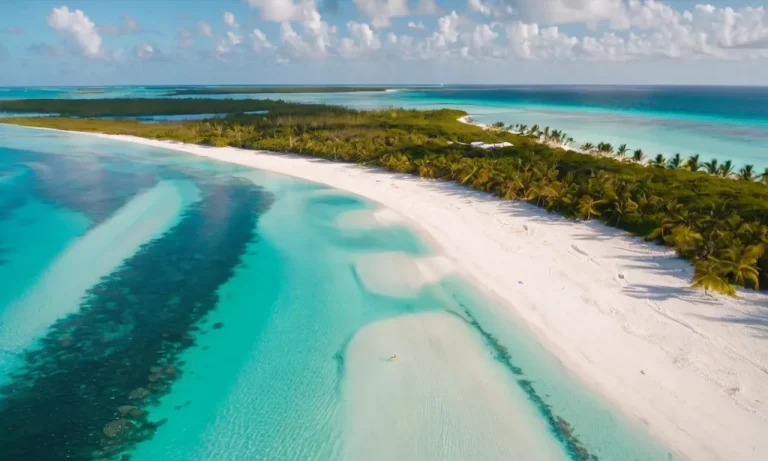
What Is The Closest Caribbean Island To Florida?
With its tropical climate and turquoise blue waters, the Caribbean is a popular vacation destination for many Floridians. But out of the many stunning islands that dot the Caribbean Sea, which one lies closest to Florida’s shores? If you’re short on time, here’s a quick answer to your question: The Bahamian island of Bimini is…

The History And Significance Of The Helios Statue Of Liberty
The Statue of Liberty is one of the most iconic symbols of freedom and democracy in the world. The famous statue welcoming immigrants in New York Harbor is actually a version of an ancient statue – the Colossus of Rhodes. This ancient statue depicted the Greek sun god Helios and stood guard at the harbor…
Call +971506531334 +971558018669

Law For Tourist: A Guide to Legal Regulations for Visitors in Dubai
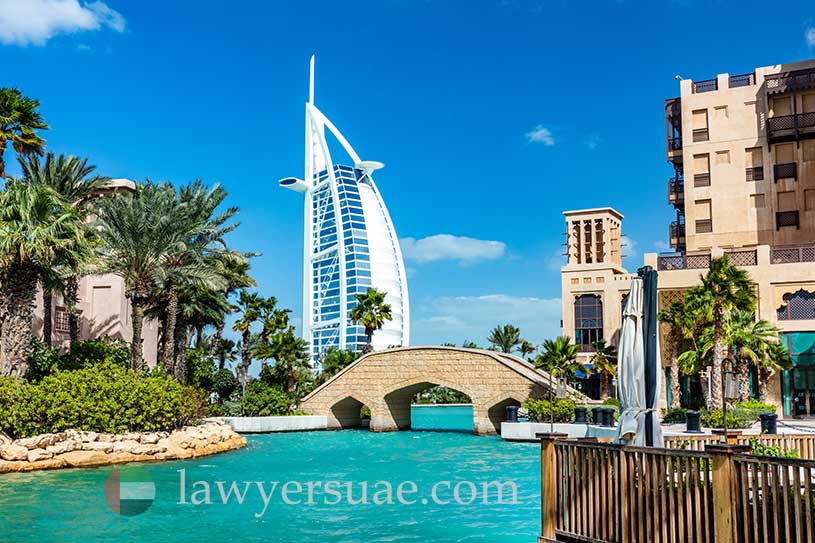
Travel expands our horizons and offers memorable experiences. However, as a tourist visiting a foreign destination like Dubai, you need to be aware of the local laws and regulations to ensure a safe and compliant trip. This article provides an overview of key legal issues that travelers to Dubai should understand.
Introduction
Dubai offers a glitzy modern metropolis intertwined with traditional Emirati culture and values. Its tourism sector continues to boom exponentially, attracting over 16 million annual visitors prior to the COVID-19 pandemic.
However, Dubai also has very strict laws that tourists must respect to avoid fines or deportation . However, violating its strict laws can even lead tourists to find themselves dubai airport detained instead of enjoying their visit. Areas like social code compliance, substance restrictions, and photography have defined legal boundaries.
It’s vital that visitors understand these laws to have an enjoyable and trouble-free experience. We will explore some of the critical regulations and discuss emerging frameworks like the UNWTO’s International Code for Protection of Tourists ( ICPT ) aimed at traveler rights.
Key Laws and Regulations for Tourists
While Dubai has relatively liberal social norms compared to neighboring Emirates, numerous legal and cultural regulations still govern public behavior.
Entry Requirements
Most nationalities require pre-arranged visas for entering Dubai. Some exceptions exist for GCC citizens or visa-exempt passport holders. Key parameters include:
- Tourist visa validity and permitted stay duration
- Passport validity period for entry
- Border crossing procedures and customs forms
Violating these rules can invalidate your visa leading to fines over AED 1000 (~USD 250) or a possible travel ban.
Dubai has a modest yet contemporary dress code:
- Women are expected to dress modestly with shoulders and knees covered. But most Western-style clothing is acceptable for tourists.
- Public nudity including topless sunbathing and minimal swimwear is prohibited.
- Cross-dressing is illegal and can result in imprisonment or deportation.
Public Decency
Dubai has zero tolerance for indecent acts in public, which includes:
- Kissing, hugging, massages or other intimate contact.
- Rude gestures, profanity, or loud/raucous behavior.
- Public intoxication or drunkenness.
Fines generally start from AED 1000 (~USD 250) paired with incarceration or deportation for serious offences.
Alcohol Consumption
Despite its Islamic laws prohibiting liquor for locals, alcohol consumption is legal in Dubai for tourists above 21 years within licensed venues like hotels, nightclubs and bars. However, drink-driving or transporting alcohol without an appropriate license remain strictly illegal. The legal alcohol limits for driving are:
- 0.0% Blood Alcohol Content (BAC) for under 21 years
- 0.2% Blood Alcohol Content (BAC) for over 21 years
Dubai imposes harsh zero-tolerance drug laws:
- 4 years imprisonment for possession of illegal substances
- 15 years imprisonment for consumption/use of drugs
- Death penalty or life imprisonment for drug trafficking
Many travelers have faced detention for possessing prescription drugs entered without appropriate customs disclosure.
Photography
While photography for personal use is allowed, there are some key restrictions tourists should respect:
- Taking photos or videos of people without their consent is strictly illegal. This also covers children.
- Photographing government buildings, military areas, ports, airports or transportation infrastructure is forbidden. Doing so can lead to imprisonment.
Privacy Laws
In 2016, Dubai introduced cybercrime laws banning invasion of privacy without consent especially through:
- Photographs or videos depicting others publicly without approval
- Taking pictures or filming private property without permission
Penalties include fines up to AED 500,000 (USD ~136,000) or imprisonment.
Public Displays of Affection
Kissing or intimacy in public between couples even if married is illegal under Dubai’s indecency laws. Punishments include incarceration, fines and deportation. Hand-holding and light hugging in less conservative places like nightclubs may be permissible.
Protecting Tourist Rights
While local laws aim at cultural preservation, tourists have faced distressing situations like detention over trivial offenses. COVID also revealed gaps in traveler protections and assistance frameworks globally.
International agencies like the UN World Tourism Organization ( UNWTO ) have responded by publishing an International Code for Protection of Tourists ( ICPT ) with recommended guidelines and duties for host countries and tourism providers.
The ICPT principles recommend:
- Fair access to 24/7 hotlines for tourist assistance
- Embassy notification rights upon detention
- Due process for alleged offences or disputes
- Options for voluntary departure without long-term immigration bans
Dubai has an existing Tourist Police unit focusing on visitor safety. Integrating parts of the ICPT by strengthening tourist rights legislation and dispute resolution mechanisms can boost Dubai’s appeal as a global tourism hotspot.
Ways To Get Arrested As A Tourist In The UAE
Importing Goods : It is illegal to import pork products and pornography into the UAE. Also, books, magazines, and videos may be scrutinized and may be censored.
Drugs : Drug-related offences are treated severely. There are stiff penalties for drug trafficking, smuggling, and possession (even in small amounts).
Alcohol : There are restrictions on alcohol intake across the UAE. Muslims are not allowed to take alcohol, and non-muslim residents need a liquor license to be able to drink alcohol at home, or in licensed venues. In Dubai, tourists can obtain a liquor license for a period of one month from two of Dubai’s official liquor distributors. Drink and Drive is illegal.
Dress Code : You can get arrested in the UAE for dressing indecently in public.
Offensive Behaviour : Swearing, making offensive social media posts about the UAE and making rude gestures are considered obscene, and offenders face jail time or deportation.
Although the UAE is a great tourist destination, you need to be careful as little things can put you in the crosshairs of authorities. You will be at a great advantage if you know the laws, customs, and culture. However, if you fall foul of anything, ensure you get the help of an experienced legal practitioner to resolve the problem.
Resolving Tourism Disputes
Travel mishaps can happen even with adequate precautions. Dubai’s legal system blends civil law from Islamic Shariah and Egyptian codes with British common law influences. Key dispute resolution options for tourists facing issues include:
- Filing Police Reports: Dubai Police operate a Tourist Police Department catering specifically to visitor complaints regarding fraud, theft or harassment.
- Alternate Dispute Resolution: Many disputes can be settled through mediation, arbitration and conciliation without undergoing formal prosecution.
- Civil Litigation: Tourists can engage lawyers to represent them in Islamic Shariah Courts for matters like compensation or breach of contracts. However, hiring legal counsel is obligatory for instituting civil proceedings.
- Criminal Prosecution: Serious offences undergo criminal prosecution in Shariah Courts or State Security Prosecutions involving investigative procedures. Consular access and legal representation are vital.
Recommendations for Safe Travel
While many laws aim at cultural preservation, tourists also need to exercise common sense to avoid issues:
- Accessibility: Call government hotline 800HOU to request disabled access information before visiting attractions.
- Clothing: Pack modest attire covering shoulders and knees to avoid offending locals. Shariah swimwear is needed on public beaches.
- Transport: Use metered taxis and avoid unregulated transit apps for safety. Carry some local currency for tipping drivers.
- Payments: Keep shopping receipts to potentially claim VAT refunds on departure.
- Safety Apps: Install government USSD alert app for emergency assistance needs.
By respecting local regulations and utilizing safety resources, travelers can unlock Dubai’s dynamic offerings while staying compliant. Seeking reliable guidance early prevents detrimental legal trouble.
Dubai offers wonderful tourism experiences against a landscape of Arab traditions and futuristic ambitions. However, its laws differ extensively in substance and enforcement compared to Western norms.
As global travel resuscitates post-pandemic, better legal protections for tourists will be vital to restore confidence. Frameworks like the UNWTO’s ICPT signify a step forward if implemented diligently.
With adequate preparation regarding local legislation, travelers can unlock Dubai’s cosmopolitan experiences seamlessly while also respecting Emirati cultural standards. Staying vigilant and acting legally lets visitors embrace the city’s glitzy offerings in a safe and meaningful way.
About The Author
Related Posts
Top indian lawyer representing indian expats in dubai.
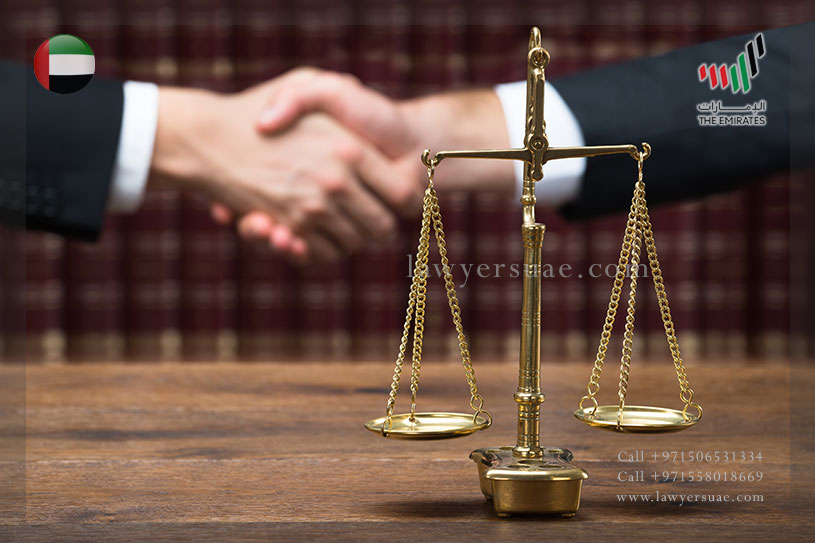
Best French Lawyer for French Expats in Dubai or UAE
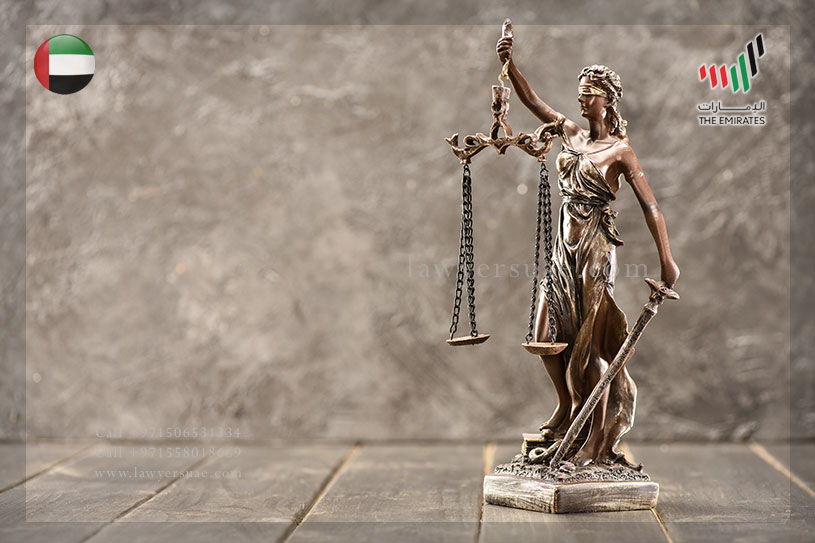
Flexibility in UAE Cybercrime Law: Waiver of Deportation
Leave a comment cancel reply.
Your email address will not be published. Required fields are marked *
Save my name, email, and website in this browser for the next time I comment.
- Search Knowledgebase
- Ask A Question?
Ask us a Question !
Question Title:
Category: – Select Category – Arrest (2) Criminal Case (3) Extradition (1) Tourists (1) Violence and Abuse (0)
Your Email: You will receive an email when your question will be answered.
Captcha: + = Verify Human or Spambot ?

Dubai (UAE) Rules And Laws You Must Know
- September 12, 2023
When you understand Dubai’s laws, rules, and regulations (United Arab Emirates) and appreciate the cultural differences, you can tap into an exceptional lifestyle in Dubai and avoid any issues with Dubai’s legal authorities.
Dubai is a Muslim state. It is strict in its moral and ethical code; it has some different laws to those in the UK, Europe, or America, and if you want to visit or live and work in the UAE you need to pay attention to those regulatory differnces.
Dubai Travel: Rules and Regulations for Expats and Tourists
We have produced a report that compiles the information you need to know and understand if you’re going to have a safe and enjoyable time living or on vacation in the UAE – from dress code to alcohol consumption and drug abuse to holding hands in public.
Expatra Essentials
Save On Your Health Insurance Abroad
Get Free Quotes on Global Health Insurance. Compare Top-Rated Plans from Trusted Insurers Today!
Regulations: Staying in Dubai
While Dubai is one of the most tolerant regions of the Middle East , the Emiratis are still very traditional and conservative people.
They take their culture and heritage seriously, and they expect visitors to respect their values. If you respect Emiratis, they will respect you, and you will find them warm and welcoming.
A to Z: UAE Rules, laws and Regulations
Alcohol consumption.
Non-Muslims are allowed to drink alcohol in Dubai if they are on licensed premises. Some restaurants and most hotels hold a license to serve you alcohol.
In 2020 the UAE introduced new legislation stating that drinking alcohol without a license is no longer illegal in the United Arab Emirates.
Bouncing Cheque (Not being able to pay)
In Dubai, it’s standard practice to pay for large ticket items, such as a car, or even your rent, with forward-dated cheques.
This is because it is very hard for expatriates to get credit or loans, and it’s the accepted method of staggering payments to offer up post-dated cheques.
However, unlike in other countries where bouncing a cheque will probably only generate a reminder letter or phone call, with UAE law, it is a serious criminal offense.
You could potentially be arrested, jailed, and then forced to remain in Dubai until your debt is paid and finally be deported from the country.
Please don’t write a forward-dated cheque unless you are sure you have the funds to cover it.
Dancing in Public
Dancing in public in Dubai is considered indecent . It is also considered provocative, which can be very risky for women.
You can dance freely in any nightclub, venue, or outside event where dancing is permitted.
Dress Code Rules
Visitors are expected to dress conservatively when in public places.
If you’re in a public place, shopping, or at work, you must ensure your clothes are reasonably conservative.
Don’t wear anything see-through or revealing that could be considered indecent. Take care not to wear T-shirts that have anything offensive on them, words, slogans, or images.
In shopping malls, you’ll see signs warning you that if you’re inappropriately dressed, you will be removed. Dress appropriately, and you won’t have any issues whatsoever.
When it comes to sunbathing, you can wear a bikini. However, you cannot sunbathe topless, nor is any form of nudity acceptable – including children.
Before you leave a beach, pool, or water park area, you have to be properly dressed for public places. Even if it’s only a few hundred meters, you can’t walk home in your bikini.
Drink Driving Laws (Zero Tolerance)
You cannot consume any alcohol whatsoever and get behind the wheel in Dubai. There is a zero-tolerance policy when it comes to drink-driving, and you will be imprisoned if you break this very firmly upheld law.
Driving Offenses
When you travel within the UAE, you might be forgiven for thinking that the traffic regulations are very lenient. However, that is not the case.
It is illegal to tailgate, break the speed limit, street race, lane hop, or use a mobile/cell phone while driving.
You will no doubt see many people using phones while driving. Remember, it isn’t legal; don’t risk spoiling your visit with a fine. Dubai has been cracking down on offenders more and more.
Drugs (Zero Tolerance)
As with drunk driving, Dubai laws have zero tolerance for drugs . Whilst you may think that only extends to narcotics that are illegal in our own countries, it actually extends to some prescription and over-the-counter medicines, even poppy seeds.
Even if you’re only traveling through an airport in the UAE on your way to visit another country if you’re caught with what’s deemed to be an illegal substance, you could face an automatic 4-year prison term before deportation.
If you’re thought to be supplying drugs, you could potentially face automatic life imprisonment.
Regarding drugs, the simplest and safest rule to follow is when visiting Dubai, bring absolutely nothing.
Prescription Drugs (Medication)
If you require prescription medicine, you need to check whether what you intend to import is on the banned substances list.
To make sure you won’t get in trouble when crossing the border, download this list of controlled drugs from the dha.gov.ae.
Here are the Drug Control Department’s details in the UAE Ministry of Health so that if you are ultimately left in any doubt, you can contact them before entering Dubai. The details are: Telephone: +971 2 611 7342 / +971 2 633 4958 Fax: +971 2 631 3742 e-mail: [email protected] Or write to: Ministry of Health Drug Control Department Abu Dhabi – UAE
Fundraising Activities (Prior Approval)
Any form of donations and fundraising within the UAE must be approved by the Islamic Affairs and Charitable Activities Department (IACAD) . If you fail to do so, however noble the cause, you will breach the UAE’s charity laws, which could result in imprisonment or a substantial fine.
Loud Music (Public and Residential Areas)
The use of loud music is prohibited in public areas, and dancing in public in non-authorized areas can also get you in further trouble.
You will also find there are often additional local laws that prohibit loud music in residential areas.
Offensive / Rude Behavior
Swearing or making any rude gestures isn’t tolerated and can result in a fine or even imprisonment.
Driving in Dubai can be erratic at times. Remember, road rage is not tolerated. If someone gives your car registration to the police and reports you for swearing or making any rude gestures, you could get a heavy fine.
Photographs (taken without consent)
Taking photos of anyone without their consent is a serious offense under UAE law and can land you in a lot of trouble very quickly.
If you’ve posted any of the images on social media, this will exacerbate the offense, and you will also be charged under cybercrime laws.
Take care in public places that you don’t accidentally photograph someone without their consent.
Possession of Drugs (and other illegal substances)
The penalties for the possession of drugs, even residual amounts, are severe. Including the death penalty if the authorities deemed you were doing something more substantial than personal use.
Also, in the UAE, any presence of drugs in your bloodstream will be regarded as possession of drugs.
Don’t take chances with any illegal substances, even if they are legal in your home country; so-called legal highs in many countries aren’t legal in Dubai.
Public displays of affection (kissing and hugging)
Holding hands in public if you’re a married couple is about as far as you can go regarding public displays of affection. Hugging, kissing, or smooching are not tolerated
Public Transport (Eating and Drinking)
Eating and drinking are prohibited on all forms of public transport. This also includes the stations outside of any official cafe or eatery.
On-the-spot fines can be issued if you’re caught eating.
Ramadan (Rules for Non-Muslims)
The month of Ramadan is the ninth month of the Islamic lunar calendar, during which Muslims fast during daylight hours to help purify the soul and refocus attention on God. Fasting goes beyond eating and drinking; it’s very much about exercising restraint during the holy month.
For non-Muslims in Dubai, it is illegal to eat, drink, or smoke in public during Ramadan, and this includes while in your car!
Some restaurants (normally within hotels) remain open, but you will eat somewhere out of sight.
Of course, you can eat and drink within the confines of your own home. It’s respectful to keep noise levels down during Ramadan, and you’ll notice that during daylight hours, Dubai seems a much quieter place.
Religious Respect and Tolerance
While the primary religion in Dubai is Islam – visitors can follow their own religions, which is tolerated.
However, anything that is an offense against Islam will not be tolerated on any level and will result in fines and/or imprisonment. There is no grey area.
Muslims are called to pray five times a day, and if you’re on the open road or in a public area away from a Mosque, Muslims will pray wherever they are. Please do not disturb them and respect their privacy.
Respect (Avoid Being Disrespectful)
In the UAE, you must be respectful of everyone around you – no matter what perceived cultural, religious, or even class differences there appear to be between you.
If you display improper, disrespectful conduct in public, you can fall foul of the law and face a fine, imprisonment, or even deportation.
While the above is the law, you will probably observe that in Dubai, certain nationalities of workers are treated less well than others.
However, if you’re rude to others, make offensive hand gestures if someone cuts you up in traffic, or issue an expletive if someone pushes in front of you in a queue, be prepared for the fallout.
Respect may not be universally observed in the UAE. However, if you want to live your life without conflict, you will observe respect unilaterally.
If you are in a confrontational situation, stay calm, bite your tongue, and be the grownup.
Sexual Harassment
Possibly a law that should be universal. Staring at women, following them, or taking photos without consent is sexual harassment, and you can be arrested, fined, or imprisoned.
In 2020, the government announced that men who subject women to harassment of any kind would face tougher punishment.
Sexual Relationships (Outside of Marriage)
Relationship laws and rules in Dubai are strict . Unless you are married, you cannot legally have sex.
In 2020, as a part of a significant overhaul of its Islamic personal laws, the Gulf state announced that living together outside marriage is no longer illegal in the United Arab Emirates.
However, it would be ill-advised to start any form of family planning outside of marriage while living in Dubai.
Shopping Malls (Rules To Follow)
Dress codes exist for visits to public places like shopping malls. Clothes should cover the tops of your arms and legs.
Don’t go to a shopping mall wearing beach or swimming clothes. Cross-dressing of any type shouldn’t even be considered.
Be respectful of Ramadan; it is forbidden to eat or drink during daylight hours. There are some exceptions, with restaurants having curtained-off areas for non-Muslims.
Smoking Rules
Smoking is banned in many public offices and shopping malls, so observe the rules.
There are designated smoking areas all over the city, so the ban is not difficult to observe, even for the heaviest smokers!
Social Media (Posting Rules)
Swearing is punishable by up to one year in prison, including your social media posts.
Any indecent language on WhatsApp or other messaging platforms can get you in a lot of trouble and any offensive posts on FaceBook or other social media networks.
This also includes the use of any emojis that contain indecent gestures. Any use of social media that invades another person’s privacy comes with a prison sentence of up to six months.
Users must refrain from insulting or offensive posts which defame Islam or any other religion . Under Article 35 of the UAE Cyber Crime Law, users could face imprisonment of up to seven years, followed by penalties that could range anywhere between AED250,000 to AED1 million.
Working in Dubai (legally)
You should not attempt to work without a permit in the UAE. You must obtain your paperwork before you take up your job – doing it any other way can land you in prison and deportation.
Dubai Rules & Laws – Summary
Most of the laws and rules in Dubai are common sense and familiar to people from most nations.
However, in certain cases – such as dress code and eating during the month of Ramadan the rules are unfamiliar, and care needs to be taken.
It’s not terribly hard to keep within the laws and rules of the UAE. Dubai is a tolerant city and has done much to make visitors from all nations feel welcome and enjoy a rewarding and fulfilling experience during their stay.
You might find useful:
- Living In Dubai – a detailed guide on moving to Dubai;
- Dubai Income Tax & Taxation Advantages For Expats ;
- Working In Dubai – How to Find A Good Job In The UAE .
- Best Neighborhoods In Dubai For Families
Helpful external links:
- Issue of permit to import medicines for personal use – the UAE Ministry of Health and Prevention site.
- An overview of the UAE’s recently updated laws – the official site of the UAE cabinet .
- Internet media regulations in Dubai – the UAE government site .
Expatra Research
Our most popular evergreen guides are kept fresh and up-to-date by our in-house research team. If you have any questions about our guides or the country discussed feel free to contact us or leave a comment below and we'll get back to you.
Leave a Reply Cancel Reply
Your email address will not be published. Required fields are marked *
Name *
Email *
Add Comment *
Save my name, email, and website in this browser for the next time I comment.
Post Comment

- The Founder
- The Emirates
- The Government
- Passport Strength
- Services for UAE Diplomats
- Services for Individuals
- Services for Businesses
- more services
Quick Links
Travel requirements by destination.
- UAE Missions Abroad
- UAE Events and Conferences
The aim of the travel guide page is to provide instructions and advise for Emirati travelers through an interactive map that showcases all the information they need to know before traveling.
Search results ( country ).
- The Kingdom of the Netherlands
- Peoples Democratic Republic of Algeria
- Republic of Albania
- Republic of Angola
- Republic of Côte dIvoire
- Republic of the Congo
- Socialist Republic of Vietnam
- The Federal Democratic Republic of Ethiopia
- The Hellenic Republic
- The Kingdom of Norway
- The Republic of Colombia
- The Republic of Iraq
- The Republic of Kenya
- The Republic of Korea
- The Republic of Tunisia
- The Republic of Uganda
- The Republic of Yemen
- The Union of the Comoros
- Antigua and Barbuda
- Arab Republic of Egypt
- Argentine Republic
- Bolivarian Republic of Venezuela
- Bosnia and Herzegovina
- Brunei Darussalam
- Burkina Faso
- Central African Republic
- Co operative Republic of Guyana
- Commonwealth of Dominica
- Commonwealth of the Bahamas
- Cook Islands
- Czech Republic
- Democratic Peoples Republic of Korea
- Democratic Republic of Sao Tome and Principe
- Democratic Republic of Timor-Leste
- Democratic Socialist Republic of Sri Lanka
- Dominican Republic
- Federal Republic of Germany
- Federal Republic of Nigeria
- Federated States of Micronesia
- Federation of Saint Kitts and Nevis
- Federative Republic of Brazil
- Fedral Republic of Austria
- French Guiana
- French Republic
- Gabonese Republic
- Grand Duchy of Luxembourg
- Hashemite Kingdom of Jordan
- Hong Kong Special Administrative Region of the Peoples Republic of China
- Independent State of Papua New Guinea
- Independent State of Samoa
- Islamic Republic of Afghanistan
- Islamic Republic of Mauritania
- Islamic Republic of Pakistan
- Italian Republic
- Kingdom of Bahrain
- Kingdom of Belgium
- Kingdom of Bhutan
- Kingdom of Cambodia
- Kingdom of Denmark
- Kingdom of Eswatini
- Kingdom of Lesotho
- Kingdom of Morocco
- Kingdom of Saudi Arabia
- Kingdom of Spain
- Kingdom of Sweden
- Kingdom of Thailand
- Kingdom of Tonga
- Kyrgyz Republic
- Lao Peoples Democratic Republic
- Macao Special Administrative Region of the Peoples Republic of China
- New Zealand
- Oriental Republic of Uruguay
- Peoples Republic of China
- Plurinational State of Bolivia
- Portuguese Republic
- Principality of Andorra
- Principality of Liechtenstein
- Principality of Monaco
- Republic of Armenia
- Republic of Azerbaijan
- Republic of Belarus
- Republic of Benin
- Republic of Botswana
- Republic of Bulgaria
- Republic of Burundi
- Republic of Cabo Verde
- Republic of Cameroon
- Republic of Chad
- Republic of Costa Rica
- Republic of Croatia
- Republic of Cyprus
- Republic of Djibouti
- Republic of Ecuador
- Republic of El Salvador
- Republic of Equatorial Guinea
- Republic of Estonia
- Republic of Fiji
- Republic of Finland
- Republic of Ghana
- Republic of Guatemala
- Republic of Guinea
- Republic of Guinea-Bissau
- Republic of Haiti
- Republic of Honduras
- Republic of Iceland
- Republic of India
- Republic of Kazakhstan
- Republic of Kiribati
- Republic of Kosovo
- Republic of Latvia
- Republic of Lebanon
- Republic of Liberia
- Republic of Lithuania
- Republic of Madagascar
- Republic of Malawi
- Republic of Maldives
- Republic of Mali
- Republic of Malta
- Republic of Mauritius
- Republic of Moldova
- Republic of Mozambique
- Republic of Namibia
- Republic of Nauru
- Republic of Nicaragua
- Republic of Niger
- Republic of North Macedonia
- Republic of Palau
- Republic of Panama
- Republic of Paraguay
- Republic of Peru
- Republic of Poland
- Republic of Rwanda
- Republic of San Marino
- Republic of Senegal
- Republic of Serbia
- Republic of Seychelles
- Republic of Sierra Leone
- Republic of Slovenia
- Republic of South Africa
- Republic of South Sudan
- Republic of Suriname
- Republic of Tajikistan
- Republic of the Gambia
- Republic of the Marshall Islands
- Republic of the Philippines
- Republic of the Sudan
- Republic of Trinidad and Tobago
- Republic of Turkiye
- Republic of Vanuatu
- Republic of Zambia
- Republic of Zimbabwe
- Russian Federation
- Saint Lucia
- Saint Vincent and the Grenadines
- Slovak Republic
- Solomon Islands
- State of Eritrea
- State of Kuwait
- State of Libya
- State of Palestine
- Sultanate of Oman
- Swiss Confederation
- Syrian Arab Republic
- The Commonwealth of Australia
- The Federal Democratic Republic of Nepal
- The Federal Republic of Somalia
- The Islamic Republic of Iran
- The Peoples Republic of Bangladesh
- The Republic of Cuba
- The Republic of Indonesia
- The Republic of Singapore
- The Republic of the Congo
- The Republic of the Union of Myanmar
- The Republic of Uzbekistan
- The State of Israel
- The United Kingdom for Great Britain and Northern Ireland
- Togolese Republic
- Turkmenistan
- United Mexican States
- United Republic of Tanzania
- United States of America
- Latest News
- Emergencies
- Environment
- Ask the Law
- Visa+Immigration
- Phone+Internet
- Reader Queries
- Safety+Security
- Banking & Insurance
- Corporate Tax
- Travel & Tourism
- Corporate News
- Electronics
- Home and Kitchen
- Consumables
- Saving and Investment
- Budget Living
- Expert Columns
- Community Tips
- Cryptocurrency
- Cooking and Cuisines
- Guide to Cooking
- Art & People
- Friday Partner
- Daily Crossword
- Word Search
- Philippines
- Australia-New Zealand
- Corrections
- Special Reports
- Pregnancy & Baby
- Learning & Play
- Child Health
- For Mums & Dads
- UAE Success Stories
- Photos & Videos
- Course Reviews
- Learn to Play
- Schedule | Medal Tally
- South Indian
- Health+Fitness
- Best Of Bollywood
- Entertainment
- Special Features
- Gratuity Calculator
- Notifications
- Prayer Times
Travel to and from the UAE: Rules you need to know
- Living In UAE
- The Kurator
Travel guidelines: India, Pakistan, Philippines, Gulf, Arab countries, UK, South Africa
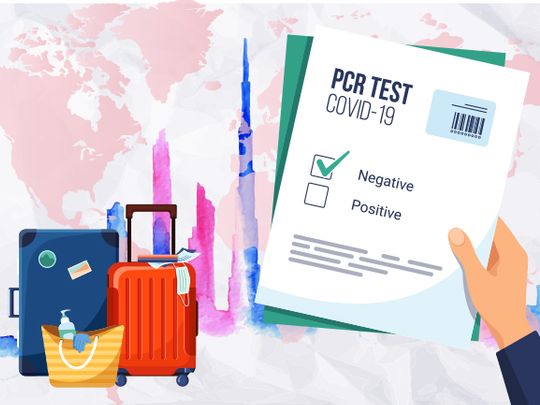
Travelling to the UAE
As per the official UAE government website – u.ae – all travellers to the UAE must present a negative result of a PCR test at the airport of departure. How close to your flight’s departure time you need to get the test done will vary — depending on where you are travelling from. Here are the details:
Travelling to Dubai: rules as of November 30, 2021
Rules for Dubai residence visa holders
All UAE residents can travel to Dubai without an approval from the General Directorate of Residency and Foreigners Affairs (GDRA) or Federal Authority for Identity, Citizenship, Customs and Ports Security (ICA), as per the u.ae,. However, residents travelling from the following countries will need an approval:
- South Africa
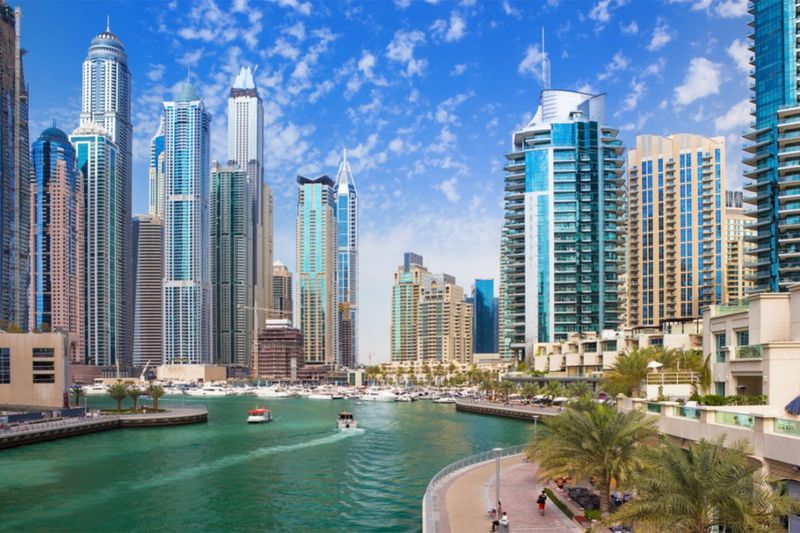
Exemptions:
Approval is not needed for those who got a newly-issued residence or employment visa, short-stay or long-stay visa, 10-year UAE golden visa, investor or partner visa, visit visa or visa on arrival. However, this exemption does not apply to new UAE residence visa holders travelling from Ethiopia.
Requirements for passengers from the above mentioned countries:
Passengers arriving from the countries mentioned above must present a printed or digital negative result (along with a QR code) of a COVID19 PCR test conducted at an approved health facility within 48 hours before departure.
They must also present a negative result (with a QR code) of a rapid PCR test conducted at the departure airport within six hours before departure.
Passengers who have been in the countries listed below in the 14 days preceding their scheduled/intended visit to Dubai, are not permitted to enter the emirate:
Rules for travel from France, Germany, Spain, Switzerland
All passengers travelling to Dubai from France, Germany, Spain, or Switzerland will be accepted for travel if they present either a:
• Negative result for a COVID19 RTPCR test done no more than 72 hours before departure
• A vaccination certificate for a vaccination administered in France, Germany, Spain, Switzerland or the United Arab Emirates.
The vaccination certificate(s) must reflect that the passenger has completed the required doses of a vaccine approved by the World Health Organisation [WHO] and accepted by France, Germany, Spain, Switzerland or the United Arab Emirates.
Rules for travel from the United Kingdom
All passengers travelling to Dubai from the UK must hold a negative result for a COVID19 PCR test done no more than 72 hours before departure. Note that test certificates issued by NHS are not accepted for travel from the United Kingdom.
Note: Passengers travelling from other countries must present a printed negative result of a COVID19 RT PCR test done no more than 72 hours before departure.
Note: SMS certificates are not accepted.
Certificates that have already been presented for travel to another destination cannot be used for reentry even if they are still within the validity period.
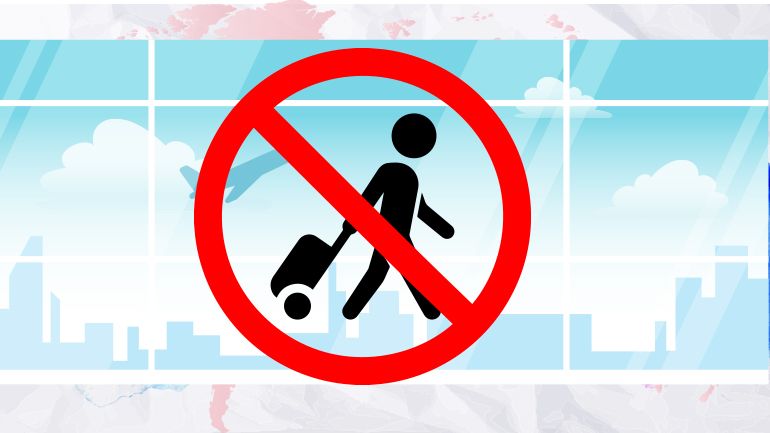
Transiting through Dubai
Anyone who transited through the below listed countries in the 14 days preceding their scheduled/intended visit to Dubai, is not permitted to enter the emirate:
Transit passengers
While the transit passengers must complete all the requirements of their final destination, Dubai mandates that transit passengers from the following countries must present a negative result for a COVID19 PCR test done no more than 72 hours before departure:
However, if the passengers from these countries have a connecting flight through Dubai and are planning to stopover in Dubai, then they must present a negative result (with a QR code) of a COVID19 PCR test conducted within 48 hours since the sample was taken at an approved health facility. In addition, they must also present a negative result (with a QR code) of a rapid PCR test conducted at the departure airport within six hours of departure.

Transit passengers from Ethiopia must present a negative result of a COVID19 PCR test done no more than 72 hours before departure.
All other transit passengers are not required to present this certificate unless it is mandated by their final destination.
Mandatory test on arrival (residents and tourists)
All passengers (residents and tourists) arriving in Dubai from the following countries will be required to take another COVID19 PCR test on arrival at Dubai’s airports:
Afghanistan, Angola, Argentina, Azerbaijan, Bangladesh, Bosnia & Herzegovina, Brazil, Cambodia, Chile, Democratic Republic of Congo, Djibouti, Egypt, Eritrea, Ethiopia, Georgia, Ghana, Guinea, India, Iran, Iraq, Ivory Coast, Jordan, Kenya, Kyrgyzstan, Lebanon, Liberia, Morocco, Myanmar, Namibia, Nepal, Nigeria, Pakistan, Philippines, Romania, Rwanda, Russia, Senegal, Sierra Leone, Slovakia, Somaliland, Somalia, South Africa, South Sudan, Sri Lanka, Sudan, Syria, Tajikistan, Tanzania, Tunisia, Turkey, Turkmenistan, Uganda, Ukraine, Uzbekistan, Vietnam, Zambia, Zimbabwe.
PCR test exemptions
The following people are exempt from getting a COVID-19 test at the departure airport, but have to undergo a test on arrival in Dubai:
- All UAE nationals returning to Dubai from any country.
- Non-UAE nationals accompanying a first-degree UAE national family member.
- Domestic workers accompanying a UAE national sponsor.
The following people are exempt from getting a COVID-19 test:
- Children below 12 years of age.
- Passengers with moderate to severe disabilities.
Note: Moderate or severe disability includes neurological disorders and intellectual or developmental disabilities. For example: Acute spinal cord injury, Alzheimer's disease, Amyotrophic lateral sclerosis (ALS), Ataxia, Autism spectrum, Bell's palsy, Brain tumours, Cerebral aneurysm, Cerebral palsy, Down Syndrome, Epilepsy and seizures
All other passengers, including those who are visually impaired, hearing impaired or physically challenged must hold a negative COVID19 RTPCR test certificate as per the requirements.
There may be specific test exemptions in your country of origin and final destination. Please check the requirements before you travel.
You must remain in your residence until you receive the test result. If the test result is positive, you will be required to undergo isolation and follow the guidelines of Dubai Health Authority.
You must also download the COVID19 – DXB Smart App, which is available for Apple and Android devices.
Travelling to the rest of the UAE - Travel update as of November 29, 2021
Suspended entry
The UAE suspended entry of all those travelling from or transiting through:
In the 14 days before coming to the UAE. The suspension is due to the COVID-19 Omicron variant.
This does not apply to official delegations, UAE nationals, diplomats and holders of UAE golden visa. However, they are required to undergo PCR tests prior to departure and on arrival to the UAE, in addition to 10-day quarantine after entering the UAE.
Rules for tourists
Citizens of all countries can visit the UAE for tourism, if they are fully vaccinated with one of the WHO-approved COVID-19 vaccines .
They must undergo a rapid PCR test at the airport on arrival.
Download the Al Hosn app
The Al Hosn app is the official COVID-19 app, and a Green Pass on the app may be required to enter various events and venues.
Travellers wishing to receive the benefits provided to individuals vaccinated in the UAE can register information about their vaccination via the ICA platform or the Al Hosn app .
Travelling from India to the UAE
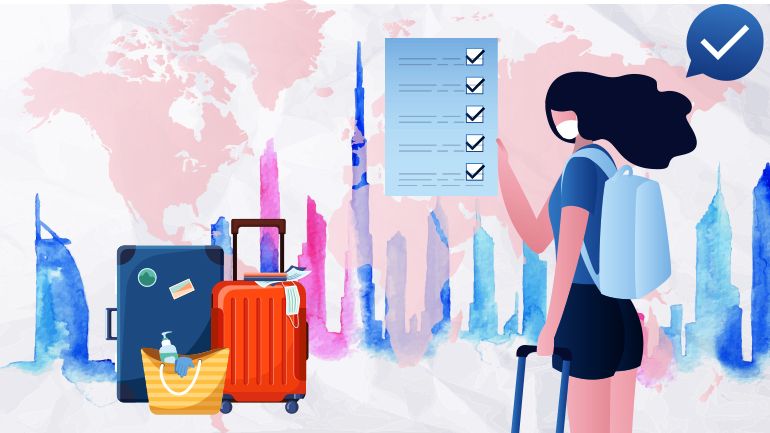
If you are travelling from India to the UAE, these are the steps you would need to follow:
1. Entry permit/GDRFA or ICA approval : An approval from the General Directorate of Residency and Foreigners Affairs (GDRA) or Federal Authority for Identity, Citizenship, Customs and Ports Security (ICA) is not required for tourists travelling to the UAE.
If you are a UAE resident, you would need to apply for a GDRFA or ICA approval .
2. PCR test within 48 hours - A valid negative COVID-19 PCR test certificate with a QR code for a test conducted within 48 hours is required; validity should be calculated from the time the sample was collected, prior to departure from an approved health facility.
3. A rapid PCR test report with a QR code for a test conducted at the departure airport within six hours of departure.
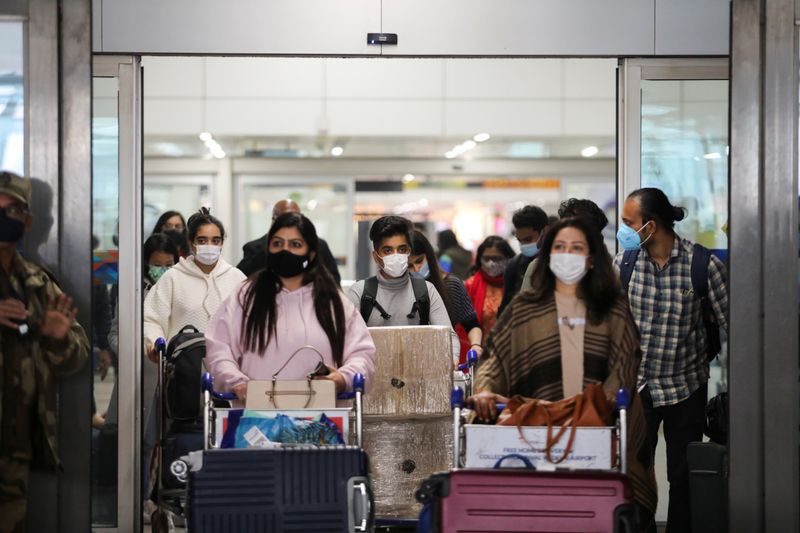
India travel guidelines
While India has extended the ban on scheduled international flights to the end of January 2022 , passengers from the UAE can still travel to India as the UAE and India have signed an air travel agreement.
India’s Ministry of Health and Family Welfare (MOHFW) also issued guidelines for international passengers arriving in the country on November 30, following concerns related to the latest COVID-19 variant.
“The existing guidelines have been revised in view of reporting of a new variant of SARS-CoV-2 (B.1.1.529; re-named Omicron) which has been now classified as Variant of Concern by the World Health Organisation (WHO),” the guidelines read.
These guidelines came into effect from December 1, 2021 and include special quarantine and genome testing requirements for passengers arriving in India from certain countries.
What are the’ red list’ countries?
List of countries from where travellers would need to follow additional measures on arrival in India, including post-arrival testing
(List updated on November 30, 2021)
- Countries in Europe including The United Kingdom
- New Zealand
Flying from the UAE to India
Based on the guidelines, these are the steps you need to complete:
1. Take a PCR test within 72 hours of your flight’s departure time. You would need to submit the negative result of this test while filling out the Air Suvidha form.
2. Submit self-declaration form on the online Air Suvidha portal – before the scheduled travel, including last 14 days travel details.
3. On arrival PCR test, a random sample of 2% of travellers will be asked to take a PCR test. If they test positive, the sample will be sent for genome testing and treatment will be followed as per laid down protocol. If the test result is negative, they will be asked to self-monitor their health for 14 days.
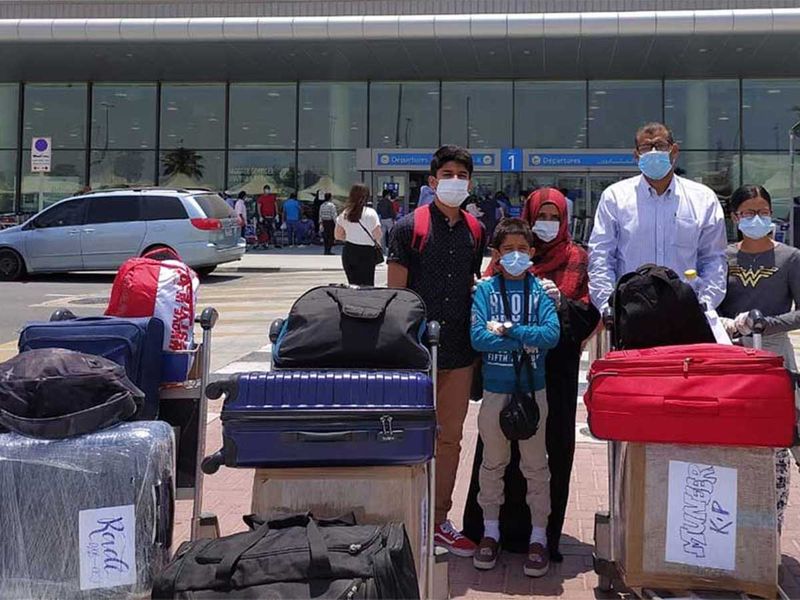
Important note: Based on each state’s requirements, you may also need to pay for on-arrival testing. This information will be provided by individual airport authorities.
4. If you are travelling from one of the countries that are listed as at risk , you will need to follow the following protocol:
- Submission of sample for post-arrival COVID-19 test at the point of arrival (self-paid). Such travellers will be required to wait for their test results at the arrival airport before leaving or taking a connecting flight.
- If they test negative, they will follow home quarantine for seven days. A re-test will be done on Day 8 of arrival in India; and if negative, further self-monitoring of their health is required for the next seven days.
- However, if such travellers test positive, their samples should be sent for genomic testing at one of the labs in the Indian SARS-CoV-2 Genomics Consortium (INSACOG) laboratory network.
- They shall be managed at separate isolation facility and treated as per laid down standard protocol including contact tracing.
- The contacts of such positive case should be kept under institutional quarantine or at home quarantine monitored strictly by the concerned State Government as per laid down protocol.
Children exempted from PCR testing
The guidelines also provide exemptions from the PCR testing requirements to children:
Children under five years of age are exempted from both pre- and post-arrival testing. However, if found symptomatic for COVID-19 on arrival or during home quarantine period, they shall undergo testing and treated as per laid down protocol.
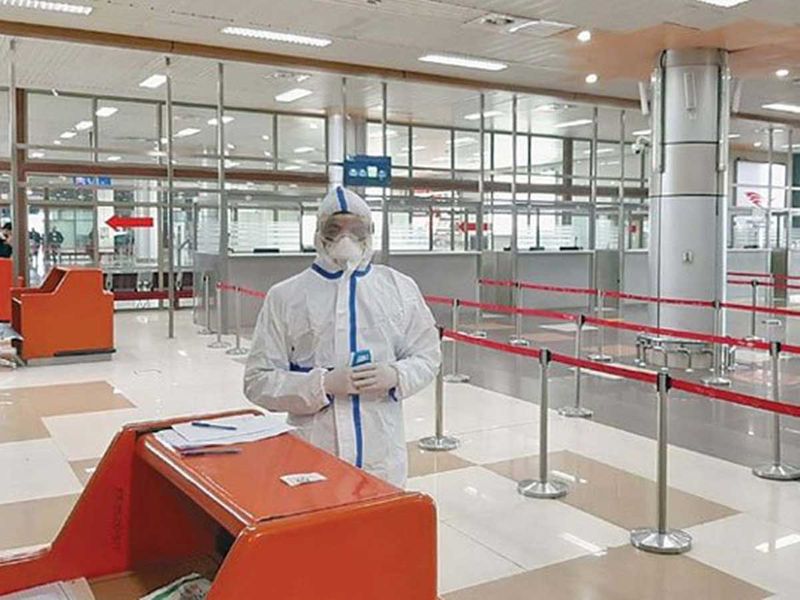
Travelling to Pakistan from UAE
Pakistan government has updated the guidelines for passengers travelling from the UAE to Pakistan, effective from December 8, 2021. All passengers travelling to Pakistan from UAE must be vaccinated. Foreign passports holders below the age of 18 are exempted.
- All passengers travelling to Pakistan from UAE must be vaccinated. Foreign passports holders below the age of 18 are exempted.
- Pakistan national passengers 15 years and above must be fully vaccinated before travelling to Pakistan. Passengers who are medically advised against COVID19 vaccination are also allowed, provided they have a medical certificate.
Non-vaccinated Pakistani nationals, travelling from the UAE or any other country are exempted from mandatory vaccination on the following conditions:
- Pakistani deportees
- Passengers who have an expired visa or Emirates ID or are illegal immigrants/deportees.
- Passengers who have pending legal cases.
- Passengers who are medically advised against COVID19 vaccination and have a medical certificate, stating the disorder.
- Pregnant women.
- Passengers who have been partially vaccinated in Pakistan.
There is no requirement of completing 14 days after second dose of vaccination.
All passengers 6-years old and above, travelling to Pakistan must present a negative certificate for a COVID19 RT PCR test, conducted within 48 hours before the departure of their flight.
Rapid antigen testing will be conducted for all passengers on arrival at any of the Pakistani airports. Effective December 8, 2021, passengers arriving in Pakistan through transit flights via Saudi Arabia, the United Arab Emirates and Qatar will also undergo Rapid Antigen testing on arrival.
Passengers between 6 and 12 years old who test positive for COVID19 on arrival in Pakistan will undergo a 10 day home quarantine, following strict Trace, Test and Quarantine (TTQ) protocols.
Forms and Apps
It is mandatory for passengers travelling to Pakistan to complete the personal details on the web portal or the App, and will be required to present a paper print of the form at the time of checkin. Pass Track registration (https://passtrack.nitb.gov.pk/login) is a requirement for preboarding.
The following passengers are exempted from the COVID19 PCR test requirement as well as PASS TRACK registration.
- Children aged five and under
- Incapacitated passengers
- High level international delegations
Travelling to the Philippines
The Philippines originally planned to allow the entry of fully-vaccinated international travellers and tourists from "green" countries, territories or jurisdictions tagged as "low risk” for COVID-19 from December 1 to 15. This is no longer the case.
On November 28, 2021, Manila announced fresh travel curbs for in-bound travellers from 7 more countries amid the new threat from Omicron. Travel rules are updated often. On Tuesday (December 7, 2021), the Inter-Agency Task Force (IATF) said they have agreed not to add more countries to the Philippines’ “red list”. On Friday (December 10), however, the Asian country added Portugal to the red list on Friday, December 10, 2021.
There are more than 30 destinations in the Philippines, including the world-famous Boracay, now open — but only for fully-vaccinated domestic tourists. Local governments in these destinations have lifted quarantine and PCR-test rules.
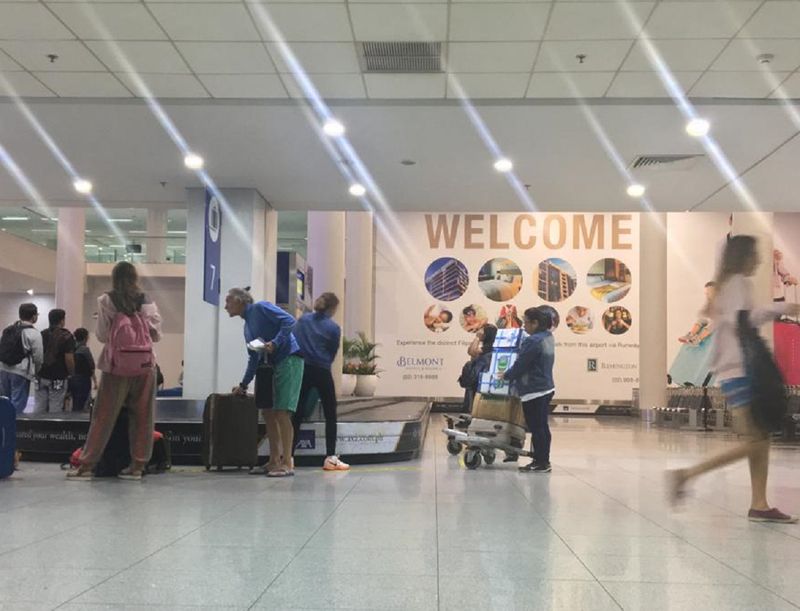
Philippines still closed to international tourists
A: “Yes”. At the moment, only "Balikbayans”, overseas Filipino workers (OFWs) , and those with long-term visas from green and yellow list countries — may be allowed entry to the Philippines. Omicron’s emergence has scuttled hopes for the revival of the tourism industry — which accounts for a significant chunk of the country's GDP, up to 12.8% in 2019.
If you plan to travel
If you plan to travel, it is best to keep tabs of fresh restrictions. The planned December 1 opening to fully-vaccinated international tourists was delayed amid the growing Omicron threat. There are hopes that Omicron's setback will be short-lived.
Travelling to other Gulf and Arab countries
Months after relaxing coronavirus-related travel restrictions, several Arab countries have reimposed curbs and banned flights with some parts of the world over concerns of the new virus variant Omicron. The latest moves dampen the mood for the New Year holidays.
The following is a glance at the restrictions and travel guidelines in place:
Saudi Arabia
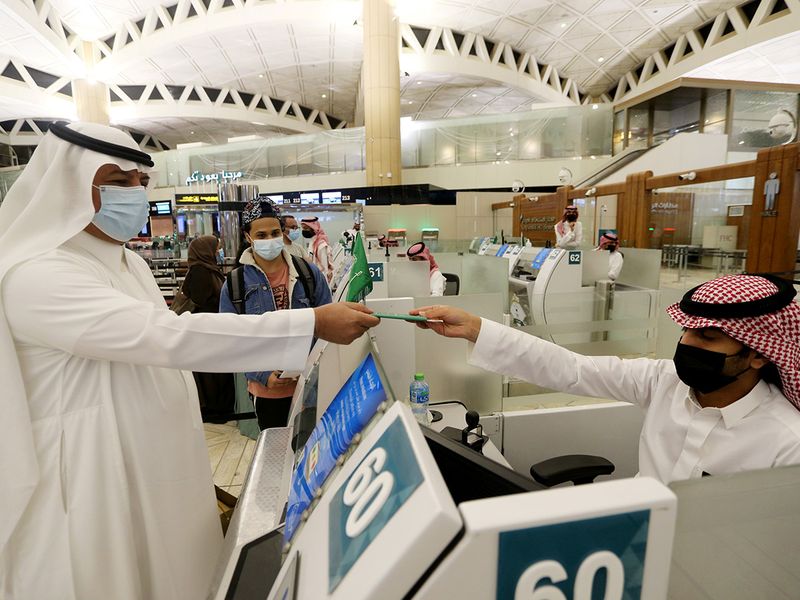
Good news: From December 1, Saudi Arabia has lifted a health ban on direct flights from six countries, namely, India, Indonesia, Pakistan, Brazil, Vietnam and Egypt.
Now people can travel directly from these countries to Saudi Arabia without having to spend 14 days outside them before entering the kingdom. Mandatory arrival procedures in Saudi Arabia still include presenting a valid PCR certificate issued 72 hours before the flight, registration on the Qudum platform and institutional quarantine for five days regardless of the immunisation status outside the kingdom.
Bad news: Saudi authorities have introduced a temporary halt to flights with 14 African countries due to concerns over Omicron.
They are Malawi, Zambia, Madagascar, Angola, Seychelles, Mauritius, Comoros, South Africa, Namibia, Botswana, Zimbabwe, Mozambique, Lesotho, and Eswatini. Accordingly, expatriates are denied entry into the kingdom if they have been in any of these countries within the last 14 days before arrival.
Citizens and expatriates allowed entry into the kingdom are required to quarantine for five days, including those who have been vaccinated.
On December 1, Saudi Arabia announced detecting its first case of Omicron in a citizen arriving from an unnamed North African country.
The Saudi General Authority of Civil Aviation (GACA) has recently instructed all airlines operating in the country to allow direct entry from all countries for passengers who received one dose of the vaccine inside the kingdom. The procedure took effect as of December 4.
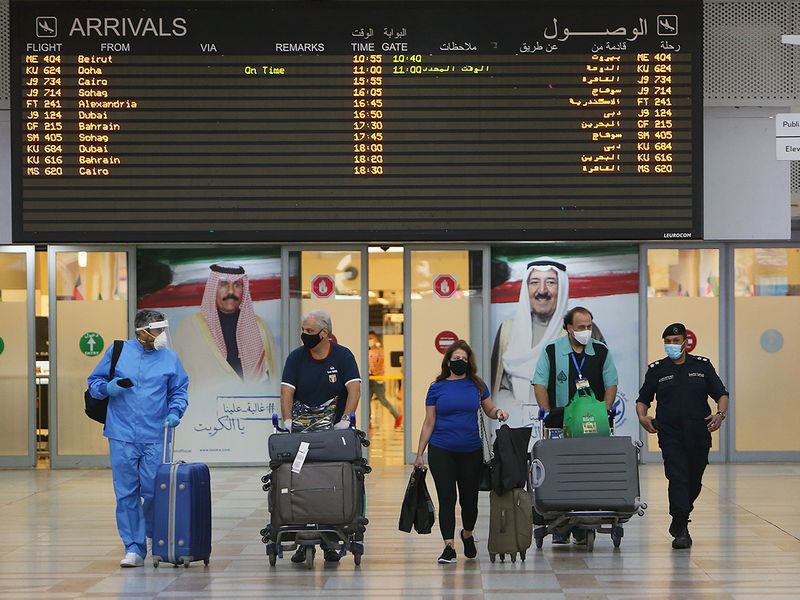
Omicron concerns have prompted Kuwaiti authorities to suspend flights from 9 African nations starting from November 27 until further notice.
They are South Africa, Namibia, Botswana, Zimbabwe, Mozambique, Lesotho, Eswatini, Zambia and Malawi. Expatriates arriving from these countries are barred from entering Kuwait unless they have stayed for at 14 days outside them.
Kuwaiti citizens coming from these countries have to go into institutional quarantine for seven days and undergo testing on arrival.
All arrivals in Kuwait are required to submit a negative PCR test certificate. Kuwait confirmed its first Omicron case Wednesday.
After a seven-month ban, as of August 1, expats are free to travel to Kuwait as long as they received two doses of an approved vaccine. They are the Pfizer-BioNTech, Oxford, Moderna and Johnson & Johnson vaccines.
Passengers who have received two doses of Sinopharm, Sinovac and Sputnik vaccines can only enter the country if they take a third dose of one of the vaccines recognised by Kuwait.

In an effort to head off the spread of new COVID-19 strains in the country, Oman updated its travel policy on November 27. According to the latest update, Omani citizens, foreign residents and travellers with valid visas are allowed to enter the country without prior approval.
Not permitted
Passengers arriving from South Africa, Namibia, Botswana, Zimbabwe, Lesotho, Eswatini, and Mozambique and those who have been in these countries within 14 days from the date of arrival are not permitted to enter Oman.
Omanis, diplomats, health workers, and their families as well as citizens of these seven countries who have valid residence in Oman are excluded from the ban. However, they all are required to do a COVID-19 PCR test upon arrival and go into mandatory seven-day institutional quarantine. They will have to take another COVID-19 test on the sixth day.
Vaccine certificate
All arrivals in Oman are required to present a COVID-19 vaccine certificate containing a QR code stating that they have received two doses of any COVID-19 vaccine approved in Oman.
They are Pfizer/ BioNTech, Oxford Astrazeneca, Covishield AstraZeneca, Sputnik, Sinovac, Moderna, and Sinopharm, or a single dose of Johnson & Johnson. The last dose must have been received not less than 14 days before the arrival time.
Pre-registration
Moreover, all travellers coming to the sultanate are required before their arrival to: pre-register via (https://covid19.emushrif.om) and upload the vaccine and PCR certificates, both containing QR codes.
Should the passenger prefer to conduct the PCR test upon arrival, he/she shall pay the prescribed fees when registering. All arrivals in Oman are required to obtain international health insurance to cover the cost of one month's treatment of COVID- 19, with the exception of Omanis, citizens of the GCC states and travellers with a free treatment card.
Travellers under 18 and those with medically confirmed health conditions that prevent them from taking the vaccination against COVID-19 are exempted from presenting the vaccine and PCR certificates.
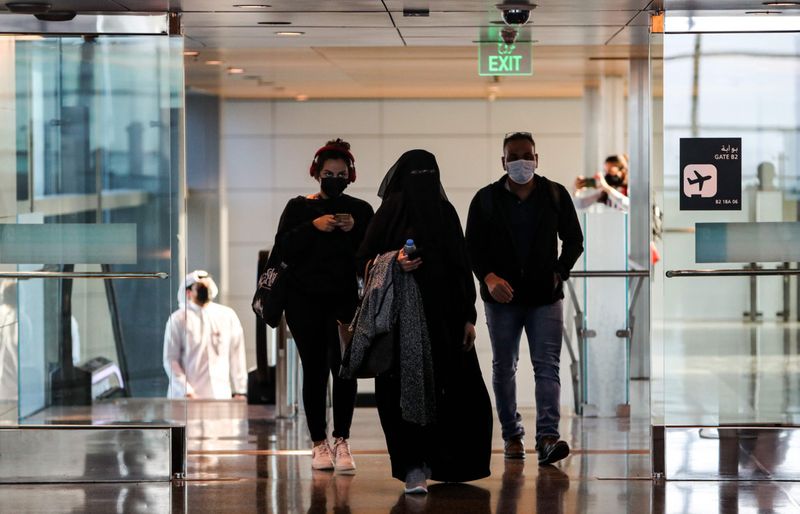
Non-residents of Qatar are required to register via a pre-registration system on www.ehteraz.gov.qa website and upload all relevant documents such as vaccine certificates at least three days before arrival.
Although pre-registration is optional for Qatar’s citizens and foreign residents, all individuals heading to the country are recommended to pre-register to facilitate their entry procedures upon arrival.
Moreover, a PCR test result is no longer required during the electronic pre-registration process. Instead, travellers must present the original copy of the PCR test result to the airlines to allow them to board the plane, or at the country’s ports. Qatari health authorities have the right to conduct random examinations of passengers upon arrival in the country.
All passengers must sign an undertaking and a pre-arrival acknowledgment form available on the Ministry of Public Health website, pre-registration platform ( www.ehteraz.gov.qa ) and airline online booking form.
PCR test required
Travellers must take a PCR test result at medical centres accredited by health authorities in the country of departure. The result must be negative and must be done 72 hours before arrival in Qatar.
Arrivals in Qatar should go to the COVID-19 test clinic at the access port should they experience any coronavirus-related symptoms and take the necessary isolation measures.
Recognised vaccines
Vaccines recognised by Qatar are BioNTech, Moderna, AsraZeneca and Johnson & Johnson, while the conditionally approved vaccines are Sinopharm, Sinovack, Sputnik and Covaxin.
A serology antibody test with a positive result is mandatory before travelling to Qatar for people with two doses of a conditionally approved vaccines and 14 days after the second dose, in which case only the traveller will be considered fully immune.
People, who have obtained two doses of a conditionally approved vaccine followed by one dose of Pfizer or Moderna vaccine and after 14 days from the last dose, will be considered fully immune.
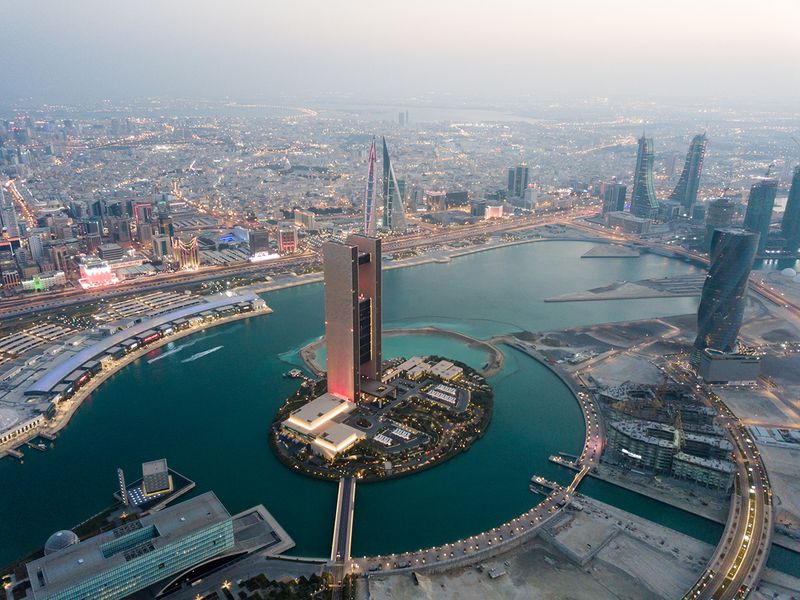
The kingdom has placed 11 African nations on its travel Red List, banning travellers from them amid concerns over Omicron.
Travel ban for red-list countries
They are: South Africa, Namibia, Botswana, Zimbabwe, Lesotho, Estwatini, Malawi, Mozambique, Angola, Zambia and Nigeria.
Passengers from the "Red List" countries, including those who have transited through them, are barred from entering Bahrain.
Exception is made for the Bahraini citizens and foreign residents.
Effective from November 14, the kingdom started applying domestic quarantine instead of obligatory institutional isolation for unvaccinated arrivals in the kingdom.
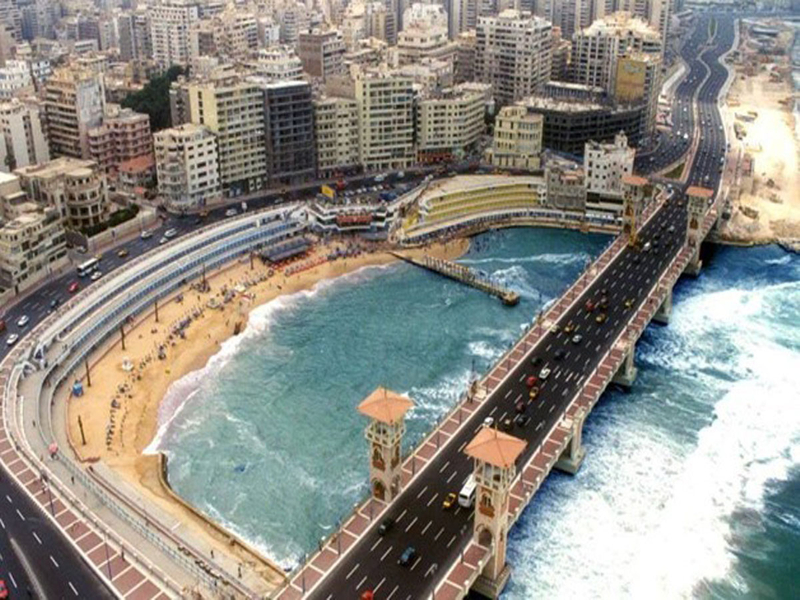
Travellers to Egypt are allowed entry provided they show documents proving they have been fully inoculated by vaccines recognised by the World Health Organisation (WHO) and the Egyptian Drugs Authority, with the second dose obtained at least 14 days earlier. The documents must contain the QR code.
Passengers are also required to show a negative PCR test conducted 72 hours at most before arrival in Egypt. Travellers from countries affected by new COVID-19 variants have to undergo the quick ID NOW testing.
Flights suspended
In response to the Omicron emergence, Egypt has temporarily suspended flights with South Africa. The flights are due to resume on December 16. Passengers coming aboard indirect flights from South Africa, Lesoto, Botswana, Zimbabwe, Mozambique, Namibia and Estwatini have to undergo the quick ID NOW test. Anyone testing positive is sent back on the same flight. Those testing negative have to go into domestic self-isolation for seven days and undergo a PCR test at the end of the quarantine period.
Except children under 12, all travellers going to Lebanon are required to show a negative PCR test result done at medical centres authorised in the country of departure 96 hours at most before results are released. The documents must contain a QR code.
Passengers, who do not show such negative results are barred from boarding flights to Lebanon. Holders of the PCR results, done in the US, Australia, Canada, New Zealand, South Korea, Japan and all European countries are exempted from the QR code. All arrivals at the Rafik Al Hariri airport in Beirut have to do a new PCR test upon arrival. Children under 12 and the UN peacekeepers are exempted from this testing. All carriers are obliged to charge Lebanon-heading passengers 50 dollars each as a cost of the PCR test.
Passengers, who have received the second dose of an anti-coronavirus vaccine at least two weeks before arrival in Lebanon, are exempted from the pre-departure test, but they have to do post-arrival testing.

Last October, Morocco halted until further notice flights with the UK, Germany, France and the Netherlands due to a spike in virus cases reported in them.
Last month, the North African kingdom banned travellers from South Africa, Botswana, Zambia, Lesotho, Estwatini, Mozambique and Zimbabwe due to Omicron concerns. As of November 29, Morocco stopped all incoming flights with the outside world for two weeks as a precaution against Omicron.
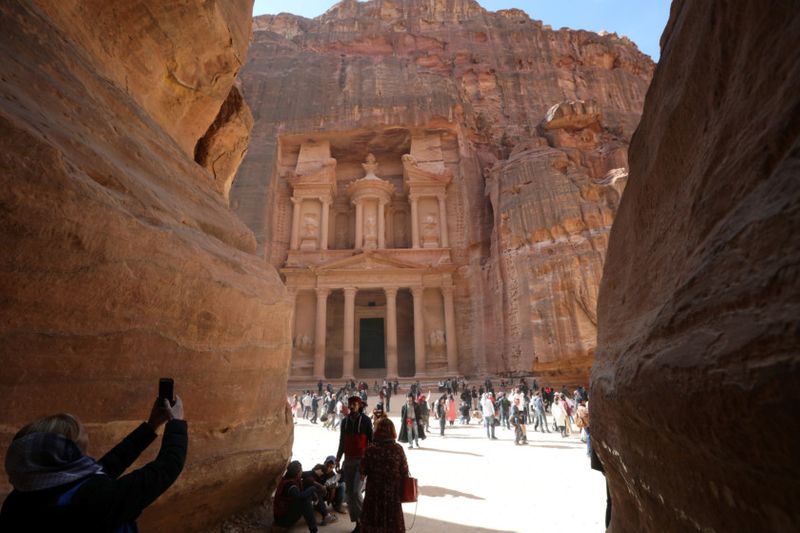
Prompted by Omicron concerns, Jordan last month, barred entry of foreign travellers from seven African countries unless they have stayed for at least 14 days elsewhere.
These countries are South Africa, Namibia, Botswana, Zimbabwe, Mozambique, Lesotho and Estwatini.
Jordanians, arriving in the homeland from these countries, are held in institutional quarantine for 14 days.
According to the kingdom’s travel instructions, all passengers whether vaccinated or not are required to bring a negative PCR test from the country of departure. The test should be done within a maximum of 72 hours prior to departure.
Fully-vaccinated travellers from certain countries are no longer required to do a PCR test upon arrival in Jordan.
These are: Australia, Austria, Bahrain, Belarus, Belgium, Bulgaria, Canada, China, Croatia, Cyprus, Czech Republic, Denmark, Estonia, Finland, France, Germany, Gibraltar, Greece, Hungary, Ireland, Italy, Japan, , Kuwait, Latvia, Lithuania, Liechtenstein, Luxemburg, Malaysia, Malta, Morocco, the Netherlands, New Zealand, Norway, Oman, Palestine, Poland, Portugal, Qatar, Romania, Russia, Saudi Arabia, Slovakia, Slovenia, South Korea, Spain, Sweden, Switzerland, Taiwan, Tunisia, Turkey, the UAE, the UK and the US.
All travellers are required to complete a health declaration if arriving by air, obtain health/travel insurance, and visit https://gateway2jordan.gov.jo/form to complete the required travel declaration and obtain a personal QR code mandatory for boarding.
Passengers have to present the documents upon arrival, including a negative PCR test result from the country of departure, and the vaccination certificate.
In case of a positive result, travellers must go into home quarantine for 14 days and do the PCR test on the 14th day of quarantine at their own expense.
Travel to the UK
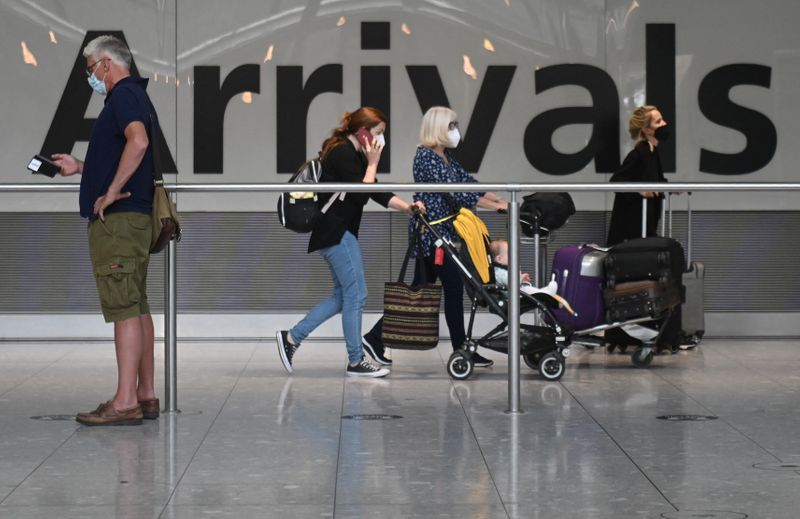
Planning to travel to the UK? Here’s what you’ll need to know and expect.
Passenger locator form
All UK arrivals must complete a Passenger Locator Form before arriving in the UK. As of December 7, anyone entering the UK must also provide proof of a pre-departure negative COVID-19 test taken no more than 48 hours before travel. This applies to vaccinated passengers and children aged 12 and above.
Pre-departure test
When is it best time to take a pre-departure test? Take the test as close to your departure as possible. This is because omicron has a “reduced incubation period.” However, it must be done in the 48 hours before your departure time.
PCR test at Day 2
Currently, anyone entering the UK must quarantine until they receive the results of a PCR test taken on their second day in the country. Unlike the pre-departure test, the Day 2 test must be a PCR test.
Therefore, you must book your day 2 test before you arrive at the airport to take your flight to the UK.
Anyone testing positive faces a 10-day quarantine.
All travellers from green list countries to England, Wales, Scotland and Northern Ireland must book and pay for a day two test.
I’m only in the UK for less than 48 hours - do I still need to book a day 2 test?
Yes - if you’re travelling from abroad you will still need to book a day 2 test, even if you are in the UK for less than two days.
How do I get a day 2 test?
There are lots of different companies that you can book a test through online. But not all test providers are created equal.
In terms of private providers, some companies offer at-home options sent by mail, or in-person testing.
Approved vaccines
You must have had a complete course of one of the following vaccines at least 14 days before you arrive in England:
- Oxford/AstraZeneca
- Pfizer BioNTech
- Janssen (single dose vaccine)
- Sinovac-CoronaVac
- Sinopharm Beijing
These are the shots on the UK’s list of approved vaccines for in-bound travel.
2 dose vaccines or a combination?
- If you were vaccinated with a 2-dose vaccine, or a combination of them, you must have had both doses to be considered fully vaccinated for travel to the UK.
- This applies in all cases, even if you’ve recently recovered from COVID-19 and have natural immunity.
- Those who have had COVID-19 and have only had one dose of a 2 dose vaccine must follow the rules for unvaccinated arrivals.
- Where 2 doses of a vaccine are required for a full course, you can:
- Mix 2 different types of vaccine from the above list, for example Oxford/AstraZeneca and Sinopharm Beijing.
What about non-vaccinated travellers?
Non-vaccinated travellers to the UK from green list countries must do a pre-departure negative test and book and pay for a day two and day eight PCR test.
Non-vaccinated green travellers must also quarantine at home, or at the place they are staying, for 10 days.
Non-vaccinated arrivals into England may also present proof of a negative pre-departure test via the EU Digital COVID Certificate.
Non-vaccinated travellers quarantining in England may be able to end quarantine early via the Test to Release scheme. Test to Release does not apply in Scotland, Wales and Northern Ireland.
Travelling to South Africa
If you’re travelling to South Africa, you are required to take a COVID19 PCR test. Download the COVID Alert South Africa app and complete the traveller health questionnaire before departure.
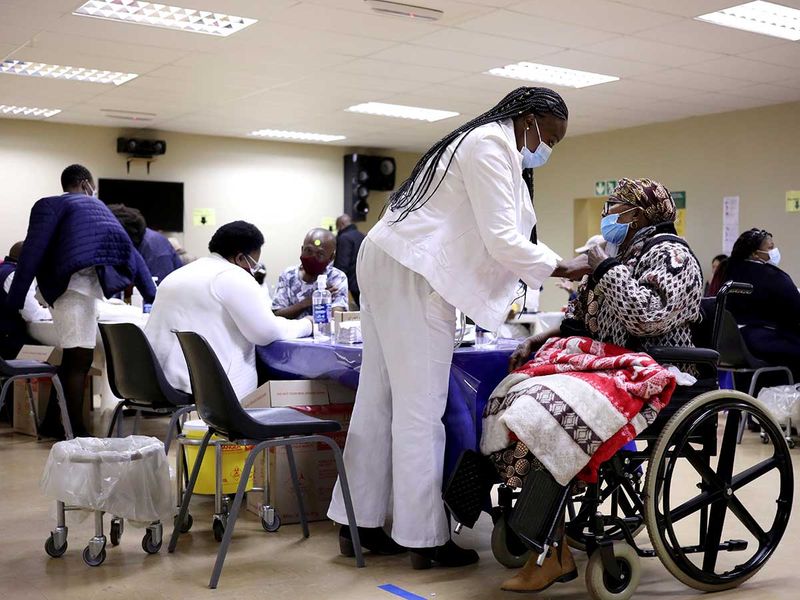
PCR test
International arrivals must fly into Johannesburg, Durban or Cape Town within curfew hours, under the following conditions:
- All travellers must complete a screening form within 48 hours of their trip to produce on their device at the airport.
- On arrival, they must present a paper copy of a negative PCR test taken within 72 hours of arrival.
- It must be signed by the person who took the test. You should take several copies, in case you have to hand them over at different stages.
- Those arriving without a test will be subject to an antigen test and will be quarantined for 10 days at their own expense if they test positive.
Screening
Upon arrival, all visitors will be screened for any COVID-19 symptoms by Port Health, including a questionnaire prior to disembarking the flight as well as a temperature check.
Should the traveller’s temperature be over 37 degrees Celsius or exhibit any symptoms, secondary screening will be conducted, at the traveler’s cost.
All travellers are encouraged to abide by all COVID-19 health and safety protocols including sanitising of hands, wearing of masks and social distancing.
Children below the age of 5 years are exempted from COVID 19 PCR test.
Required forms and apps
All passengers must complete the traveller health questionnaire before arrival. All passengers must install the COVID Alert South Africa app prior to travel.
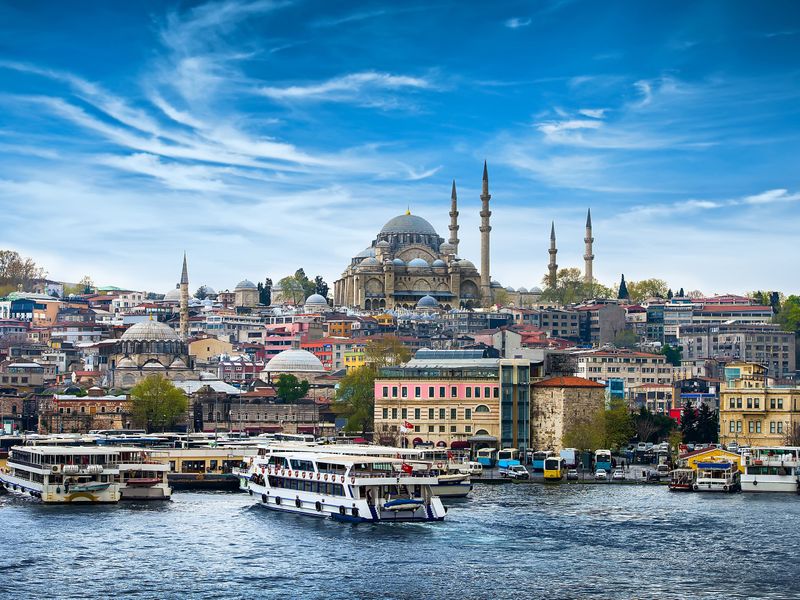
Leisure travel from the UAE
Online booking website Musafir said Turkey, Georgia and Armenia are among the most popular winter destinations from the UAE, with demand emerging for places such as Serbia and Albania as well. “The visa processes for these countries are quite hassle free; this combined with the activities on offer at scenic spots make these countries quite the perfect long weekend destination,” said Rajesh Babu, Chief Commercial Officer at Musafir. UAE citizens and residents can travel to Turkey under the following conditions:
All passengers must complete the required forms within 72 hours before departure.
For vaccinated passengers:
Present a vaccination certificate for an approved vaccine by EU/WHO/EMA. Passengers must have completed their COVID‑19 vaccination at least 14 days before arrival. A COVID‑19 PCR test is not required for vaccinated passengers.
Non‑vaccinated passengers:
- Submit a negative COVID‑19 PCR test result taken at most 72 hours before arrival in Turkey, or a Rapid Antigen test with a negative result taken within the last 48 hours before their arrival in Turkey,
- Present proof of recovery from COVID‑19 within the last 6 months.
Children below 12 years are exempted from the COVID‑19 PCR test and are not required to provide a vaccination certificate.
Quarantine
Passengers who have been in South Africa, Botswana, Mozambique, Namibia and Zimbabwe in the last 14 days must submit a negative PCR Test result taken at most 72 hours before arrival to Turkey.
These passengers are subject to quarantine for 14 days at places determined by the governorships. Expenses for accommodation and transfers from airports will be borne by passengers. On the 10th day of quarantine, a PCR Test will be performed and if the result is negative, quarantine will be lifted. Passengers who do not have a PCR Test on the 10th day will remain in quarantine until the 14th day.
Passengers arriving from the above mentioned countries, must pay the accommodation fees before arriving to Turkey. Passengers who cannot prove that they have made the necessary payments to stay at the places determined by the governorships, shall not be allowed to board the plane by airline operators.

What do you need
Passengers must submit a pre-registration form (https://tinyurl.com/krzcafmu). This does not apply to:
- Citizens of Georgia residing in Georgia;
- Passengers with a COVID-19 vaccination certificate showing that they were fully vaccinated.
The vaccination certificate must be in English. Moreover, passengers with a positive COVID-19 test issued at most 100 days before arrival and a COVID vaccination certificate showing that they received one dose at least 14 days before arrival.
Vaccines accepted are: AstraZeneca (Vaxzevria), AZD1222 (SK Bioscience Co Ltd.), Covishield, Janssen, Moderna, Pfizer-BioNTech, Sinopharm and Sinovac. The vaccination certificate must be in English.
Passengers entering Georgia with a COVID-19 PCR test result will be required to undergo a further COVID-19 PCR test on the third day after entering Georgia at their own expense. Additionally, they must complete the online registration form and present the confirmation email at check in.
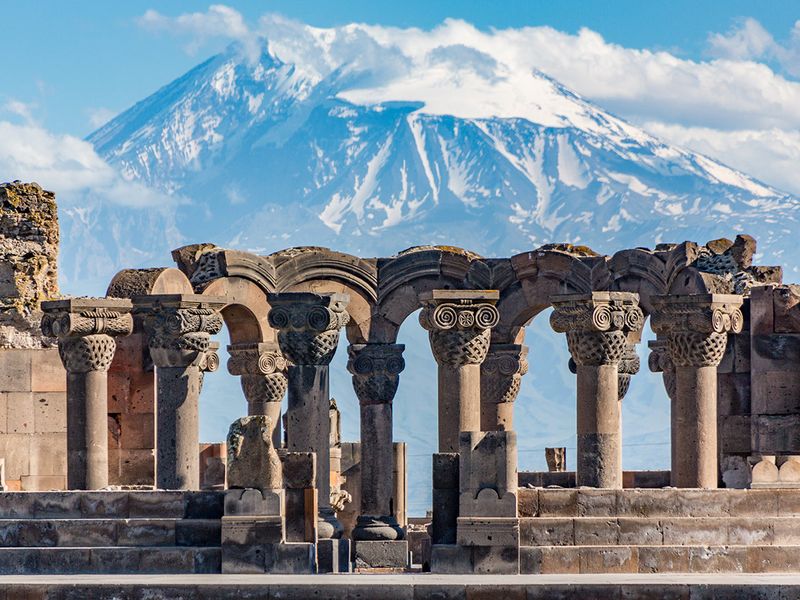
Travelling to Armenia
All passengers travelling to Armenia must have:
- A negative COVID-19 PCR test in Armenian, English or Russian taken at most 72 hours before arrival; or
- A COVID-19 vaccination certificate showing that they were fully vaccinated at least 14 days before arrival, are subject to a PCR test upon arrival at their own expense and self-isolation until test results are ready.
The certificate must show that they received: the first vaccine dose of Janssen at least 28 days before arrival; or the second dose of AstraZeneca, Moderna (Spikevax), Pfizer-BioNTech (Comirnaty), Sinopharm, Sinovac or Sputnik V at least 14 days before arrival.
This does not apply to:
- Passengers younger than 7 years;
- Citizens and residents of Armenia.

What do you need to travel?
All passengers travelling to Serbia must have:
- a negative COVID-19 RT-PCR test result issued at most 48 hours before arrival; or
- a COVID-19 vaccination certificate showing that they were fully vaccinated.
The certificate must be issued in Andorra, Armenia, Austria, Belgium, Cape Verde, Croatia, Cyprus, Czechia, Egypt, Estonia, Finland, France, Georgia, Germany, Greece, Hungary, Iceland, India, Ireland (Rep.), Italy, Lebanon, Liechtenstein, Lithuania, Malta, Moldova (Rep.), Morocco, Netherlands, Romania, San Marino, Serbia, Spain, Slovakia, Slovenia, Switzerland, Tunisia, Turkey, Ukraine, the UAE or the UAE. Details can be found at https://www.mfa.gov.rs/en/citizens/travel-serbia/covid-19-entry-requirements;
A COVID-19 recovery certificate issued in Andorra, Austria, Bulgaria, Cape Verde, Croatia, Denmark, Estonia, Germany, Greece, Iceland, Ireland (Rep.), Liechtenstein, Luxembourg, Romania, San Marino, Serbia, Slovenia, Spain, Switzerland, Tunisia, Turkey or the USA.
Passengers must have tested positive at least 14 days and at most 6 months before arrival. This doesn’t apply to:
- Citizens and residents of Serbia.
- Citizens of Slovenia.
- Children younger than 12 years. They must be accompanied by a parent, custodian or an adult from the same household.
- Passengers between 12 years and 18 years. They must take an antigen or RT-PCR test within 48 hours after arrival.
- Passengers arriving from India and the United States of America.
- Citizens of Albania, Bosnia and Herzegovina, Bulgaria, Hungary, Montenegro and North Macedonia (Rep.) if arriving from their country of nationality;
- Residents of Albania, Bosnia and Herzegovina, Bulgaria, Hungary, Montenegro and North Macedonia (Rep.) arriving from their country of residency;
- Passengers travelling on a business trip with an email confirmation from the Serbian Chamber of Commerce.
- Passengers in transit for less than 12 hours.
- Students who are citizens of Croatia studying in Serbia.
- Military personnel traveling on duty.
- Passengers arriving from Botswana, Lesotho, Malawi, Mozambique, Namibia, South Africa or Zimbabwe must have:
a negative COVID-19 RT-PCR test result issued at most 48 hours before arrival; or a COVID-19 vaccination certificate showing that they were fully vaccinated.
The certificate must be issued in Andorra, Armenia, Austria, Belgium, Cape Verde, Croatia, Cyprus, Czechia, Egypt, Estonia, Finland, France, Georgia, Germany, Greece, Hungary, Iceland, India, Ireland (Rep.), Italy, Lebanon, Liechtenstein, Lithuania, Malta, Moldova (Rep.), Morocco, the Netherlands, Romania, San Marino, Serbia, Spain, Slovakia, Slovenia, Switzerland, Tunisia, Turkey, Ukraine, the United Arab Emirates or the United Kingdom;
a COVID-19 recovery certificate issued in Andorra, Austria, Bulgaria, Cape Verde, Croatia, Denmark, Estonia, Germany, Greece, Iceland, Ireland (Rep.), Liechtenstein, Luxembourg, Romania, San Marino, Serbia, Slovenia, Spain, Switzerland, Tunisia, Turkey or the USA. Passengers must have tested positive at least 14 days and at most 6 months before arrival. Details can be found at https://www.mfa.gov.rs/en/citizens/travel-serbia/covid-19-entry-requirements.
Passengers with a valid residence permit issued by the UAE can obtain a visa on arrival for a maximum stay of 90 days. The maximum stay is granted within 180 days. Passports must be valid for a minimum of 3 months from the arrival date. Passengers without a return or onward ticket could be refused to enter Albania.
PCR test, vaccination passport
All passengers, excluding children below 6 years old, entering or transiting Albania must have:
- a vaccination passport showing that they were fully vaccinated at least 14 days before arrival; or
- a negative PCR test no more than 72 hours before arrival or a rapid antigen test no more than 48 hours before arrival; or
- a COVID recovery certificate issued 6 months before arrival.
Citizens of Albania travelling to Albania without one of the above must self-isolate for 10 days and are subject to a PCR test at the end of the isolation period.
Citizens of Afghanistan, Bangladesh, Egypt, India, Pakistan, Somalia and Syria must be able to provide a clear reason for travel and intentions during their stay and hold the additional documents mentioned below when travelling to Albania:
- A valid return ticket with the same booking confirmation number (PNR);
- A valid UAE residence visa issued at least 6 months before departure and must be valid for at least 3 months on the return to Dubai.
- A confirmed hotel booking or tour itinerary for the duration of stay in Albania; supporting documents, such as an invitation letter if travelling for business; sufficient funds for the duration of stay.
* This article is based on information available on government sites as of 15 December, 2021. Please check official sources for latest information before you plan your journey.
More from special-reports.

Mike Lynch and yacht tragedy: All you need to know

Kindness: How it brings more money, healing

Philippine billionaire Razon Jr. surges to No. 1

ICE car ban from 2025: Nations leading EV transition

Vaccines against mpox virus? What we know so far
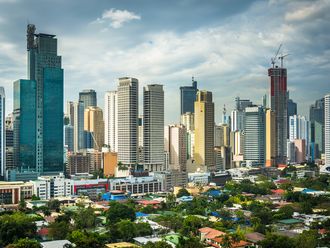
Philippines gets credit upgrade to 'A-': What it means
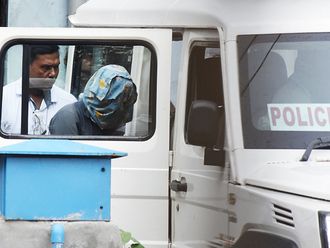
Who is Sanjay Roy in the India doctor rape-murder case?

Philippines: Longest toll road, can tycoon Ang deliver?
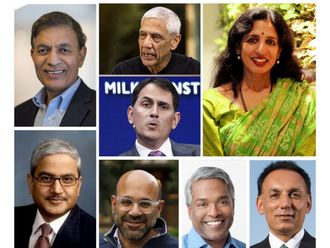
Meet the top 10 Indian-origin billionaires in the US
113,000 emiratis now working in private sector, neom launches recruitment drive for hydrogen company, india pm modi kicks off landmark poland, ukraine visit, how to check your basic salary in the uae.

Get Breaking News Alerts From Gulf News
We’ll send you latest news updates through the day. You can manage them any time by clicking on the notification icon.

The National
Dubai travel restrictions: all you need to know about the Covid flying rules
Life in the emirate is back to normal as covid-19 rules have been relaxed in most places, offering tourists plenty of options to keep busy and entertained.

09 September, 2021
- Share on Facebook
- Share on LinkedIn
- Share on WhatsApp
The UAE Today
The latest news and analysis from the Emirates

Our corporate organisation
The people behind the brand
Projects that enhance the Dubai visitor experience
- Our services
Study tourism and shape Dubai's travel stories
Delivering local expertise
Take visitors on a journey
Become an safari adventure guide
Become an expert of the Dubai offering
Raising service standards for exceptional visitor experiences
Official press releases from DET
The latest industry circulars and legislative news
The latest industry research and insights from DET
Send us a message and we will do our best to help
Report wrongdoing within the industry
- Legislative news
The latest official announcements, circulars and legislative news
Laws, decrees, regulations and circulars released by the Department of Economy and Tourism as the principal authority governing the emirate's economy and tourism sectors.
This is now in your Top Picks!
Login or create an account to save your favourites and receive personalised recommendations.
Login to like
Sign in or register to like this content
Welcome to a sun-soaked metropolis like no other
Plan your dream wedding in an unforgettable destination
Discover the city's insiders, influencers and innovators
Every district in Dubai tells its own unique story
Admire the city's traditional arts, crafts and cultural gems
Get more out of your holiday with these guides
Escape to the hills and explore nature
Answer the call of the wild and experience desert thrills

Uncover the city’s rich heritage and vibrant arts scene
Embark on thrilling new adventures for all ages
Taste award-winning world flavours and local cuisine
Visit the latest hotspots, openings and attractions
Find new surprises at modern malls and traditional souks
Marvel at record-breaking venues and iconic landmarks
Unwind at Dubai's luxury spas and wellbeing havens
What do you travel for? Find inspiration with our itineraries

Book a table at these fresh hotspots
Taste a deliciously different side of Dubai
Discover our homegrown culinary heroes
See all the restaurants unveiled in the Dubai selection
Weekends in Dubai are for feasting
Explore Dubai's plant-based concepts that impress
Reserve a table at top restaurants for incredible prices
Browse through our listing of restaurants

Don't miss a beat – live concerts, festivals, activities and more
Enjoy unbeatable sales, special offers and prize draws

Plan ahead for a hassle-free travel experience
From etiquette to currency, we answer all your questions
Use our tool to book flight tickets to Dubai and plan your trip to the city
Dubai has an incredible range of stay options for every budget
From take-off to touchdown, navigating Dubai is a breeze
Your complete guide to enjoying one of the world's safest cities to the fullest
Find out all about Dubai’s climate throughout the year with our weather guide
All you need to know about the dirham, from exchange rates to helpful tips
Helpful information for travellers with special needs
Unlock huge savings with pre-paid access to top spots
Get our apps for the latest attractions, events & itineraries

Sign up to unlock over 7,000 limited-time offers this summer
Save big with great offers on Dubai's top sights and activities
Indulge in retail therapy for less with big discounts
Enjoy a trip to Dubai with incredible accommodation offers
Sign up for kid-friendly activities or attend a live show with the entire family
Get tickets to the best concerts featuring A-list artists at world-class venues
Join Dubai's community sporting activities and race to the finish line
Sing along as the star belts out his top hits
Get ready to rock with the legendary band
Related Sites
Add items to your Top Picks by clicking the heart icon as you navigate through the website
- Visit Dubai
- Plan your trip
Practical information
Plan your trip, find advice on how to prepare, and get all the information you need before your Dubai holiday.
Quick tips Follow these essentials
Arriving in dubai, the weather, wi-fi in dubai, embassies & consulates, emergency numbers.
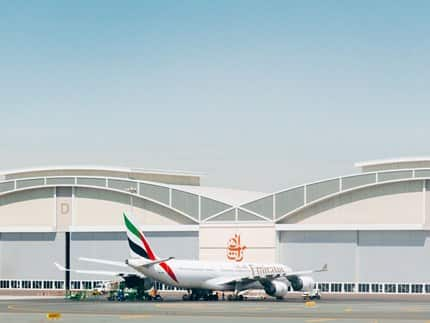
The currency in Dubai is the dirham, which is shortened to AED (United Arab Emirates Dirham). One dirham is divided into 100 fils. The dirham has been pegged to the US dollar since 1997, meaning the exchange rate never changes. One US dollar is worth AED3.67.
Small bottle of water: AED1.5 (50 cents) Big Mac: AED16.75 (USD4.5) Biryani: AED13 (USD3.5) Shawarma wrap: AED5 (USD1.4) Short taxi ride: AED12 (USD3.3) Dubai Metro (3 zones): AED5.8 (USD1.6) Cinema ticket (standard): AED35 (USD9.6) Abra ride across Dubai Creek: AED1 (USD27 cents)

With a coastal location on the Arabian Peninsula, Dubai enjoys a warm climate all year. The ‘winter’ months last from October to May with warm temperatures ranging from 20–35°C (68–95°F).
The summer season lasts from June to September with hotter temperatures reaching the mid-40s (~110° F) – and the city’s wide range of indoor and outdoor facilities and attractions ensure Dubai is a year-round destination.
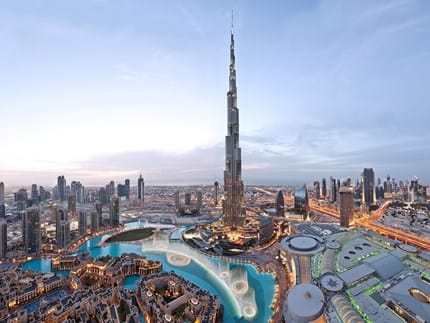
In case of emergencies while on holiday in the UAE, call:
- 911 for Police
- 998 for Ambulance
- 997 for Fire Department
- 996 for Coastguard
Visitors may also find these numbers helpful:
- +971 800 4438 for tourist security issues
- +971 800 342 for the Dubai Health Authority
- +971 600 545 555 for consumer-related concerns

Frequently asked questions
Where can I take the metro in Dubai?
When is it cold in Dubai?
What is the official language in Dubai?
Can I drink alcohol in Dubai?
Are public displays of affection allowed in Dubai?
Is there anything prohibited in Dubai?
Fly with Emirates
What you need to know your questions, answered, greetings & etiquette.
Dubai is a cosmopolitan city and a diverse melting pot where almost all attires and cultural expressions are accepted. Swimwear is permissible at beaches, waterparks, public pools and spa areas but is not considered appropriate in areas such as business districts and shopping malls.
Dressing conservatively is appreciated in Dubai's historic neighbourhoods and places of worship. There are specific requirements for entering a mosque, like wearing clothing that covers shoulders, arms and legs – and headscarves for women.

Marhaba! Dubai is a warm and friendly city and you will come across many people who will greet you with a smile and wish you well. A handshake is customary, but do note it is typically accepted that this should be initiated by women.
Public displays of affection are best kept to a minimum. Holding hands is acceptable, but kissing and hugging in public areas is not permitted.
Alcohol is served in licensed establishments such as hotels, bars and specialised shops to those over 21 years of age. However, drunk and disorderly conduct and drunk driving are not acceptable. Use or possession of illegal drugs is also strictly prohibited.

Dubai is home to hundreds of nationalities and both Arabic and English are spoken across the city. Learning a few Arabic words can certainly make the trip more memorable! As you explore the city you're very likely to hear Russian, Tagalog, Hindi, Urdu, Portuguese and many other languages. Follow our detailed guide for a list of handy phrases.
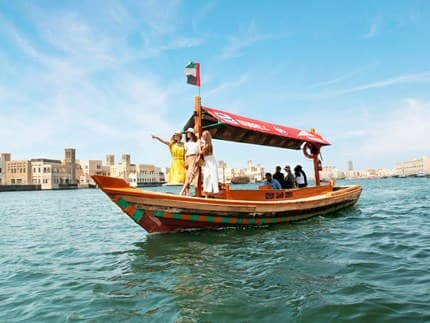
Many medicines used worldwide are readily available in pharmacies and hospitals across Dubai, but as in most countries, there are some medications which are restricted or prohibited for use in the UAE.
The UAE Ministry of Health and Prevention (MOHAP) has full details of controlled or prohibited medications, plus information on what documents you need to carry with you if you need to bring a controlled medication into Dubai. MOHAP also issues a permit to import medicines into the UAE, which you can apply for on their website .
While the permit is optional, it is strongly recommended to obtain it prior to your trip as it will help ensure you have all the correct information and documents. You must also bring your official prescription from the issuing authority of where you are receiving treatment. Please note you can carry medicines for a maximum period of three months. If you have any questions, or want to check the status of a particular medication, contact your local UAE embassy, or get in touch with MOHAP .

To tip or not to tip? The short answer is, there are no rules when it comes to tipping in Dubai. How much you tip varies from profession to profession, and is also largely down to personal preference. It is customary to offer a little extra in most cases, but it certainly isn’t compulsory. Everyone arrives in Dubai with their own customs and expectations, but one thing that's always consistent is the high level of service.

Do you have a question? Get in touch with us directly and we'll be glad to help.
Department of Economy and Tourism
Office hours:
+971 600 55 55 59
Whatsapp Chat (Live 08:00 - 20:00):
Use a contact form
Write to us
Start planning
Find a range of essential information – from basic customs to hotels, restaurants, public transport and discounts.

Dubai Visas, Laws & Customs

A first-timers guide to understanding Dubai
In this section, we cover everything you need to know about how to legally enter Dubai as a tourist, along with religion, dress code, and customs all visitors should be aware of when planning a trip to Dubai.
Tourist Visas for Dubai
Religion in dubai, dresscode in dubai, the do’s and don’t every first-time visitor to dubai should be aware of.
To enter the UAE as a tourist, everyone except GCC nationals needs a Tourist Visa .
For many nationalities, however, the tourist visa is free on arrival for either 30 days or 90 days.
- We share the complete list of countries and how visa extensions work here.
If you are not from one of these countries, then you can apply through your airline or a travel agent for a transit visa (free for 48 hours if arranged in advance, or 50AED for 96 hours), or a 30-day single entry Tourist Visa which costs 350AED.
- For a complete guide to Dubai Tourist Visas, click here.
If you have overstayed your UAE tourist visa or wish to renew a 30-day visa, click over to this article , where we detail how to do a “visa run” from Dubai.
If you have any uncertainty about the process of applying for your Dubai Visa or what category you should be applying for, then it’s always best to seek an immigration consultant in Dubai .
(Note we are not a tour agency registered in the UAE. We cannot help you with this step!)
Dubai is a Muslim country with a Sunni Muslim majority of approximately 76%. The country’s laws are based on a Civil Law System, and Sharia Law, which may have some key differences from the legal systems tourists are used to.
- You can learn more about “the Call to Prayer” and Islamic practices in Dubai here
- See a full guide to Dubai’s Religious and Public Holidays to be aware of here
- You can find a full tourists guide to the Holy Month of Ramadan here
- Learn more about non-Muslims visiting Mosques here
As a Muslim country, there may be a stricter standard of dress expected of you than you normally experience in your home country. Whilst there is no need for non-muslim tourists to be fully covered, tourists are expected to be respectful of the culture and dress in a conservative manner in public places.
The difference between public and private places and what’s considered appropriate can be tricky in some situations, so we have a detailed guide here to help you navigate your way around the Dubai dress code .
You can also check out:
- 10 Best dresses to pack for your trip to Dubai
- Ultimate Dubai packing list for men & women
- What to wear when visiting a Mosque in the UAE
- What to wear on a Dubai desert safari
- What to wear in Dubai Mall and shopping areas in Dubai
Particularly if you’ve never visited a more conservative Muslim country before, there may be a few social rules and strict laws you are unaware of that could land you in trouble with the law. We also have these detailed guides which may help you understand local laws and customs to be aware of:
- You can read our full guide to the do’s and don’t for first-time visitors here .
- Am I allowed to drink alcohol in Dubai?
BACK TO OUR DUBAI ESSENTIAL PLANNING INFORMATION HOMEPAGE
Please note we are not a travel agency. This site is a travel blog to help newcomers to the UAE and transit passengers self plan their trip, we cannot book your flights, hotels, visas or connections for you. We may make a small commission if you click on any of our recommendation links . Dubai Travel Planner
traveltodubaiblog.com
A Travel Blog All About Dubai, UAE
Dubai Laws For Tourists

Dubai is a very welcoming place for tourists and residents as well. But everyone needs to remember that it is an Islamic country and has its own rules and regulations that must be respected. It is smart to understand the Dubai laws for tourists so read on.
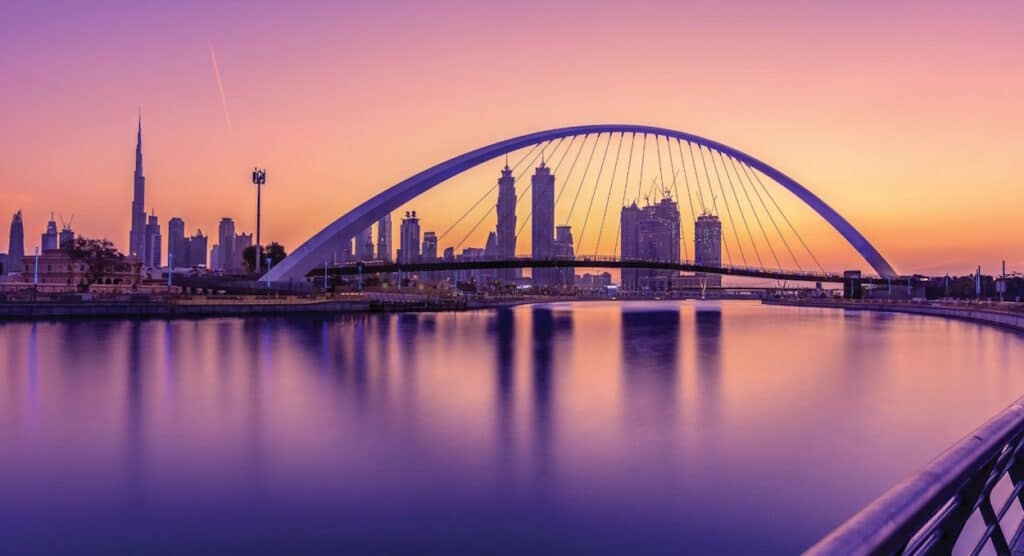
I have lived in the country for 19 years and have always found the Emiratis to be incredibly welcoming and love to help and guide visitors and residents alike. Dubai is a very tolerant place and can seem very relaxed (almost like any major city around the world), but there are some key differences that you should be aware of.
This article will outline the key areas to help people ensure that they have a safe and enjoyable visit when moving here for a new job etc.
Note: This post does not constitute legal advice, but is a guideline. If you have an issue in Dubai then you should contact your embassy/consulate to get advice and help locate a lawyer that can help you. Please also see the Useful Links section for more resources that may help you.
Introduction
Dubai, a city of modern wonders and cultural richness, has become a global hotspot for tourists. While it offers a fantastic blend of tradition and innovation, it’s important to be aware of the local laws and regulations to ensure a trouble-free visit. In this comprehensive guide, we’ll explore the essential Dubai laws for tourists, ensuring you have a memorable and lawful experience in this vibrant emirate.
Table of Contents
Understanding Dubai’s Legal System
The sharia law influence.
Dubai, one of the seven emirates in the United Arab Emirates ( UAE ), practices a legal system influenced by Islamic law, also known as Sharia law. While Sharia law plays a significant role in the legal framework, Dubai has established a set of laws and regulations that cater to its multicultural and diverse population, making it relatively tolerant compared to some other Middle Eastern destinations.
Tourism-Friendly Laws
Dubai’s legal framework is designed to encourage tourism, making it a welcoming destination for travellers from all over the world. It’s crucial, however, to strike a balance between enjoying your trip and respecting the local laws and customs. So read through this article to understand the Dubai laws for tourists.

Essential Travel Documents
Passport and visa requirements.
Before embarking on your Dubai adventure, ensure your passport has at least six months’ validity from your arrival date. Additionally, you’ll typically need a visa to enter Dubai, except for citizens of certain countries who can enjoy visa-free travel for a specific period.
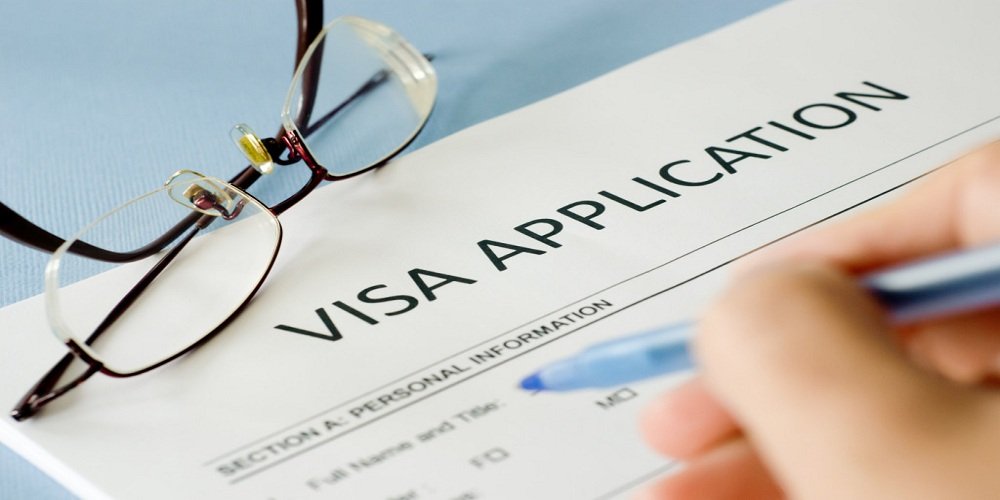
Tourist Visas and Visa Extensions
For most tourists, a 30-day tourist visa is issued upon arrival at the Dubai International Airport . If you plan to stay longer, you can extend your visa for an additional 30 days. For more information about visit visas please check out the Dubai Entry Requirements .
Code of Conduct and Cultural Respect
Dubai is known for its fashion-forward atmosphere , but it’s essential to dress modestly in public places. While you can wear Western-style clothing, revealing attire is not appropriate, especially in conservative areas.
Do not wear swimsuits in public places. You may be refused entry into certain areas such as malls etc if you are not wearing the appropriate clothing.
Public Behavior
Respectful and courteous behaviour is expected in Dubai. Avoid public displays of affection, offensive language, and any behaviour that might be considered disrespectful to the local culture. Swearing, cursing, or other insulting behaviour is not tolerated at all. It can lead to prison time, fines and eventual deportation. Follow the Dubai laws for tourists and stick to the guidelines.
Alcohol Regulations
Age limit and licensing.
The legal drinking age in Dubai is 21. You’ll also need a license to consume alcohol, which is generally provided by hotels, clubs, and authorized stores. Drinking in public places is strictly prohibited.
Drinking in Public
Consuming alcohol in public, including beaches, streets, and parks, is against the law. Enjoy your drinks responsibly within licensed venues. Drunken behaviour and violence are not tolerated and will lead to fines, prison time and potentially deportation.
Drug Laws and Penalties
Strict anti-drug policies.
Dubai has a zero-tolerance policy for drug-related offences. Possession of even a small amount of illegal substances can lead to severe penalties, including imprisonment.
Medications and Prescriptions
Certain medications that are legal in other countries may be restricted in Dubai. It’s essential to carry prescriptions and necessary documentation for any medication you bring into the country.
Smoking Rules
Designated smoking areas.
Smoking is allowed in designated areas, and violating this rule can result in fines. Ensure you only smoke in permitted zones.
Smoking in Private Residences
Smoking in your private residence is generally allowed, but it’s courteous to check with your host or accommodation provider about their smoking policy.
Photography and Filming
Respect for privacy.
While Dubai is a photogenic city, always ask for permission before taking pictures of people, especially women and government buildings. Respect people’s privacy and cultural sensitivities.
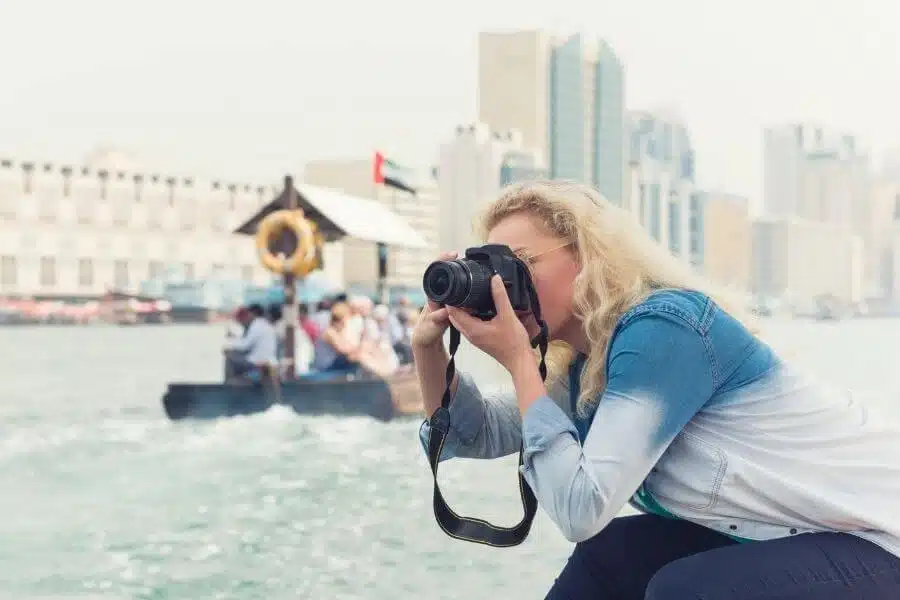
Restricted Areas
Avoid taking photos in restricted areas, such as military zones and government buildings. These actions can lead to legal consequences.
Public Displays of Affection
Moderate behavior.
Public displays of affection, including kissing and hugging, are discouraged in public places. Maintain a moderate level of intimacy when in public. Holding hands is fine, a kiss on the cheek etc, but no more.
Appropriate Locations
Save romantic gestures for more private settings, such as your hotel room or a restaurant.
Internet and Communication
Censorship and content filtering.
Dubai has strict internet censorship rules, and certain websites and content may be blocked. It’s important to be aware of these restrictions, especially if you rely on specific online services.
VoIP Services
While VoIP services like Skype and WhatsApp are widely used, they may be restricted or monitored. Ensure you have alternative means of communication if needed. Tools like Zoom, Goto Meeting, Google Meeting are widely used.
Employment and Business Activities
Engaging in work or business.
As a tourist, you cannot engage in work or business activities in Dubai without the appropriate permits and visas. Remote work may be subject to specific regulations.
Freelancing Rules
If you plan to freelance or offer services while in Dubai, consult with the relevant authorities to understand the legal requirements.
For more information about Business setup in Dubai .
Money Matters
Currency exchange.
Dubai’s currency is the United Arab Emirates Dirham (AED). Currency exchange services are widely available, and you can also use credit cards in most establishments.
Tipping Etiquette
Tipping is appreciated but not mandatory. It’s customary to leave a tip of around 10% in restaurants and for services.

Driving and Transportation
Driving license requirements.
To drive in Dubai, you need an international driving permit or a valid UAE driving license. Follow traffic rules and avoid speeding. If you are here as a tourist then you can use a valid driver’s licence from your home country. As soon as you have received a residence visa then you must apply for a UAE drivers licence.
The citizens of the following countries are allowed to exchange their drivers licence for a UAE licences subject to a fee and eye test. This list can change without notice so please check when applying.
Traffic Rules
Dubai has strict traffic regulations, and violations can result in fines or even imprisonment. It’s crucial to obey the rules and drive safely. In Dubai, driving is on the right-hand side of the road, with steering wheels on the left. There are many speed cameras everywhere and it’s very easy to collect fines.
Safety and Health
Emergency services.
In case of emergencies, dial 999 for police , ambulance, or fire services. Dubai has a highly efficient emergency response system.
Healthcare System
Dubai boasts a world-class healthcare system with modern facilities. Ensure you have travel insurance to cover any unexpected medical expenses.
Dubai is a remarkable destination that offers a unique blend of tradition and modernity. To make the most of your trip while staying on the right side of the law, familiarize yourself with Dubai’s laws and regulations. Show respect for the local culture, and you’ll have a memorable and enjoyable stay in this dynamic emirate.
Q1: Can tourists drink alcohol in Dubai?
Yes, tourists can drink alcohol in Dubai, but they must be at least 21 years old and obtain a license. Consumption in public places is prohibited.
Q2: What are the consequences of public intoxication?
Public intoxication can lead to fines, imprisonment, or deportation, depending on the severity of the offence. Dubai laws for tourists must be followed.
Q3: Are tourists allowed to wear swimsuits on public beaches?
Wearing swimsuits is generally acceptable on public beaches, but it’s advisable to cover up when leaving the beach area.
Q4: Can I take photos of people in Dubai?
Always ask for permission before photographing people, especially women, and avoid photographing sensitive areas and government buildings.
Q5: Is it safe to use public Wi-Fi for online banking?
Using public Wi-Fi for online banking is generally safe, but it’s advisable to use a VPN for added security.
Q6: What are the penalties for drug possession?
Dubai has strict anti-drug policies, and possession can lead to severe penalties, including imprisonment.
Q7: Can tourists work remotely while in Dubai?
Tourists cannot engage in work or business activities without the appropriate permits and visas. Remote work may be subject to specific regulations.
Q8: Are there any restrictions on public transportation?
Public transportation is generally safe and efficient. Follow the rules and etiquette when using public transport.
Q9: What is the emergency number in Dubai?
In case of emergencies, dial 999, 998, 997 for police, ambulance, or fire services respectively.
Q10: Can I use my home country’s prescription medication in Dubai?
Certain medications that are legal in other countries may be restricted in Dubai. Carry prescriptions and necessary documentation for any medication you bring into the country.
Useful Link
- The official Dubai government portal for laws .
- A list of lawyers in Dubai is shown here that will help you with the Dubai laws for tourists.
- Some guides to Dubai can be found here and here .
- Interested in Dubai business in Dubai ?
- Check out the Dubai International Financial Centre which has its own
- Time for fun. Check out the best beaches in Dubai .
- The best resorts in Dubai .
- Great shopping destinations include Dubai Mall , Mall of the Emirates and Dubai Hills Mall .
- This is a great Dubai Travel Itinerary for different time periods visiting Dubai.
Key Takeaways
- Dubai has a legal system influenced by Sharia law but also has tourism-friendly regulations.
- Respect local customs, dress modestly, and avoid public displays of affection.
- Follow alcohol regulations, including obtaining a license and not drinking in public.
- Be cautious with photography and be aware of internet censorship.
- Understand driving and traffic rules, and have travel insurance for healthcare needs.
Related News

Dubai Free Zones: What Are The Advantages?
You may have missed.

Dubai Floods

Ramadan In Dubai

Fine Dining Dubai

Attractions In Dubai


Shopping In Dubai

Best Beaches In Dubai
- Area Guides
- Building Guides
- School Guides
- Floor plans
- Get in Touch
- Market Trends
- Life at Bayut

Essential etiquette guide: Do’s and don’ts for tourists in Dubai
- Do’s of Visiting Dubai
- Don’ts of Visiting Dubai
- Important Rules
So, you’ve set your sights on Dubai, the crown jewel of the Middle East! While thrilling experiences and breathtaking sights are surely on your agenda, understanding the cultural norms and Dubai rules for tourists will ensure a smooth and enjoyable visit. Let’s learn more about some essential Dubai do’s and don’ts to enrich your trip.
Do’s For Tourists in Dubai
As a tourist or a potential expat in Dubai, you will get lots of advice and suggestions on must-do activities and must-visit places. However, people may miss out on explaining Dubai’s cultural norms and general behaviour. MyBayut is here to cover most of Dubai laws for visitors today so you can enjoy your time in the city to the fullest!
Dress to impress, but make sure it’s modest!
Everyone knows the popular adage, ‘When in Rome, do as the Romans do.’ It is important to be culturally sensitive to Emirati etiquette and follow the dress code of Dubai appropriately. This certainly doesn’t mean you can only wear clothes that locals usually wear.
Here is a quick look for dressing tips in Dubai:
- Swimwear is only allowed on private beaches and swimming pools
- Topless sunbathing is illegal and considered offensive
- Cross-dressing is not allowed
Respect the Local Tradition when visiting Dubai
Understanding Dubai’s cultural traditions , heavily influenced by Islam, fosters a deeper connection with the city and its residents. Visitors can ensure a smooth and enriching experience by being mindful of local customs. A simple gesture of respect, like a smile or a greeting using the common Islamic salutation of “Assalamu alaikum” (or “Salam”), goes a long way in opening doors to Dubai’s renowned hospitality.

- Refrain from making hand gestures that may be considered offensive
- Always respect women
- Avoid shaking hands with the opposite sex unless they offer to do so themselves
- Never drink in public areas
Take the Metro when visiting Dubai
If you want to travel around the city with a small budget, try to use the Dubai Metro for going around town. It is the cheapest form of public transport in Dubai. If you compare commuting via metro to a cab, you can see a significant difference in the amount of money you can save. Moreover, from the world’s tallest building to a picture frame 150 metres tall, visit top tourist attractions near Dubai Metro .
View this post on Instagram A post shared by هيئة الطرق والمواصلات، دبي (@rta_dubai)
Keep your Drug prescriptions when visiting Dubai
If there is anything Dubai has zero tolerance for, it is the use of drugs. You must double-check all the medications you plan to take on your visit to Dubai. Have all your prescriptions with you, and try not to carry any medicine the authorities won’t approve of.
Do Keep Calm
Fines are issued if one engages in aggressive arguments and fights as per tourist laws in Dubai. This includes verbal abuse as well. Besides, whether in Dubai or anywhere else in the world, ranting, shouting and arguing are not appreciated and considered offensive. The only difference is that here, depending on the severity of the offence, you can probably face jail time for it or even get deported.
Don’ts for Tourists in Dubai
Don’ts in Dubai mean exactly that – don’ts. No exception. We have summarised a few of the rules for tourists in Dubai that are essential for you to avoid trouble while on holiday. Don’t think by any means that this city is extremely conservative.
On the contrary, Dubai has the most number of expats and a huge number when it comes to tourists visiting the city, but since it is a Muslim country, one needs to be respectful of Islamic values and culture.
No PDA or Public Display of Affection
PDA makes most people uncomfortable. However, it can result in a fine or even an arrest in Dubai! That’s right, the only amount of PDA that is tolerated here is holding hands or innocent hugs. Kissing and beyond, in short, anything that implies a report-worthy behaviour with the opposite sex in public is a giant neon sign that says NO.

Don’t Drink in Public
While alcohol is easily available in licenced restaurants and pubs, being inebriated in public is strictly prohibited and can lead to deportation or jail time. Tourists in Dubai should be mindful of their consumption and avoid public disturbances. Additionally, purchasing alcohol directly requires a licence, so make sure you know how to apply for an alcohol licence in Dubai .
Don’t Take Photographs Without Permission
No matter how Insta-worthy that photograph is, photographing locals and certain buildings in Dubai is offensive. Photographing residents, particularly without their consent, can be considered disrespectful. A simple courtesy of asking permission beforehand goes a long way. Other than that, you can take as many selfies as you like.
Furthermore, avoid taking images of airports, police stations, ports, royal palaces and military buildings without a UAE photography permit . This one is one of Dubai’s most important dos and don’ts on our list.

Don’t Drink and Drive
Dubai maintains a strict zero-tolerance policy for tourists who drink and drive or behave disorderly in public under the influence. Apart from no drunk driving, cameras are everywhere if you drive beyond the speed limit, and a significant fine gets issued. Racing and using your phone while driving can also get you fined if caught.
QUICK RULES FOR FIRST-TIME VISITORS TO DUBAI
Here are some quick Dubai rules for tourists in 2024 to make yourself aware of and save unnecessary trouble. Last but not least, the rules for visiting Dubai are just for your safety, so apart from abiding, don’t forget to have the time of your life in one of the best cities in the world.
- Don’t make or flash rude hand gestures
- Don’t point fingers at people
- Don’t explicitly eat, drink or smoke during Ramadan
- Don’t use swear words
- Don’t dress immodestly when visiting religious places like mosques
- Don’t accept drinks from strangers at clubs
- Don’t litter around because you’ll be charged with a heavy fine
FAQS ABOUT DOS AND DON’TS DUBAI
How to renew a tourist visa in dubai .
Visit visa extension in Dubai has become easier with the UAE government’s introduction of online channels and portals. Check out our guide on tourist visa renewal in Dubai , which clearly explains the steps involved.
HOW TOURIST CAN GET A SIM CARD IN DUBAI?
Tourists can show their visas and passports to get a free SIM card at the Dubai International Airport or buy one from the city’s shopping outlets.
CAN I DRINK ALCOHOL IN DUBAI?
Yes, you can. According to tourist laws for visiting Dubai, consuming alcohol in licenced restaurants and pubs doesn’t require a liquor licence. However, if you wish to purchase alcohol, you must have a temporary licence.
WHAT ARE THE BEST TOURIST ATTRACTIONS IN DUBAI?
From Real Madrid World to Dubai Mall’s Chinatown , the emirate never ceases to amaze visitors. Check out the list of the best tourist attractions in Dubai .
WHAT ITEMS ARE BANNED ON DUBAI INTERNATIONAL AIRPORT?
Dubai International Airport prioritises passenger safety with strict security protocols. To ensure a smooth travel experience, familiarise yourself with Dubai Airport banned items .
That’s MyBayut’s guide to Dubai rules for visitors to enjoy the best time in this beautiful city without any trouble! Are you heading to Dubai for the first time? Check out this handy guide to planning your first trip to Dubai .
There is a surprising range of free experiences in Dubai for budget-minded tourists. Explore the bustling Al Seef district, wander the vibrant souks, or even catch a camel racing festival – all without spending a dime. You can also sign up for the hop-on-hop-off bus tours to access some of Dubai’s best places to visit.
Vacationing in Dubai is an experience like no other! To plan your trip to this magnificent destination like a pro and enhance the overall experience, it’s wise to acquaint yourself with the best apps for Dubai tourists .
Bookmark MyBayut as your essential resource for staying informed on the do’s and don’ts of Dubai and the laws for tourists.
Leave a Reply Cancel Reply
Religious harmony at Corridor of Tolerance Jebel Ali

Last Week In Real Estate: 3 March – 9 March

A complete guide to Hatta Pools

Upcoming events at the Etihad Arena

Where to find lip-smacking fried chicken in Abu Dhabi

All about Glitch at Al Ghurair Centre: Let the games begin!
- Residential Plot
Sliding Sidebar
Let’s connect.
Ask us anything or just say hi 🖐
Security Alert May 17, 2024
Worldwide caution.
- Travel Advisories |
- Contact Us |
- MyTravelGov |
Find U.S. Embassies & Consulates
Travel.state.gov, congressional liaison, special issuance agency, u.s. passports, international travel, intercountry adoption, international parental child abduction, records and authentications, popular links, travel advisories, mytravelgov, stay connected, legal resources, legal information, info for u.s. law enforcement, replace or certify documents.
Before You Go
Learn About Your Destination
While Abroad
Emergencies
Share this page:
United Arab Emirates
Travel Advisory July 13, 2023
United arab emirates - level 2: exercise increased caution.
Reissued with obsolete COVID-19 page links removed.
Exercise increased caution in the United Arab Emirates due to the threat of missile or drone attacks and terrorism.
Country Summary: The possibility of attacks affecting U.S. citizens and interests in the Gulf and Arabian Peninsula remains an ongoing, serious concern. Militant groups operating in Yemen have stated an intent to attack neighboring countries, including the UAE, using missiles and drones. Missile and drone attacks in early 2022 targeted populated areas and civilian infrastructure.
Due to risks to civil aviation operating within the Persian Gulf and the Gulf of Oman region, including the United Arab Emirates, the Federal Aviation Administration (FAA) has issued an advisory Notice to Air Missions (NOTAM). For more information U.S. citizens should consult the Federal Aviation Administration’s Prohibitions, Restrictions and Notices .
While residents and visitors generally find a safe and secure environment in the UAE, the country continues to face the threat of terrorism. Terrorists may attack with little or no warning, targeting tourist locations, transportation hubs, markets, shopping malls, and local government facilities.
Read the country information page for additional information on travel to the United Arab Emirates.
If you decide to travel to the United Arab Emirates:
- Monitor local media for breaking events and be prepared to adjust your plans.
- Enroll in the Smart Traveler Enrollment Program (STEP) to receive Alerts and make it easier to locate you in an emergency.
- Follow the Department of State on Facebook and Twitter .
- Review the Country Security Report for the United Arab Emirates.
- Visit the CDC page for the latest Travel Health Information related to your travel.
- Prepare a contingency plan for emergency situations. Review the Traveler’s Checklist .
Embassy Messages
View Alerts and Messages Archive
Quick Facts
6 months validity after date of arrival. 12-page U.S. emergency passports are not accepted. Passports with the “X” gender marker are not accepted.
One page required for entry stamp
Not required for tourist stays under 30 days
Embassies and Consulates
U.s. embassy abu dhabi.
Embassies District, Plot 38, Sector W59-02, Street No. 4. Abu Dhabi, U.A.E. Telephone: +(971) (2) 414-2200 Emergency After-Hours Telephone: +(971) (0) 2-414-2200 Fax: +(971) (2) 414-2241 Email: [email protected]
U.S. Consulate General Dubai Corner of Al Seef Rd. and Sheikh Khalifa bin Zayed Rd Dubai, U.A.E. Telephone: +(971) (4) 309-4000 Emergency Telephone: +(971) (4) 309-4000 Fax: +(971) (4) 311-6213 Email: [email protected]
Note: The normal work week in the UAE is Monday through Friday.
Destination Description
Learn about the U.S. relationship to countries around the world.
Entry, Exit and Visa Requirements
COVID-19 Requirements: There are no COVID-related entry requirements for U.S. citizens.
U.S. citizens are subject to all UAE immigration laws.
- Passport Validity: A passport valid for at least six months beyond the date of entry is required to enter the UAE. The UAE government does not accept 12-page emergency passports for entry to the UAE. The UAE government also does not accept passports with the “X” gender marker for travel to, in, or through the UAE. Travelers with these passports will be denied boarding or entry.
- Personal travel of 30 days or less: A U.S. citizen with a regular (non-emergency) passport with an M or F gender marker may obtain a no fee visitor visa upon arrival. The UAE government does not accept passports with the “X” gender marker for travel to, in, or through the UAE. Travelers with these passports will be denied boarding or entry.
- Stays longer than 30 days: Visitors on a 30-day visa may request a visa extension, which is at the discretion of immigration officials. Anyone planning to work or study in the UAE must obtain the appropriate visa.
- Medical Exam: A full medical exam is required for work or residence permits. The exam and tests for HIV/AIDS, viral hepatitis B, tuberculosis, leprosy, and pregnancy must be performed after arrival. U.S. citizens have been detained and deported for testing positive for HIV, active tuberculosis, or hepatitis. Medical exams performed outside of the UAE will not be accepted.
- Travel on Diplomatic or Official Passports: U.S. citizens traveling to or through the UAE on diplomatic or official passports are required to obtain a visa before travel (transit passengers only require a visa if exiting the airport). This requirement is strictly enforced by UAE officials and those not meeting the requirement will be denied entry. U.S. military travelers should not assume military ID cards will be accepted, but should consult the Foreign Clearance Guide.
Land Exit Departure Fee: All travelers who depart the UAE by land and who are not citizens of a Gulf Cooperation Council (GCC) country must pay a departure fee. The fee is 35 UAE dirhams and is payable only in the local currency.
Please verify this information with the Embassy of the United Arab Emirates before you travel.
Exit Controls: The UAE maintains tight exit controls. All travelers must exit the country with the passport on which they entered. Travelers should visit a UAE immigration office prior to departure to obtain an exit pass if they plan to leave the UAE without the passport on which they entered.
Travelers both departing the UAE and transiting will be barred from exiting the UAE if there are any criminal or civil legal cases against them. Travelers have been arrested at the airport and have had their passports seized due to outstanding financial cases, unsettled legal disputes, and late credit card payments, including for cases that were previously unknown to the traveler. In such cases, some individuals have been arrested and detained for long periods of time. Individuals will be barred from leaving the UAE until legal cases are settled in full. This affects all persons whether they are in the UAE as residents, tourists, or transit passengers with no intention of exiting the airport. UAE residents can verify with UAE authorities whether they have an exit ban due to outstanding cases in Dubai or Abu Dhabi. More information on this process can be found on the UAE Government Portal .
The Government of the UAE requires that all persons residing in the country have a national identification card. U.S. citizens who are working or living in the UAE should visit the Emirates Identity Authority website for more information on card registration procedures and requirements.
Cancellation of Visas: All UAE visas must be formally cancelled through the General Directorate of Residency and Foreigners Affairs (GDRFA) before a new visa can be issued. This includes visas that have already expired or have never been used. Travelers may be denied entry to, or not permitted to depart, the UAE if previous visas have not been properly cancelled. More information on the process is available on the UAE Government portal .
Dual Nationality: The UAE does not recognize dual nationality. The UAE recognizes only the citizenship of the passport on which a person enters the UAE. The embassy may be prohibited from providing certain consular services to those who did not enter the UAE on a U.S. passport.
The UAE has imposed HIV/AIDS travel restrictions on all foreigners seeking residency. Travelers for tourism are not tested or requested to provide information about HIV/AIDS status. Please verify this information with the Embassy of the UAE before you travel. Information about dual nationality and the prevention of international child abduction can be found on our website. For further information about customs regulations, please read the embassy’s Customs Information page .
Current restrictions:
Weapons and Law Enforcement Equipment: The transportation of arms or items that may be considered law enforcement or military equipment is strictly prohibited without written approval from the UAE government. Do not transport any arms or items that may be considered law enforcement or military equipment. Such items include, but are not limited to:
- Weapon parts and tools
- Functional, inert, or decorative ammunition, even one bullet
- Empty or spent shell casings
- Any other military or police equipment
U.S. citizens, military personnel, and U.S. government/military contractors found to be carrying such items, even in the smallest quantities, will be arrested and face strict criminal penalties, including imprisonment, large monetary fines, forfeiture of the items, and deportation , even though airlines and U.S. authorities allowed shipment on a U.S.-originating flight.
Other prohibited items: Importation of the following items is also prohibited under UAE law: pornographic material, non-Islamic religious pamphlets for missionary activities, e-cigarettes, fireworks, ivory, chemical and organic fertilizers, laser pointers, radar jammers/other unauthorized communication devices, products and medications containing cannabidiol (CBD), endangered animal species, and any objects, sculptures, paintings, books or magazines which do not adhere to the religious and moral values of the UAE. Possession of any of these items can lead to detention and lengthy jail sentences.
Safety and Security
Terrorism: Terrorist groups and those inspired by such organizations are intent on attacking U.S. citizens abroad. Terrorists are increasingly using less sophisticated methods of attack – including knives, firearms, and vehicles – to more effectively target crowds. Frequently, their aim is unprotected or vulnerable targets, such as:
- High-profile public events (sporting contests, political rallies, demonstrations, holiday events, celebratory gatherings, etc.)
- Hotels, clubs, and restaurants frequented by tourists
- Places of worship
- Shopping malls and markets
- Public transportation systems (including subways, buses, trains, and scheduled commercial flights)
U.S. citizens in the United Arab Emirates should exercise a high level of security awareness. The possibility of terrorist attacks against U.S. citizens and interests in the Gulf and Arabian Peninsula remains a serious concern. The UAE’s normalization of relations with Israel in September 2020 increased the potential for attacks in the UAE, including by Iran-backed entities. Separately, rebel groups operating in Yemen have stated an intent to attack neighboring countries, including the UAE, using missiles and unmanned aerial systems (drones). Yemen-based Houthi rebels claimed responsibility for missile and drone attacks against the UAE on January 17 and 24, 2022, targeting populated areas and civilian infrastructure. The January 17 attack resulted in multiple impact sites in Abu Dhabi and three fatalities. The Houthi rebels have publicly stated their intent to continue such attacks. In the event of a missile and/or drone strike, follow the guidance found here .
Both historical and current information suggest that the Islamic State of Iraq and Syria (ISIS), al-Qaida, and affiliated organizations continue to plan attacks against Western targets; these attacks may employ a wide variety of tactics, including suicide operations, assassination, kidnapping, hijacking, and bombing.
For more information, see our Terrorism page.
Boating: The UAE and Iran have had a long-standing dispute concerning jurisdiction of Abu Musa, approximately 20 miles from Dubai. Fishing or sailing in these waters may result in seizure of vessels and detention of passengers and crew in Iran. Obtaining consular assistance in Iran for U.S. citizens is difficult and can only be done through the Swiss Embassy in Tehran , which acts as a Protecting Power, providing limited U.S. consular services.
Crime: Violent crimes and crimes against property are rare. U.S. citizens should take the same security precautions in the UAE that one would practice in the United States or any large city abroad.
Harassment and Assault: U.S. citizens, especially women, should take precautions against the possibility of verbal and physical harassment or sexual assault when walking alone, consuming alcohol, or riding in a taxi cab. Taxi passengers should avoid sitting in the front seat of a taxicab and should be sensitive that "small talk" can be misinterpreted as over-friendliness or even a form of propositioning by some taxi drivers. Taxis driven by women for the exclusive use of female passengers are available in some airports and by dispatch. Female travelers can identify these dedicated vehicles by their pink roofs.
Some victims of sexual assault have been prosecuted for violating laws against sexual relations outside of marriage. The law puts a high burden of proof on the victim to demonstrate that sex was not consensual. In cases where the victim has failed to demonstrate so, both parties have been prosecuted, and sometimes sentenced to jail time, followed by deportation.
International Financial Scams: See the Department of State and the FBI pages for information.
Internet romance and financial scams are prevalent in the UAE. Scams are often initiated through Internet postings/profiles or by unsolicited emails and letters. Scammers almost always pose as U.S. citizens who have no one else to turn to for help. Common scams include:
- Romance/Online dating
- Money transfers
- Lucrative sales
- Gold purchase
- Inheritance notices
- Work permits/job offers
- Bank overpayments
Victims of Crime: U.S. citizen victims of sexual assault are encouraged to contact the U.S. Embassy for assistance. Report crimes to the local police at 999 and contact the U.S. Embassy at +971 2 414 2200. Remember that local authorities are responsible for investigating and prosecuting crime.
See our webpage on help for U.S. victims of crime overseas .
- Help you find appropriate medical care
- Assist you in reporting a crime to the police
- Contact relatives or friends with your written consent
- Provide general information regarding the victim’s role during the local investigation and following its conclusion
- Provide a list of local attorneys
- Provide our information on victim’s compensation programs in the U.S.
- Provide an emergency loan for repatriation to the United States and/or limited medical support in cases of destitution
- Help you find accommodation and arrange flights home
- Replace a stolen or lost passport
Domestic Violence: U.S. citizen victims of domestic violence may contact the Embassy or Consulate General for assistance.
Tourism: The tourism industry is generally regulated and rules with regard to best practices and safety inspections are regularly enforced. Hazardous areas/activities are identified with appropriate signage and professional staff is typically on hand in support of organized activities. In the event of an injury, appropriate medical treatment is widely available throughout the country. Outside of a major metropolitan center, it may take more time for first responders and medical professionals to stabilize a patient and provide life-saving assistance. U.S. citizens are encouraged to purchase medical evacuation insurance .
Local Laws & Special Circumstances
Criminal Penalties: You are subject to local laws. If you violate local laws, even unknowingly, you may be expelled, arrested, or imprisoned. Individuals establishing a business or practicing a profession that requires additional permits or licensing should seek information from the competent local authorities, prior to practicing or operating a business.
As each emirate has its own independent judicial system, legal procedures and penalties vary throughout the country.
Furthermore, some laws are also prosecutable in the United States, regardless of local law. For examples, see our website on crimes against minors abroad and the Department of Justice website.
Arrest Notification: UAE authorities do not routinely notify the U.S. Embassy or consulate of a U.S. citizen’s arrest. If you are arrested or detained, ask police or prison officials to notify the U.S. Embassy or consulate immediately. If you are not allowed to do so, ask a friend or family member to contact the U.S. Embassy or consulate. See our webpage for further information.
Alcohol: Alcohol is sold only in very limited areas including certain restaurants and hotels. Public drunkenness and driving under the influence, regardless of one’s blood alcohol content level, are considered very serious offenses. Persons arrested on alcohol-related offenses are regularly detained for many days as they await a court hearing. Penalties may include hefty jail sentences, substantial fines and, for Muslims (even those holding U.S. citizenship), lashings. Note: The possession and consumption of alcohol is prohibited in the emirate of Sharjah.
Drugs: UAE law imposes the death sentence for convicted drug traffickers. Possession of even trace amounts of illegal drugs (including in the bloodstream) can result in lengthy prison sentences of up to 15 years. Bail generally is not granted to those accused of drug crimes.
Possession or consumption of marijuana in any form, including detections of trace amounts in the bloodstream, is illegal in the UAE, even if a doctor’s medical card is presented. Products containing cannabidiol (CBD) are illegal in the UAE. Possession or importation of CBD products, including those found in prescription and over the counter medications in the United States and other countries, are prosecuted in the same manner as marijuana possession. The UAE's anti-narcotics program also includes poppy seeds on its list of controlled substances. The importation and possession of poppy seeds in any and all forms, including as dried decorative plants, are strictly prohibited.
Persons may be charged and convicted even if the controlled substances were ingested outside of the UAE as long as traces are still present in the bloodstream upon arrival in the UAE. If suspected of being under the influence of drugs or alcohol, individuals may be required to submit to blood and/or urine tests and may be subject to prosecution.
Travelers with questions regarding the items on the list of controlled substances should contact the U.S. Embassy in Abu Dhabi or the U.S. Consulate General in Dubai .
Codes of Behavior and Dress: Public decency and morality laws throughout the UAE are much stricter than in the United States. Penalties for public displays of affection or immodesty may be imposed. Sexual relations outside marriage are illegal in the UAE and convicted individuals have been punished by lengthy jail sentences. Pregnancy outside of marriage can result in arrest and detention. Doctors may ask for proof of marriage during pre-natal visits, and those giving birth in the UAE must present a marriage certificate to receive medical care and register the child’s birth. Failure to do so has resulted in the arrests of both unmarried mothers and fathers, as well as deportation.
Individuals may be arrested, fined, and/or deported for committing any of the following acts: making rude gestures, swearing, touching another person without his/her permission, and making derogatory statements about the UAE, the royal families, the local governments or other people. Travelers should keep in mind the cultural differences among the many people who coexist in the UAE and should be cognizant that unwitting actions, including clothing choices, may invite unwanted attention.
Debt and Financial Crime: Crimes of financial fraud, including passing bad checks and non-payment or late payment of bills (including hotel bills, hospital bills, traffic or parking fines, and late payment of credit cards, utility bills, etc.), are regarded seriously in the UAE and often result in imprisonment and/or fines. A personal check written as a guarantee for the payment of a personal or business debt may be submitted to a local bank for collection at any time for the full amount of the check. If the account holder does not have sufficient funds, he/she may be charged with passing a bad check. Bail generally is not available to non-residents of the UAE who are arrested for crimes involving fraud. Debtors can be held in prison until their debts are paid or until an agreement is reached between the parties. Passports may be seized by the UAE government to guarantee that debtors settle their cases. Financial cases may be further complicated by debtors being unable to work in the UAE without passports while still being held responsible for their debts.
Photography: Taking photographs of UAE military facilities, sensitive civilian sites, airports, some beaches, or foreign diplomatic missions – including the U.S. Embassy or Consulate General – may result in arrest, detention, and/or prosecution by local authorities. Travelers should be aware of signs which indicate where photography is prohibited. Note that it is illegal to take photographs of other people without their consent. In addition, engaging in mapping activities, especially mapping that includes the use of GPS equipment, without coordination with UAE authorities, may have the same consequences. (This does not apply to use of publicly available online maps.)
Drone Operation: The flying of drones is prohibited in certain areas and may result in arrest and imprisonment. Individuals should not operate drones without prior approval from local authorities.
Social Media: The UAE has strict laws regarding use of the internet and social media. Individuals have been arrested and criminally convicted for posting information on social media sites (such as Facebook, Twitter, YouTube, etc.) that local authorities determined was disturbing to the order of the UAE. Users of social media should be cautious about online posting of information that might be deemed to insult or challenge the local or national government. Individuals should avoid posting insults or derogatory information about governments, institutions, or individuals.
Charity and fundraising activities are closely regulated by the UAE government, and it is against the law to conduct any private fundraising activity online (including those conducted on popular fundraising websites for personal causes).
The UAE National Media Council has rules for conducting business as a social media influencer in the UAE. Influencers must apply for trade and e-media licenses in order to promote brands on social media in the UAE.
Terrorist Organizations List: On November 15, 2014, the UAE government announced a list of 85 groups it considers to be terrorist organizations. Individuals who are associated with groups on the UAE list could be detained at UAE borders, have their assets frozen, and/or be prosecuted for membership in a terrorist organization.
Religious Proselytizing: While individuals are free to worship as they choose, and facilities are available for that purpose, religious proselytizing is not permitted in the UAE. Persons violating this law, even unknowingly, may be imprisoned or deported.
Employment in the UAE: Although it is common for a local sponsor to hold an employee's passport, it is illegal to do so under UAE law. Many contractual or labor disputes can be avoided by clearly establishing all terms and conditions of employment or sponsorship in the labor contract at the beginning of any employment. Should a dispute arise, the UAE Ministry of Labor has established a special department to review and arbitrate labor claims. If an employee leaves his/her job without properly canceling the employment visa, the employer can file charges that can lead to imprisonment, fines, and/or deportation. The U.S. Embassy and Consulate General do not intercede in employment disputes.
U.S. citizens have become involved in commercial or financial disputes that have prompted local firms or courts to take possession of the U.S. citizen's passport, effectively preventing the individual from leaving the UAE. In addition, local firms have been known to file criminal complaints, which may lead not only to travel restrictions but possible criminal penalties, including jail time. A list of local attorneys is available from the U.S. Embassy in Abu Dhabi and the U.S. Consulate General in Dubai.
Document Authentications: U.S. citizens intending to reside and work in the UAE are generally required by the UAE government to present authenticated personal documents for themselves and accompanying family members such as marriage and birth certificates, adoption and custody decrees, certificates of good behavior from police, and educational documents to include diplomas and certificates. The authentication of U.S. documents is done completely in the United States. For information, contact the State Department’s Office of Authentications . Determining the exact requirements with one’s prospective employer is strongly recommended before arrival in the UAE.
LGBTQI+ Travelers: The UAE government does not accept passports with the “X” gender marker. This applies to travel to, in, or through the UAE. Although the U.S. Embassy and U.S. Consulate General are not aware of any recent arrests or prosecutions for consensual, same-sex relations and cross-dressing, they remain illegal in the UAE. See our LGBTQI+ Travel Information page and section six of our Human Rights report for further details.
Travelers with Disabilities: While in the UAE, individuals with disabilities may find accessibility and accommodations somewhat different from what they find in the United States. The law prohibits discrimination against persons with disabilities in employment, education, air travel and other transportation, access to health care, or the provision of other state services, and the law is enforced. The UAE government refers to persons with disabilities as “people of determination.” Social acceptance of persons with disabilities in public is as prevalent as in the United States. The most common types of accessibility may include accessible facilities, information, and communication/access to services/ease of movement or access.
The UAE has several modern cities with good services and accessibility of lodging, public transportation, sidewalks, and buildings. Outside of newly constructed areas, accessibility is not comparable to the United States and navigating with a visual impairment or using a wheelchair is difficult due to sidewalks in disrepair or without curb cuts, poor road crossings, and inaccessible buildings and public transport. Public transportation in Dubai is wheelchair accessible. However, the buses that connect Dubai with the other emirates in the UAE are not wheelchair accessible. See the UAE government information on accessible transport and parking facilities. See our Traveling with Disabilities page.
Women Travelers: See our travel tips for Women Travelers .
Students: See our Students Abroad page and FBI travel tips.
Adequate health facilities are available, but health care in rural areas may be below U.S. standards. While most common conditions can be appropriately treated in the UAE, complex medical conditions may be better treated in the United States. Providers may recommend a large number of procedures and tests, some of which may be unnecessary.
- Hospitals usually require advance payment or proof of adequate insurance before admitting a patient, except in emergencies.
- Travelers should make efforts to obtain complete information on billing, pricing, and proposed medical procedures before agreeing to any medical care.
- Patients bear all costs for transfer to or between hospitals.
For emergency services in the UAE, dial 999 .
Ambulance services are widely available.
We do not pay medical bills. Be aware that U.S. Medicare does not apply overseas. Most hospitals and doctors overseas do not accept U.S. health insurance.
Medical Insurance: Make sure your health insurance plan provides coverage overseas. Most care providers overseas only accept cash payments. You may be denied care, even in an emergency, if you are unable to provide a cash deposit up-front. See our webpage for more information on insurance overseas. Visit the U.S. Centers for Disease Control and Prevention for more information on type of insurance you should consider before you travel overseas.
We strongly recommend supplemental insurance to cover medical evacuation.
Medication: Many prescription and over-the-counter medications are prohibited in the UAE, and possession of such substances without the appropriate approval is generally treated the same as possession of illegal narcotics. All tourists and residents of the UAE should seek prior approval, via an online form, before carrying certain types of medications, narcotics, or chemical substances to or through the UAE. The service can be accessed directly on the Ministry of Health and Prevention’s website . Travelers can also find updated lists of prohibited medications requiring prior approval on the same website.
Travelers with prescription medication must have their prescriptions issued by licensed doctors and authenticated by the appropriate authorities. In order for a U.S. prescription to be fully authenticated, it must be authenticated by the Secretary of State of the U.S. state in which the prescribing doctor is licensed, then by the U.S. Department of State, and finally by the UAE Embassy in Washington, DC. Additional information on authentication of documents can be found on the State Department’s website and on the Embassy and Consulate General website . Always carry your prescription medication in original packaging, along with your doctor’s prescription.
Further queries may be directed to the UAE Ministry of Health’s Drug Control Department in Abu Dhabi.
Vaccinations: Be up-to-date on all vaccinations recommended by the U.S. Centers for Disease Control and Prevention.
For further health information, go to:
- World Health Organization
- U.S. Centers for Disease Control and Prevention (CDC)
Air Quality: Visit AirNow Department of State for information on air quality at U.S. Embassies and Consulates.
- Air pollution is a significant problem in UAE. Consider the impact seasonal smog and heavy particulate pollution may have on you, and consult your doctor before traveling if necessary.
- People at the greatest risk from particle pollution exposure include:
- Infants, children, and teens
- People over 65 years of age
- People with lung disease such as asthma and chronic obstructive pulmonary disease (COPD), which includes chronic bronchitis and emphysema;
- People with heart disease or diabetes
- People who work or are active outdoors
The U.S. Embassy and Consulate General maintain a list of doctors and hospitals . We do not endorse or recommend any specific medical provider or clinic.
Travel and Transportation
Road Conditions and Safety: Traffic accidents are a leading cause of death in the UAE. Drivers often drive at high speeds. Unsafe driving practices are common, especially on inter-city highways. On highways, unmarked speed bumps and drifting sand create additional hazards. Pedestrians should also use great care on the roads of the UAE – over 25 percent of road fatalities are pedestrians.
The police emergency number and ambulance number is 999 . Response time by emergency services is adequate; however, medical personnel emphasize transport of the injured to the hospital rather than treatment on site.
Traffic Laws: Country-wide traffic laws impose stringent penalties for certain violations, particularly driving under the influence of alcohol. In the UAE, there is zero tolerance for driving after consuming alcohol.
Persons involved in an accident in which another party is injured automatically go to jail until the injured person is released from the hospital. Should a person die in a traffic accident, the driver of the other vehicle is liable for payment of compensation for the death (known as "dhiyya"), usually the equivalent of 55,000 U.S. dollars. Even relatively minor accidents may result in lengthy proceedings, during which both drivers may be prohibited from leaving the country.
In order to drive, UAE residents must obtain a UAE driver's license. Foreign driver’s licenses are not recognized for residents of the UAE; however, U.S. citizen visitors who are not UAE residents can drive using a valid driver’s license issued by his or her state. An international driver’s license may be required in some emirates. The UAE recognizes driver's licenses issued by other Gulf Cooperation Council (GCC) states only if the bearer is driving a vehicle registered to the same GCC state. Under no circumstances should anyone drive without a valid license.
If you are in an accident, UAE law mandates that you remain at the scene until authorities arrive. The use of front seat belts is mandatory in the UAE. Driving is on the right side of the road. Speed limits are posted. Making a right turn on a red light is not permitted unless there is a special lane to do so with a yield sign. Parking is not allowed where the curb is painted black and yellow. Digital cameras are used extensively on Emirati roads for registering traffic violations, including speeding. Fines can be substantial and must be paid prior to departure from the UAE. Individuals with outstanding traffic fines may be detained at airport immigration.
Please see our Road Safety page for more information .
Aviation Safety Oversight: The U.S. Federal Aviation Administration (FAA) has assessed the Government of the United Arab Emirates’ Civil Aviation Authority as being in compliance with International Civil Aviation Organization (ICAO) aviation safety standards for oversight of the United Arab Emirates’ air carrier operations. Further information may be found on the FAA’s safety assessment page.
Maritime Travel: Mariners planning travel to the UAE should also check for U.S. maritime advisories and alerts . Information may also be posted to the U.S. Coast Guard Homeport and the NGA Broadcast Warnings website.
For additional travel information
- Enroll in the Smart Traveler Enrollment Program (STEP) to receive security messages and make it easier to locate you in an emergency.
- Call us in Washington, D.C. at 1-888-407-4747 (toll-free in the United States and Canada) or 1-202-501-4444 (from all other countries) from 8:00 a.m. to 8:00 p.m., Eastern Standard Time, Monday through Friday (except U.S. federal holidays).
- See the State Department’s travel website for the Worldwide Caution and Travel Advisories .
- Follow us on X (formerly known as "Twitter") and Facebook .
- See traveling safely abroad for useful travel tips.
United Arab Emirates was cited in the State Department’s 2023 Annual Report to Congress on International Child Abduction for demonstrating a pattern of non-compliance with respect to international parental child abduction. Review information about International Parental Child Abduction in United Arab Emirates . For additional IPCA-related information, please see the International Child Abduction Prevention and Return Act ( ICAPRA ) report.
Travel Advisory Levels
Assistance for u.s. citizens, united arab emirates map, learn about your destination, enroll in step.

Subscribe to get up-to-date safety and security information and help us reach you in an emergency abroad.
Recommended Web Browsers: Microsoft Edge or Google Chrome.
Make two copies of all of your travel documents in case of emergency, and leave one with a trusted friend or relative.
Afghanistan
Antigua and Barbuda
Bonaire, Sint Eustatius, and Saba
Bosnia and Herzegovina
British Virgin Islands
Burkina Faso
Burma (Myanmar)
Cayman Islands
Central African Republic
Cote d Ivoire
Czech Republic
Democratic Republic of the Congo
Dominican Republic
El Salvador
Equatorial Guinea
Eswatini (Swaziland)
Falkland Islands
France (includes Monaco)
French Guiana
French Polynesia
French West Indies
Guadeloupe, Martinique, Saint Martin, and Saint Barthélemy (French West Indies)
Guinea-Bissau
Isle of Man
Israel, The West Bank and Gaza
Liechtenstein
Marshall Islands
Netherlands
New Caledonia
New Zealand
North Korea (Democratic People's Republic of Korea)
Papua New Guinea
Philippines
Republic of North Macedonia
Republic of the Congo
Saint Kitts and Nevis
Saint Lucia
Saint Vincent and the Grenadines
Sao Tome and Principe
Saudi Arabia
Sierra Leone
Sint Maarten
Solomon Islands
South Africa
South Korea
South Sudan
Switzerland
The Bahamas
Timor-Leste
Trinidad and Tobago
Turkmenistan
Turks and Caicos Islands
United Kingdom
Vatican City (Holy See)
External Link
You are about to leave travel.state.gov for an external website that is not maintained by the U.S. Department of State.
Links to external websites are provided as a convenience and should not be construed as an endorsement by the U.S. Department of State of the views or products contained therein. If you wish to remain on travel.state.gov, click the "cancel" message.
You are about to visit:

Criminal Law
Labour and employment law, corporate and commercial law, real estate and property law, top faqs answered | laws of dubai for tourist.
Understanding and abiding by local laws and customs is a responsibility that comes with exploring Dubai’s attractions as a travel destination. Knowing the tourists law in Dubai are crucial if you want to make sure your trip around this exciting city goes smoothly and you have fun. Understanding Dubai’s legal environment, which includes everything from dress codes to behavioral norms, can improve your vacation and help you appreciate the city’s diverse culture even more. We’ll cover ten frequently asked topics regarding the Laws of Dubai for Tourist in this comprehensive guide, offering insightful analysis and useful advice to help you get the most out of your trip while adhering to local rules.
Let’s explore the must-dos and must-don’ts to guarantee a hassle-free and enjoyable trip to Dubai, whether you’re planning a quick stopover or a longer stay.
FAQs – Laws of Dubai for tourist
What are the Laws of Dubai for tourists Regarding Clothing?
The laws of Dubai for tourists mandate wearing appropriate clothing that respects Islamic and Sharia laws. Revealing clothes or garments falling above the knees is strictly prohibited . Remember to cover your shoulders as well.
What Restrictions Apply to Tourists During Ramadan in Dubai?
In Dubai, tourists must adhere to strict rules during Ramadan, including abstaining from eating, drinking, or chewing in public from sunrise to sunset. It’s essential to respect the holy month’s observances.
Is Loud Music Allowed in Public Areas for Tourists in Dubai?
No, loud music is prohibited in public areas in Dubai. Visitors should refrain from playing loud music, which goes against local regulations.
How Should Tourists Plan for Visiting Burj Khalifa in Dubai?
Tourists should pre-book tickets for attractions like Burj Khalifa to avoid long queues. Online reservations ensure a smoother experience, allowing visitors to make the most of their time in Dubai.
Are There Restrictions on Language or Swearing for Tourists in Dubai?
Yes, tourists should refrain from swearing in Dubai, as it goes against local customs and Islamic laws. It’s crucial to be mindful of language and behavior to avoid any misunderstandings .
What Should Tourists Know About Visiting Dubai During the Summer Months?
Tourists should avoid visiting Dubai during the intense summer months due to extreme temperatures. Summer activities may be limited, and it’s advisable to seek air-conditioned environments for comfort.
Are There Casinos in Dubai for Tourists to Visit?
No, there are no casinos in Dubai or the entire UAE. Tourists should be aware that gambling is strictly prohibited in Dubai and plan entertainment accordingly.
Is Shopping Expensive for Tourists in Dubai?
Yes, shopping in Dubai can be expensive, especially outside of the sale season. Tourists should budget accordingly and take advantage of discounts during sales periods.
What Are the Laws Regarding Alcohol Consumption for Tourists Driving in Dubai?
Tourists driving in Dubai should never consume alcohol before driving, as it is strictly prohibited. Violating this law can result in severe consequences, including imprisonment.
Is Sunday Considered a Holiday for Tourists in Dubai?
No, Sunday is a working day in Dubai, while Friday is considered the weekend. Tourists should plan their activities accordingly, keeping in mind local working days and holidays.
What prescription drugs should I be cautious about bringing to Dubai?
Before traveling to Dubai, it’s crucial to check your prescriptions thoroughly. Remember, the laws of Dubai for tourists are stringent, especially concerning drugs. The government maintains a zero-tolerance policy towards illegal substances, including certain prescription medicines containing codeine. It’s imperative to conduct research beforehand to avoid inadvertently violating Dubai’s laws regarding drug possession.
Can I engage in public displays of affection (PDAs) with my partner in Dubai?
While visiting Dubai, it’s essential to refrain from public displays of affection, as they are strictly prohibited. Instances of individuals being arrested for even minor acts of physical intimacy in public have occurred. To adhere to the laws of Dubai for tourist, it’s advisable to reserve such expressions of affection for private settings, such as your hotel room.
How should I dress while exploring Dubai?
While you don’t need to wear a full burqa, it’s important to dress conservatively outside of your resort in Dubai. Women should dress modestly, and both should adhere to dress codes in shopping malls and religious monuments. Avoid walking around topless away from the beach, and women should consider wearing a headscarf when visiting religious sites to respect the local customs and laws of Dubai for tourists.
What are the rules regarding alcohol consumption in Dubai?
Alcohol consumption is illegal for the Muslim-majority population in Dubai, as per the laws of Dubai for tourists. However, non-Muslims can purchase alcohol in licensed establishments. Nevertheless, it’s crucial to avoid public intoxication, as disorderly conduct is prohibited regardless of religious affiliation.
Is it permissible to take photos of people in Dubai without their consent?
In Dubai, it’s considered impolite and potentially offensive to photograph individuals without their explicit permission, especially local women. To respect their privacy and adhere to the laws of Dubai for tourist, always ask for consent before taking photographs of people.
Can I use foul language or swear in Dubai?
Using vulgar language or swearing is considered offensive and is against the laws of Dubai for tourists. Avoid engaging in such behavior to maintain respect for local customs and to avoid potential legal repercussions.
What should I avoid saying or doing regarding Islam while in Dubai?
It’s crucial to refrain from making any disrespectful remarks or insulting Islam while in Dubai. Blasphemy carries severe punishments in Islamic countries like the UAE, so it’s essential to exercise caution and respect towards the local religion and culture.
Is homosexuality accepted in Dubai?
Unfortunately, homosexuality is illegal in the UAE, and any public displays of affection between same-sex individuals could result in legal consequences. To avoid trouble, refrain from flaunting your homosexuality or engaging in any public displays of affection, as per the laws of Dubai for tourists.
Why should I avoid using my left hand in Dubai?
In Muslim culture, the left hand is traditionally reserved for personal hygiene and is considered unclean for social interactions. Therefore, it’s important to refrain from using your left hand for greetings, handshakes, or eating, as it may be deemed disrespectful or unclean.
What are some key attractions to explore while visiting Dubai?
When visiting Dubai, there are numerous attractions to explore, including city tours, desert safaris, and cultural experiences. Consider booking a Dubai Stopover tour, which offers a comprehensive itinerary perfect for travelers with layovers or those looking to experience the city’s highlights. Additionally, don’t miss the opportunity to camp under the stars at a Bedouin camp for a unique and memorable experience in Dubai.
Our platform connects clients with lawyers in Dubai, aiming to provide general guidance. However, legal circumstances vary, and the content may not capture all case nuances. The information shared is not legal advice; we recommend seeking personalized legal consultation. We facilitate connections with experienced professionals, but any reliance on the information is at your own risk. Engaging with our services indicates your acknowledgment, and we encourage consulting qualified legal professionals for precise guidance on law matters.
Unlock the Secrets of Dubai’s Legal Landscape
Embark on a journey through Dubai’s legal framework and unlock the secrets to a fulfilling and hassle-free vacation in this captivating city. Our comprehensive guide covers everything you need to know about the laws of Dubai for tourists, from clothing regulations to behavioral expectations, ensuring you navigate the city with confidence and respect. Dive into our expert Lawyers in Dubai analysis and valuable insights to discover the essential dos and don’ts that will enhance your Dubai experience and deepen your appreciation for its vibrant culture.
Connect with Our Civil Law in Dubai for In-Depth Insights
Ready to delve deeper into Dubai’s legal intricacies? Connect with our Civil Law in Dubai page for in-depth insights and expert guidance on navigating the city’s legal landscape. Whether you’re seeking clarity on specific regulations or looking to expand your knowledge, our page is your go-to resource for all things related to Dubai’s legal framework. Don’t miss out on the opportunity to empower yourself with knowledge and ensure a memorable and compliant trip to Dubai.
Connect to Civil Law in Dubai to explore further and elevate your Dubai experience to new heights.
Lawyersindubai.com stands as the authoritative online representation of Ibrahim Khaleel at Musaab Ali Naqbi Advocates, a premier full-service Emirati law firm known for its profound legal expertise and comprehensive services...
Quick Links
Our services.
- Corporate Lawyers in Dubai
- Criminal Lawyers in Dubai
- Lawyers in Abu Dhabi
- Property Lawyers in Dubai
Dubai Address
Aspin Commercial Tower - Sheikh Zayed Rd - Dubai United Arab Emirates.
- Phone: +971 50 5071820
- Terms of Use
- Privacy Policy
- About Dubai Tour Pro
- Advertise With Us
- Things To Do
- Dubai Travel Guide
- Shopping in Dubai
Do’s & Don’ts: Dubai Laws for Tourists & Expats – What To Wear, Social Rules etc
- 23 May، 2020
- Emmanuel Obarhua

Do’s and Don’ts: Learn about Dubai laws for tourists and expats.
Every city in the world has laws and rules and Dubai is not an exception. This article gives an insight into Dubai laws for tourists and expats, which you may refer to as do’s and don’ts, Dubai travel warnings or social rules. This will include dress code in Dubai or simply what to wear in Dubai, Dubai driving rules for visitors and punishments of violations and much more.
It is widely acknowledged that United Arab Emirates which houses Dubai is one of the most liberal Islam nation; and that Emiratis are friendly, tolerant and generally open-minded to visitors.
The liberalism of the UAE and of Dubai, and the qualities of Emiratis notwithstanding, there are laws in Dubai for travelers and these should be taken seriously. For emphasis, the laws bind on tourists as well as expats, whatever their country. In this connection, if you were traveling to Dubai, you should observe and adhere to the following Dubai travel warnings as offending any of them courts penalties (ranging from light to severe, although all are undesirable).
Clearly, Dubai is an exciting place. With all its highlights , economy and security status, we can understand why it is today the fourth most visited city in the world.
If you want to stay out of penalty as you enjoy your stay in the glitzy Arabian city, you are strongly advised to kindly read and follow the do’s and don’ts outlined here. Non-muslims are especially advised to read the article as certain things which are common practices in non-Islamic countries are criminalized in Dubai.
You’d love this : Shopping mall in Dubai for the cheap shopping Best things to do in Dubai Is Dubai safe to visit?
Table of Contents
A Brief of Do’s and Don’ts in Dubai or Dubai Laws for Tourists & Expats
Whether you call it Dubai social rules, do’s and don’ts in Dubai, Dubai travel warnings or even Dubai laws for tourists and expats, the following will answer your questions keeping you from punishments in Dubai.
- You can’t specifically kiss and generally show affection in public.
- You can’t hold hands with your partner in public.
- You can’t be nude or something like that in public.
- You can’t consume alcohol or be under its influence in public, or while driving. See Dubai’s alcohol license info .
- You can’t wear swimming attire in public.
- You may not dance in public.
- You can’t eat in public in the month of Ramadan.
Dress code — Dubai Clothing Laws

What dress code doesn’t violate laws in dubai for tourists and expats? Dubai clothing laws or rules is not far fetched. First up, cross-dressing is illegal. Modest dressing is expected of every tourist; clothes should cover the top of the hands and of the legs. That is, ‘sleevelesses’ are not allowed. It is offensive if a woman’s underwear were visible. Swimming attires should be used at swimming venues only.
In short, men and women should avoid nudity and anything that might sexually entice. Men cannot be freely bare-chested in the streets, for example. Clothing should not be transparent or display offensive pictures or information. Be careful about similar tattoos. Observe these do’s and don’ts or clothes-related social rules and avoid getting punished.
Dubai Alcohol Laws — Liquor in public is a social rules violation in Dubai

Dubai 2020 Law Update : An alcohol licence is no longer required for alcohol consumption in Dubai. See details in the foregoing link .
In Dubai (as well as in the Northern Emirates), non-Muslims of age 21 or older can consume alcohol, if they’ve been granted a liquor licence. With that, they are allowed to consume alcohol in their homes and in licensed venues, although to consume alcohol in a licensed venue, you’d need a permit.
Note that a liquor licence is only valid in the Emirate that issued it to you. The liquor licence is only a permit for buying alcohol. It does not give any immunity for alcohol-related criminal offences. It is an offence to carry alcohol in your car if you do not hold the alcohol licence. The licence notwithstanding, it is illegal to be under the influence of alcohol while driving. The legal age for drinking alcohol in Abu Dhabi is 18 but, in Sharjah, consuming alcohol is illegal, altogether.
Note also that electronic cigarettes are illegal in UAE, although smoking is allowed for people not younger than 18 at specific places such as bars but never at government buildings.
Dubai driving rules for visitors

What are some Dubai driving rules for visitors? First off, wearing a seat belt while driving is mandatory. It is illegal to drive drunk, with possession of alcohol, or with alcohol in your system. Driving in high speed, tailgating, race-driving or the like, lane jumping and using a mobile phone while driving are violations of Dubai’s do’s and don’ts and are punishable.
In short, anything that could distract you while driving to cause an accident may be considered an offence and any driving activity you do which endangers the lives of people may be considered an offence. There are numerous speed cameras on the roads. Perpetrators who are caught may have their cars impounded.
Jay walking (Crossing the road in a non-designated area / crossing) is also illegal and the police, particularly in Abu Dhabi, have launched a campaign against jay walking. If you are caught committing this offence you could be subject to a fine and fines are heavy. Jay walking is defined as crossing or walking in the street or road unlawfully or without regard for approaching traffic.
Banned food plus others in Dubai — Can one bring pork into Dubai, for e.g

There’s hardly a place in the Western world that prohibits people from consuming pork. This might also be said of many other places besides the West. In the foregoing mentioned places, not eating pork may only be on a personal or some basis. The ruling against the eating of pork in Dubai and other parts of the UAE is peculiarly Islam-informed.
Apart from pork, pornography, or any videos, magazines and pictures that may be judged pornographic are considered unacceptable and so should not be consumed or utilized in Dubai and UAE as a whole. Bringing pork into Dubai is illegal.
Dubai drug laws and punishments

UAE takes drug offences extremely seriously. In fact, there is zero tolerance for it. For example, the consumption, possession, trafficking or smuggling of drugs is severely punished and punishment includes death sentence.
The possession of illegal drugs of the possible smallest amount can lead to a minimum 4 years’ imprisonment — quantities as small as 0.001g. This is on purpose as a senior Dubai judge was quoted in February 11, 2008, by the Dubai City News as saying, “These laws help discourage anyone from carrying or using drugs. Even if the quantity of illegal drugs found on someone is 0.05 grams, they will be found guilty. The penalty is a minimum of four years. The message is clear — drugs will not be tolerated.” Thus, the consumption of drugs, that is, the presence of drugs in the blood stream is considered possession of it and this is equally punishable.
Narcotic drugs (Hashish, Cocaine, Heroin, Poppy Seeds, Hallucination Pills, etc) are strictly forbidden. Drug trafficking may result in death sentence. It has been reported that UAE airports have excellent technology and security scanners and thus prohibited items could easily be discovered. Avoid drugs or (strictly speaking) any trace of it on or in you while going to Dubai or any part of the UAE, not to frustrate your journey and/or yourself by them. And, you can’t conceive leaving your country to Dubai or UAE to serve four years. Buying or selling narcotics has been said to be considered a serious crime which can result in life imprisonment.
Medicines with codeine are forbidden. And, over-the-counter medications are often considered illegal, so to ensure your medication does not land you in trouble, keep your medication in their original containers and bring a note from your doctor. You should also check the banned substances list from the local consulate or seek possible help from your embassy.
Sex laws in Dubai — can I visit Dubai with my boyfriend or girlfriend?

UPDATE 24/12/2020 : Dubai and of course the UAE’s law has been updated, in November 7th, 2020, and the update states that unmarried couples in Dubai can cohabit . The situation, for emphasis, is the same for other emirates in the UAE.
The question “Can I visit Dubai with my boyfriend or girlfriend?” is an interesting one. In Dubai and in UAE in general, to make love to anyone you are not legally married to is a serious offense which could result in any of the following punishments: prosecution, imprisonment, deportation or getting fined. You are not even allowed to share a hotel room with an opposite sex you are not married to or closely related to.
Sex outside marriage is so unacceptable that if it results in a child, those involved may face a punishment. It may affect medical procedures also for a woman who is pregnant, as doctors may request for evidence of marriage during ante-natal checks. Birth registration might not be possible without evidence of marriage. To reiterate, any evidence of sex outside marriage courts a severe penalty. Records show that persons have been punished for sex outside marriage.
Homosexual sex or sex by people of the same sex, whether married anywhere or not is illegal and same-sex marriage is not recognized in Dubai and UAE, at large. It is a well-known fact that the UAE authority respects private life, although it has been reported that some individuals who have engaged in homosexual activities were punished.
Public photography laws in Dubai — can I take photos without consent?
Are there public photography laws in Dubai? What happens when you take photos without consent? You may take public photos of certain locations but you are not allowed to photograph government buildings or military installations. This is a definite a security measure.
You cannot also just photograph people without their consent, especially Emirati women. It has been reported that for photographing women in beaches without their consent, perpetrators have been punished. Hobbies like bird watching and plane spotting, may be misunderstood — particularly near military sites, government buildings, airports and other similar places.
In February 2015, 3 British nationals were arrested and detained for 2 months for plane spotting at UAE airports. Making posts on the internet which abuses, ridicules, criticizes or condemns the UAE government, companies, individuals may be considered a crime punishable under UAE law. There have been cases of individuals being detained, prosecuted and/or convicted for such acts.
Charitable acts — fundraising, for example
Charitable acts such as fundraising for example are highly regulated in UAE, even on the internet so long as it concerns the UAE, and thus you should seek legal advice if you want to get involved in such. Offences in this connection could be severely punished.
Financial crime in Dubai
Any financial crime at all in the whole of UAE is punishable. Do not get involved in fraud, cheques that bounce, or not paying bills. Financial offences are punishable by imprisonment, fining, or freezing of the account. Non-residents of the UAE arrested for financial crimes are generally not granted bail. Convicted perpetrators of financial crimes may not be released until offence is settled and they may not be released where sentence has not been fully served.
Gadgets — some may require a licence
Be wary of the type of gadgets you take with you to the UAE. Weapons, or even body protective equipment, and related equipment of any sort no matter how small, satellite phones, radio transmitters, listening or recording devices, binoculars or powerful cameras, may require a licence for use in the UAE. Seek professional advice in this regard.
Rule on Israelis
Australian travelers of Jewish background who are Israeli passport holders can only transit through Dubai and are not allowed to leave the airport because the UAE is a participant in the Arab League boycott of Israel.
You can understand that Dubai is an Islamic city and so is informed by Islamic customs. In other words, the social rules, do’s and don’ts or Dubai laws for tourists and expats including what to wear in Dubai are Islam-influenced.
You should observe the foregoing Dubai laws to avoid punishments. You should also know that people younger than 18 are not allowed to stay in a hotel alone except accompanied by an adult.
Seek legal advice if you want to buy property in Dubai or anywhere in UAE. It is a punishable crime to work in Dubai without a visa. As a reminder, do not forget what has been said on what to wear in Dubai. Your dress code must be modest and respectful.
During the month of Ramadan, Muslims fast from dawn to dusk. Thus, eating, drinking, smoking, playing loud music or dancing in the public in daytime are violations of Dubai laws for tourists and expats and are punishable by law. Offensive language, aggressive behavior and smoking outside designated areas, staring at local women or trying to make eye-contact are not tolerated. Gambling and gambling materials are forbidden. Tourists and expats in Dubai and other parts of UAE have been punished for flouting one of these social rules or the other.
At this point, I believe if you were asking “what is illegal in dubai for tourists”, “laws in dubai tourists should know”, “do’s and don’ts in Dubai”, “Dubai clothing laws”, and “Dubai kissing laws” et cetera, your questions would have been answered.
Observe the foregoing Dubai travel warnings and enjoy Dubai. While you should mind what to wear in Dubai, some people have been found to be dressed blithely. But context matters and your security should be your priority. Cheers!
Reference : Gov.uk
RELATED ARTICLES

Desert Safari Dubai – A Guide for First Time Visitors

10 Common Complaints On Dhow Cruise Dubai and Their Rebuttal

Why Luxury Cars are so Popular in Dubai

Things You Need to Know Before Renting a Jet Ski in Dubai

8 Useful Tips For Preparing Your Legal Documents for Travel

What Is Expo 2020 Dubai About & How Do I Visit – Precise Guide

How to Successfully Transfer from One Dubai Public Transport to Another

7 Fun Facts About Dubai Every Lover of Dubai Must Know

Dubai Casinos: Is Gambling In Dubai Legal?
Handpicked for you.
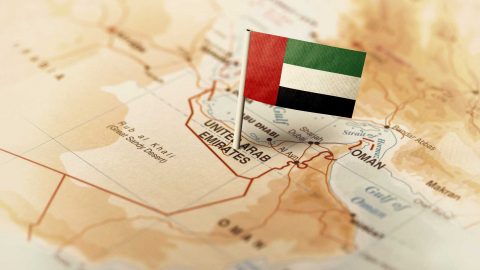
How To Check UAE Visa Status Online

Factors To Consider For Renting A Car In Dubai
Find out more here.
- All About Dubai
- Attractions in Dubai
- Dubai Business
- Dubai Fashion
- Dubai Health
- Dubai Lifestyle
- Dubai Travel & Tourism Blog
- Getting Around Dubai
Things To Do in Dubai

Most Scenic Roads to Drive With a Luxury Car Rental in Dubai

7 Fun Things to Do in Dubai with Children

5 of the Best Family-Friendly Attractions in UAE

5 Amazing Places to Visit in Dubai in 2022
Dubai Tour Pro is Dubai's best travel guide built with passion to help you make a successful and memorable holidays to Dubai. With its selection of things to do in Dubai , information on Dubai shopping , getting around the UAE city and much more, you'll get served. Learn more here .
- Editorial Policy
- Privacy Policy
- Cookie Policy
From 2018 | © Dubai Tour Pro - Dubai No1 Travel Guide | Built with much love ❤️
- Best Time to Visit
- Weather & Climate
- Dubai International Airport Guide
- Public Transit
- Currency in Dubai
- Safety & Laws in Dubai
- 48-Hour Itinerary
- Day Trips From Dubai
- Top Things to See & Do
- Free Things to Do in Dubai
- Things to Do at Palm Jumeirah
- Best Museums
- Best Beaches in Dubai
- Dubai's Coolest Architecture
- Adventure Activities
- Dubai Marina
- Sheikh Zayed Grand Mosque
- Jumeirah Mosque
- Must-Try Food
- Best Restaurants
- Nightlife in Dubai
- Search Please fill out this field.
- Newsletters
- Destinations
- Africa & Middle East
- United Arab Emirates
Is It Safe in Dubai?
Travel Advisories
Is dubai safe for solo travelers, is dubai safe for female travelers.
- Safety Tips for LGBTQ+ Travelers
Safety Tips for BIPOC Travelers
Safety tips for travelers.
Davis McCardle / Getty Images
In terms of crime, Dubai is one of the safest destinations in the Middle East. The largest city in the United Arab Emirates is a major tourist and business hub and one of the fastest-growing cities with international travelers in the world. Street crime including pickpocketing and bag snatching is uncommon, and thanks to the presence of security and cameras, you’ll feel safe using public transport in Dubai and wandering around most parts of the city by day and by night .
Dubai has some of the lowest crime rates—for both violent and non-violent crimes—of any city in the world and is ranked as one of the best places for personal safety.
The biggest risk to your safety in Dubai is unwittingly breaking a local law. Dubai has strict laws regarding alcohol consumption, dress, sexual conduct, and social behaviors in general that are important for visitors to take note of. Some of these laws include only drinking alcohol in your home and at licensed venues. That means living in Dubai will need to apply for a license to purchase alcohol and keep it at home. Tourists in Dubai can obtain a temporary liquor license for one month .
Drug use is also prohibited in Dubai, with even transiting passengers in Dubai facing strict consequences for getting caught with illegal substances. Though punishments for recreational drug use have loosened, check the rules before departure. Not being aware of a law isn't an excuse for breaking it, so make sure you're familiar with at least the most common infractions before setting off.
The truth is that many of these laws are broken every single day and no one cares; bars will sell you an alcoholic beverage even if you don't have a permit, hotels will give rooms to couples without asking for a marriage license, and travelers will take selfies that have other people in the background. It usually isn't a problem, until it is. A nearby plainclothes police officer or an upset individual who reports you can quickly turn your harmless mistake into a punishable offense.
- Due to COVID-19, the U.S. Department of State has issued a global travel warning to avoid all international travel indefinitely.
- Prior to COVID-19, the State Department advised travelers to "exercise normal precautions" when visiting the UAE, the lowest possible travel warning.
Solo travelers have little to worry about in terms of personal safety. The city is safe to walk around and explore, and the ubiquitous cameras placed on every street provide a sense of security even when walking alone late at night. As long as you follow the local rules, you should be just fine while exploring Dubai.
The strict rules around sexual behavior and conservative culture also make Dubai an exceedingly safe location for female travelers. Women are expected to dress modestly and have most body parts covered (exceptions are made when at the beach), but even catcalling is rare to hear around the streets of Duba. And while sexual assaults are very rare in the city, the UAE legal system can potentially punish the woman as well as the attacker, giving victims little recourse. In fact, several human rights organizations, including Human Rights Watch, discourage victims from reporting sexual assaults to local police in case of retribution.
Safety Tips for LGBTQ+ Travelers
The United Arab Emirates has some of the strictest laws regarding LGBTQ+ rights in the world, and just because Dubai is a major cosmopolitan city doesn't mean it's more progressive than other parts of the country. All types of same-sex acts are illegal and punishable by fines, imprisonment, deportation, flogging, or death, although the most extreme consequences are usually only applicable to Muslim defendants and when coupled with other crimes, such as adultery. In fact, any type of romantic relationship outside of marriage is unlawful, so heterosexual travelers need to be wary as well.
Trans travelers arriving in Dubai have been detained and questioned at the airport for not having their gender recognized by local officials, and have even been deported back to their home country. Wearing clothes that don't correspond to your sex assigned at birth is also illegal in the UAE.
Dubai is a remarkably diverse and international city that houses people from all over the world. In fact, the foreign-born population of the Emirate of Dubai makes up about 85 percent of the population, far greater than the number of native Emiratis.
Just because Dubai is a cosmopolitan city doesn't mean that prejudice doesn't exist, but foreign residents and tourists are more likely to see discrimination based on nationality rather than skin color. Citizens coming from Western countries such as the U.S., Europe, or Australia enjoy privileges that other citizens do not. The capriciousness of the law in Dubai can be applied indiscriminately to anyone, but citizens from non-Western nations may have more trouble if they are caught doing something illegal.
- It is legal for non-Muslims to consume alcohol in Dubai, so long as they’re drinking in a licensed venue (which are typically attached to a hotel). Once you’re outside of a legal venue, if you’re seen to be drunk or causing a raucous in public you could land yourself in jail.
- The official legal alcohol limit for drivers in Dubai is zero—there’s no leeway here, so don't get behind the wheel even if you've had just one drink.
- Kissing and holding hands in public is deemed “inappropriate behavior,” so keep it clean while you’re out and about. Any sexual relation between non-married couples is also illegal.
- It is an offense to use rude language or aggressive hand gestures, including while driving.
- It’s against the law to make defamatory statements or offensive comments about people and organizations in the UAE, so mind your language on social media posts—including review sites.
- While Dubai is a conservative city year-round, it is doubly so during the month of Ramadan. During this time, it is forbidden to eat or drink in public during daylight hours (some restaurants and shopping malls have curtained areas for non-Muslims to dine in during Ramadan). Don't play loud music and be sure to dress extra-modestly.
OSAC.gov. "UAE 2020 Crime & Safety Report: Dubai." Retrieved on December 22, 2020.
The Economist. " Safe Cities Index 2019. " August 5, 2019.
U.S. Department of State. " Global Health Advisory. " March 31, 2020. Updated December 22, 2020.
U.S. Department of State. " United Arab Emirates. " May 17, 2019.
Khaleej Times. "Hefty fine, jail for staring at women, catcalling in UAE." Retrieved December 22, 2020.
Human Rights Watch. " World Report 2020. " 2020.
Human Dignity Trust. "United Arab Emirates." Retrieved December 22, 2020.
NBC News. "UAE imprisons transgender tourist, friend for their look." August 24, 2017. Retrieved December 22, 2020.
Human Dignity Trust. "HDT - Injustice Exposed - The Criminalisation of Transgender People and Its Impacts." Retrieved on December 22, 2020.
Global Media Insight. "UAE Population Statistics 2020 (Infographics)." July 7, 2020. Retrieved December 22, 2020.
Related Articles
More related articles.
- Share full article
Advertisement
Supported by
U.A.E. Changes Laws to Attract Foreign Tourists and Investment
The United Arab Emirates is abolishing lenient sentences for so-called honor killings, loosening alcohol restrictions and lessening the sway of Islamic law over foreigners.

By Ben Hubbard
BEIRUT, Lebanon — The United Arab Emirates announced a series of legal changes over the weekend that improved protections for women, loosened regulations on alcohol consumption and expanded the ability of noncitizens to follow foreign laws for inheritance and divorce.
The moves diminish the role of Islamic legal codes in the gulf Arab country’s justice system as it seeks to enhance its brand as a globalized, forward-looking place attractive to foreign tourists, professionals and investors.
The Emirates, which this year became the third Arab country to normalize relations with Israel , hopes to welcome Israeli tourist and investors and is planning to host a world exposition next year that is expected to draw millions of visitors.
Nearly 90 percent of the 10 million people living in the Emirates are foreigners. While most are low-paid laborers from South Asia, the rest include professionals from the United States, Europe and other Arab countries.
That diversity of culture and religion has at times run headlong into the country’s laws, which are based on Islamic law, or Shariah . While the authorities willfully ignore many violations, foreigners have on occasion been arrested for such crimes as posting satirical videos online , public drunkenness or kissing.
The state-run Emirates News Agency announced the changes on Sunday, saying they would promote tolerance and improve the country’s place “as one of the most socially and economically attractive countries in the world.”
The National, a government-linked newspaper based in the capital, Abu Dhabi, called the changes “one of the biggest overhauls of the legal system in years.”
The newspaper reported that light sentences would be eliminated for so-called honor crimes, meaning when men abuse or kill female relatives for what are deemed to be improper relations with other men. Going forward, such crimes would be handled like other types of assault or homicide, the report said.
The changes also toughened the law against sexual harassment , increasing the maximum fine to about $27,000.
Other changes altered the laws governing divorce and inheritance for non-Emirati citizens.
Divorces in the Emirates will now follow the law in the country where the marriage was conducted, the paper reported. Previously, divorces for non-Muslims followed the laws in the husband’s home country, and divorces between Muslims were carried out according to Shariah.
Under the new laws, inheritance will be governed by the laws of the deceased’s home country. Previously, inheritance for Muslims was carried out according to Shariah, which usually allots female heirs half of what male heirs get, and non-Muslim heirs could petition to have their home country’s laws applied.
The National also reported that drinking alcohol, attempting suicide and the cohabitation of unmarried women and men would be decriminalized.
But it was not immediately clear how the new legal regime would be enforced, since local judicial authorities of the country’s seven emirates have considerable leeway in applying the laws, with the ability to determine, for example, where alcohol can be legally sold.
“Some of these reforms are quite important,” said Rothna Begum, senior women’s rights researcher at Human Rights Watch, specifically mentioning the decriminalization of attempted suicide and the removal of lenient sentences “that allow men to kill and harm women in the name of honor.”
But she had not seen the actual texts of the new laws, making it hard to judge their scope.
The changes to divorce laws did not apply to Emirati women, leaving them subject to laws Ms. Begum called discriminatory. And it was not clear whether the changes that allowed cohabitation of unmarried couples removed so-called indecency laws used to punish extramarital sex, she said.
Those laws had disproportionately been used against migrant women, she said, and allowed women who reported being raped to be prosecuted for adultery.
The new laws aimed to improve the country’s image ahead of Expo 2020 , a global fair that was scheduled to be held in Dubai this October but was postponed until next year because of the coronavirus pandemic, Ms. Begum said. But they needed to be applied equally to everyone in the country.
“You can get away with a lot in Dubai,” she said. “The problem is that they still have a lot of discrimination depending on who you are.”
Ben Hubbard is the Beirut bureau chief. He has spent more than a dozen years in the Arab world, including Syria, Iraq, Lebanon, Saudi Arabia, Egypt and Yemen. He is the author of “MBS: The Rise to Power of Mohammed bin Salman.” More about Ben Hubbard

- Other languages
- Accessibility

- Information and services
- About the UAE
- Justice, safety and the law
- Handling the COVID-19 outbreak
Safety standards for tourism and retail establishments amid COVID-19
The UAE Government introduced several safety standards for tourism and retail establishments to follow amid the pandemic of COVID-19. The safety standards aim to build trust in tourists and customers about their health and safety while they are at these establishments and thus boost tourism and economy. Safety standards include: the ‘Dubai Assured’ stamp, the 'Go Safe' certification programme, Bureau Veritas (BV) certification and mandatory COVID-19 tests for all tourism sector staff.
‘Dubai Assured’ stamp
'go safe' certification programme, bv certification, mandatory covid-19 tests for all tourism sector staff.
The ‘Dubai Assured’ stamp is a part of the health and safety compliance programme. The stamp is issued to hotels, retail establishments, F&B outlets and entertainment attractions that have implemented all public health protocols for the prevention and management of COVID-19. The programme is part of the efforts to showcase Dubai as one of the world’s safest destinations as it has started to receive tourists.
The specially designed ‘Dubai Assured’ stamp, which is issued free of charge, has a validity of 15 days. It can be renewed every two weeks upon further verification by inspectors from the relevant authorities.
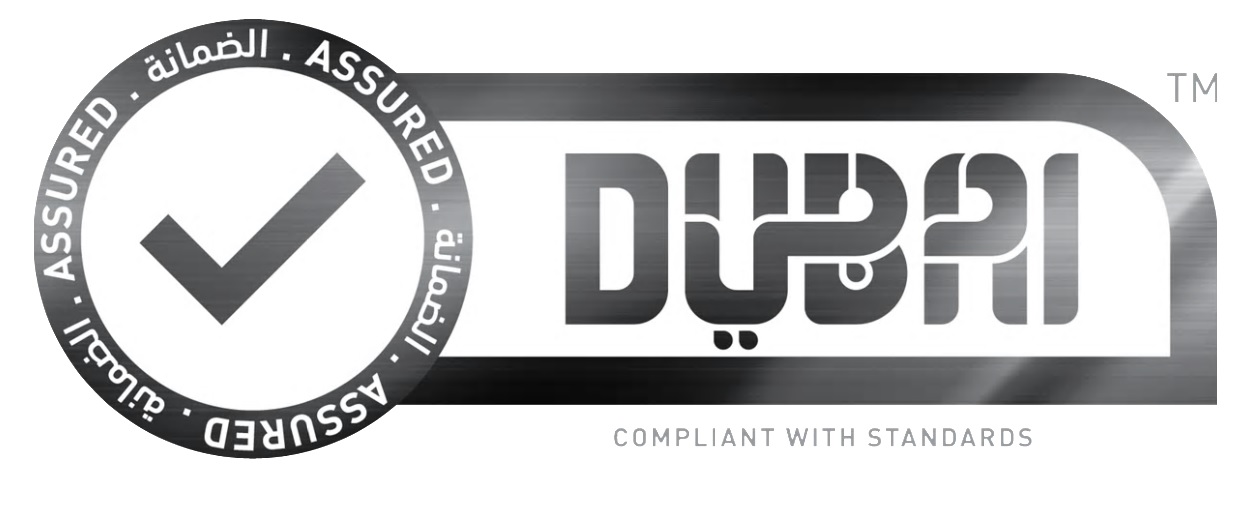
Image source: Dubai Tourism
The stamp is a visual mark which can reassure guests that safety and hygiene measures prescribed by the authorities have been complied with across all tiers and categories of tourist and resident facilities such as hotels, attractions, retail, food and beverage outlets, and leisure and entertainment destinations. The establishments can feature this stamp in their marketing communications.
Read news coverage on WAM .
Learn more and read FAQs on the website of Dubai Tourism .
The Go Safe Certification is a programme launched by Department of Culture and Tourism – Abu Dhabi, and endorsed by Abu Dhabi Government, which is aimed at elevating and standardising hygiene and cleanliness levels across tourism and retail establishments in the emirate.
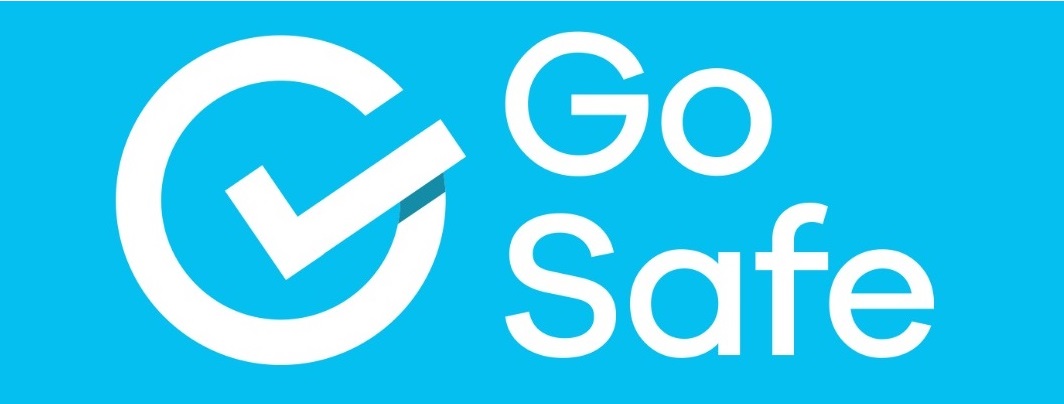
The Certification will first be conferred to compliant hotels that meet the required hygiene and standards. As Abu Dhabi moves forward in reviving touristic activity and receiving more and more visitors, the Certification will be expanded to include other facilities such as malls, museums, amusement parks and restaurants. The launch of the Go Safe Certification goes hand in hand with the commitment and efforts of the Abu Dhabi Government to combat the spread of COVID-19, which include widespread testing, city-wide sanitation, social distancing, and enhanced healthcare services.
Read related news coverage on WAM .
Read more about "Go Safe" programme on the website of Abu Dhabi Department of Culture and Tourism .
In line with #AbuDhabi ’s efforts to limit the spread of Covid-19, @dctabudhabi launches the Go Safe certification programme to implement the highest health and safety standards across hotels and tourist attractions. pic.twitter.com/WpWVB5ncXb — مكتب أبوظبي الإعلامي (@admediaoffice) June 20, 2020
In line with the 'Go Safe' certification programme spearheaded by the Department of Culture and Tourism – Abu Dhabi, regular COVID-19 testing for all tourism sector staff has been made mandatory.
The effort is part of DCT Abu Dhabi’s extensive and ongoing efforts to ensure the health and safety of its residents and visitors and follows the recent launch of the ‘ Rediscover Abu Dhabi’ campaign aimed at engaging with the myriad staycation and touristic offers made available to visitors within the UAE capital.
The Department of Culture and Tourism – Abu Dhabi has mandated regular COVID-19 testing for all tourism sector staff #InAbuDhabi . In line with the Go Safe Certification Programme, and following the recent launch of the #RediscoverAbuDhabi campaign pic.twitter.com/m7MvrKkEJO — Department of Culture and Tourism - Abu Dhabi (@dctabudhabi) July 27, 2020
Was this information helpful?
Give us your feedback so we can improve your experience.
Thank you for submitting your feedback.
Popular searches
- Government services around the clock
- Visa and Emirates ID
- Moving to the UAE
- العربية Other languages

Search Smartraveller

United Arab Emirates
Latest update.
Exercise a high degree of caution in the UAE due to the threat of terrorism.
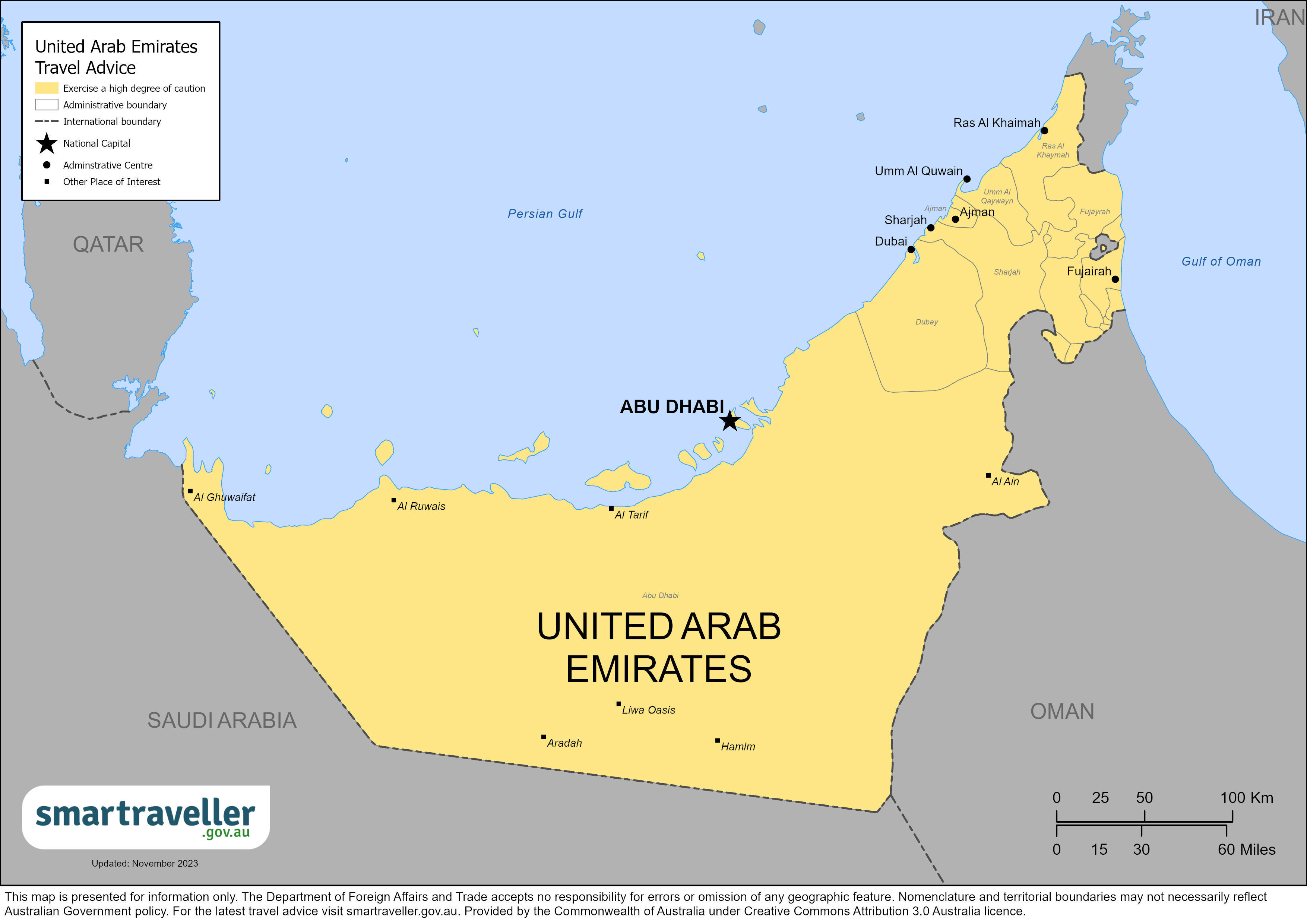
UAE (PDF 781.23 KB)
The Middle East (PDF 1.45 MB)
Local emergency contacts
Fire and rescue services, medical emergencies, advice levels.
Exercise a high degree of caution in the United Arab Emirates.
Exercise a high degree of caution in the United Arab Emirates due to the threat of terrorism.
- An increased threat of military and terrorist attacks against Israel and Israeli interests across the region and ongoing military action in the Occupied Palestinian Territories could lead to increased tensions in other locations in the Middle East. Demonstration and protest activity may occur, and localised security situations could deteriorate with little notice. Avoid all demonstrations and protests.
- This may also result in airspace closures, flight cancellations and flight diversions and other travel disruptions.
- Conflicts in the Middle East and Gulf region could affect the UAE. Monitor local and international media. If there's a security incident, follow the advice of local officials.
- There's an increased threat of terrorism in the UAE, including threats against military bases. Maintain a high level of security awareness.
- Protests or demonstrations may be considered illegal. Avoid demonstrations or protests. Monitor local media and follow the advice of local authorities.
- Missiles and uncrewed aerial systems (drones) were last launched at the UAE from Yemen in early 2022. Most were intercepted, but there were casualties. Further attacks are possible.
- The crime rate is low. Petty crime, such as pickpocketing and bag snatching, occurs but is rare. Drink spiking sometimes happens. Physical and verbal harassment and sexual assaults occur. Avoid walking alone after dark in isolated places, including pedestrian underpasses.
- Be prepared for extreme weather. Between June and September, temperatures can exceed 50°C. Sand and dust storms are also common. In extreme heat, stay out of the sun and drink plenty of water. Intense storms can occur between December and May, which may trigger flash flooding. Monitor local media and follow the advice of local authorities.
- Many areas of the Gulf are sensitive to security issues and territorial disputes. There's also a risk of piracy. If you're planning sea travel, refer to the International Maritime Bureau’s piracy reports.
Full travel advice: Safety
- There's a heightened risk of contracting communicable diseases like cholera, typhoid and hepatitis A following heavy rains and flooding which occurred in April. Avoid contact with stagnant water and use bottled water to brush your teeth.
- Cases of dengue have been reported. Protect yourself from mosquito bites.
- Cases of Middle East respiratory syndrome coronavirus (MERS-CoV) have been reported. Avoid contact with camels and products contaminated with camel secretions.
Waterborne, foodborne, parasitic and other infectious diseases sometimes occur. Get medical advice if you develop a fever or diarrhoea.
- Red algae or 'red tide' may sometimes affect beaches. This can cause skin and eye irritations, as well as breathing problems. Don't swim in affected water.
- The standard of public medical facilities in major cities is adequate. However, services might not be available in remote areas. You may have to pay upfront before treatment.
Full travel advice: Health
- If you have any unresolved criminal charges in the UAE, including unpaid debts, authorities may detain you on arrival, even if you're in transit.
- Many things that are acceptable in Australia are illegal in the UAE. It's illegal to insult an ethnic or religious group, the UAE, the royal families/government officials or the UAE flag. Same-sex relations are illegal and same-sex marriage is not recognised. Familiarise yourself with local rules before you go.
- There's a zero tolerance for illegal drugs and drug-related offences. Penalties for drug offences include the death penalty or life imprisonment.
- It's illegal to be drunk in public, including at airports across the UAE. It's illegal to consume alcohol in the Emirate of Sharjah (see 'Alcohol' section for more information).
- Be careful when taking photos. It's illegal to photograph airports and transport infrastructure, bridges, government buildings, embassies and palaces. It's also illegal to photograph anyone or post photos of people or their personal belongings (including vehicles) on social media without their consent. This includes people in the background of photos.
- You'll need a permit from the UAE before undertaking media activity or bringing media equipment into the UAE.
- The UAE doesn't recognise dual nationality. We can't provide consular help if you enter the UAE on a non-Australian passport.
- The UAE has strict dress and behaviour codes. Wear clothing that covers your shoulders and knees. Dress modestly, especially in the Emirates of Sharjah and Ajman, where Islamic law is strictly enforced.
Full travel advice: Local laws
- You won't be allowed to enter the UAE if you have 'XX' in your birthdate in your Australian passport. It must show a day, month and year. Your Australian passport must also include your first name and last name.
- Tourist visas are issued on arrival in Abu Dhabi and Dubai. Visit the UAE Federal E-Governmental Portal for information regarding visas to the UAE.
- See the latest information for travelling to, from or connecting through Dubai .
- See the latest information for travelling to, from or connecting through Abu Dhabi.
- If you're travelling on a Diplomatic or official passport, you must obtain a visa before travelling.
- Emergency passports are not accepted for entry to the UAE.
- Entry and exit conditions can change at short notice. You should contact the nearest embassy or consulate of the UAE for the latest details.
Full travel advice: Travel
Local contacts
- The Consular Services Charter details what we can and can't do to help you overseas.
- For consular help, contact the Australian Embassy in Abu Dhabi or the Australian Consulate-General in Dubai .
- To stay up to date with local information, follow the Embassy's social media accounts.
Full travel advice: Local contacts
Full advice
Civil unrest and political tension.
The security situation in the region remains unpredictable and could deteriorate with little or no warning. Conflicts in the Middle East or Gulf region could affect the UAE.
There's an increased threat of terrorism in the UAE, including threats against military bases. Maintain a high level of security awareness.
Rebel groups in Yemen have previously targeted the UAE and neighbouring countries with uncrewed aerial systems including drones and missiles.
- On 24 and 31 January 2022, UAE air defence forces intercepted and destroyed three ballistic missiles launched from Yemen, with no casualties.
- On 17 January 2022, a device hit three fuel tankers in an industrial area of Abu Dhabi, resulting in explosions which killed three people and injured several others.
Further attacks are possible.
Be alert and monitor local and international media. In the event of a security incident, follow the advice of local authorities.
Demonstrations and protests
Demonstrations in the UAE are rare and must be authorised by the government. Wearing clothing reminiscent of a political cause may be seen as a form of protest. Australians have been detained for wearing the Palestinian Keffiyeh (head scarf) and rainbow colours.
To protect yourself in case of unrest:
- avoid all rallies and protests
- monitor the media for news of possible demonstrations or protests
- be prepared to change your travel plans
More information:
- Demonstrations and civil unrest
Authorities have in the past arrested several alleged terrorists for possibly planning attacks in the UAE.
Several terrorist attacks have happened in the wider Gulf region in recent years.
Attacks could occur at any time and could target:
- places of worship
- military sites
- transport hubs
- shopping malls and markets
- major events
- residential compounds
- tourist locations
- other locations visited by foreigners
- Terrorist threats
The UAE has a low crime rate.
Pickpocketing and bag snatching occurs but is rare.
Incidents of drink spiking are reported.
Physical and verbal harassment and sexual assaults occur. Avoid walking alone after dark in isolated places, including pedestrian underpasses.
Sexual assault
If you're a victim of sexual assault, find out about support services as quickly as possible from the:
- Australian Embassy and Consulate-General in the UAE
- Consular Emergency Centre in Canberra
Consular officers can't provide legal or medical advice. However, they can provide lists of English-speaking service providers who may be able to help.
UAE law places a high burden of proof on the victim. Victims of sexual assault will need to demonstrate that the sexual relations were not consensual, especially when the victim had consumed alcohol or where the alleged attacker was known to the victim.
Kidnapping can happen anywhere, anytime, including in destinations that are typically at lower risk.
The Australian Government's longstanding policy is that it doesn't make payments or concessions to kidnappers.
Cyber security
You may be at risk of cyber-based threats during overseas travel to any country. Digital identity theft is a growing concern. Your devices and personal data can be compromised, especially if you’re connecting to Wi-Fi, using or connecting to shared or public computers, or to Bluetooth.
Social media can also be risky in destinations where there are social or political tensions, or laws that may seem unreasonable by Australian standards. Travellers have been arrested for things they have said on social media. Don't comment on local or political events on your social media.
- Cyber security when travelling overseas
Swimming safety
At the beach, be aware of strong currents and obey warning signs.
Tours and adventure activities
Transport and tour operators don't always follow safety and maintenance standards. This includes adventure activities.
If you plan to do a tour or adventure activity :
- check if your travel insurance policy covers it
- ask about and insist on minimum safety requirements
- always use available safety gear, such as life jackets or seatbelts
If proper safety equipment isn't available, use another provider.
Climate and natural disasters
Hot summers.
The UAE experiences extremely high temperatures. The hottest months of the year are June to September. The temperature can exceed 50°C.
In extreme heat, stay out of the sun and drink water to avoid dehydration.
Sandstorms and dust storms often happen.
Foggy winters
In winter months, morning fog can significantly reduce visibility. This can cause flight delays and road hazards.
Take extra care if you're driving. Plan your travel in advance and follow the advice of local authorities.
Severe weather
Although they're rare, the UAE can experience severe thunderstorms, strong winds and heavy rain, particularly during spring and autumn.
Flash flooding can cause dangerous driving conditions.
Flash flooding in river canyons (wadis) has caused some deaths in recent years.
In severe weather , stay indoors and avoid driving if possible.
Monitor the media and local government websites, such as:
- the National Emergency Crisis and Disaster Management Authority
- the National Center for Meteorology and Seismology
The NCEMA Facebook page and NCEMA website will be updated during a crisis.
Natural disasters
Earth tremors occur in the UAE, particularly following a major earthquake elsewhere in the region.
Access more information about natural disasters from the Global Disaster Alert and Coordination System .
If a natural disaster happens, follow the advice of local authorities.
Travel insurance
Get comprehensive travel insurance before you travel.
Your policy needs to cover all overseas medical costs, including medical evacuation. The Australian Government won't pay for these costs.
If you can't afford travel insurance, you can't afford to travel. This applies to everyone, no matter how healthy and fit you are.
If you're not insured, you may have to pay many thousands of dollars up-front for medical care.
- what activities and care your policy covers
- that your insurance covers you for the whole time you'll be away
Physical and mental health
Consider your physical and mental health before you travel, especially if you have an existing medical condition.
See your doctor or travel clinic to:
- have a basic health check-up
- ask if your travel plans may affect your health
- plan any vaccinations you need
Do this at least 8 weeks before you leave.
If you have immediate concerns for your welfare or the welfare of another Australian, call the 24-hour Consular Emergency Centre on +61 2 6261 3305 or contact your nearest Australian Embassy, High Commission or Consulate to discuss counselling hotlines and services available in your location.
- General health advice
- Healthy holiday tips (Healthdirect Australia)
Medications
Not all medication available over the counter or by prescription in Australia is available in other countries. Some may even be considered illegal or a controlled substance, even if prescribed by an Australian doctor.
There are laws about bringing in certain medications into the UAE. If you arrive with certain medication, you may not be allowed into the country or may be prosecuted. Get pre-approval and the required documents before you arrive.
You can only bring a 3-month supply of medication, whether entering or transiting the UAE.
Authorities have detained or deported travellers for:
- carrying medication to treat HIV/AIDS or hepatitis
- testing positive for HIV/AIDS or hepatitis
Before you leave Australia:
- check if your medication is legal in the UAE by visiting the UAE Ministry of Health website and downloading the Annex to Travellers Guidelines (PDF 331KB) under Resources.
- some medications require a permit, you can apply for a permit through the UAE Ministry of Health website
- contact the UAE Ministry of Health if the link to their website is not functioning in your country or if you require more information, by e-mailing [email protected] or calling +971 800 11111. You may also contact the UAE embassy in the country you are in.
- if needed, have DFAT authenticate your medical documents
Health risks
Cases of dengue have been reported in the United Arab Emirates.
Dengue is transmitted to humans through mosquito bites. The mosquitoes that spread dengue are active during the day. To protect yourself from disease:
- make sure your accommodation is insect-proof
- always use insect repellent
- wear long, loose, light-coloured clothing
Middle East respiratory syndrome coronavirus
Cases of Middle East respiratory syndrome coronavirus (MERS-CoV) have been reported in:
- Saudi Arabia
- the United Arab Emirates
Other countries have reported imported cases from returned travellers.
Avoid contact with camels. Don't consume raw camel milk, undercooked camel meat, or anything contaminated with camel secretions.
Get medical advice if you have a fever, cough, breathing difficulties or diarrhoea.
- MERS information (Department of Health and Aged Care)
Other health risks
Dust storms and sandstorms can make breathing issues worse.
Red tide algal blooms sometimes affect beaches. This can cause:
- skin irritations
- eye irritations
- breathing problems
Don't swim in affected water. Check with local authorities about outbreaks.
If there's a red tide alert, follow local warnings. This algal bloom can cause paralytic shellfish poisoning. Avoid shellfish and seafood because they may be affected.
- Infectious diseases
- COVID-19 (Department of Health and Aged Care)
Medical care
Medical facilities.
The standard of public medical facilities in major cities is adequate. However, services might not be available in remote areas.
Several private facilities meet international standards. You can find these in:
- Al Ain
There's no reciprocal healthcare agreement between Australia and the UAE. Before treating patients, hospitals often ask for:
- guarantee of payment
- proof of medical insurance
- an upfront deposit
You're subject to all local laws and penalties, including those that appear harsh by Australian standards. Research local laws before travelling.
Behaviour that could be considered offensive or antisocial, but not criminal, in Australia could violate UAE law. Anyone breaking UAE laws, even without knowing, may face severe punishments.
UAE law applies to you even if you're only transiting and don't leave the airport.
The UAE is a mostly Muslim country. Local laws closely reflect Islamic practices and beliefs.
Sharia or Islamic courts work alongside the civil and criminal courts in the UAE. This can make legal issues and systems complicated.
Even simple legal issues can be complex and take time to be resolved. Custodial sentences are served in local jails.
If you have unresolved criminal charges in the UAE, including unpaid debts, authorities may detain you on arrival, even if you're in transit.
You can enquire about your legal status through the Abu Dhabi Judicial Department online enquiry service or through the Government of Dubai Public Prosecutor online enquiry service.
Your UAE Unified Identity Number can be retrieved through the online Unified Number Enquiry Service .
Legal process
If you come to the attention of UAE authorities, your case will be dealt with by the local legal and judicial system. This differs significantly from Australia's legal system.
If you're arrested, authorities may hold you for a long time before your case goes to trial. UAE authorities can hold your passport and stop you from leaving the country. Even simple legal issues can take a long time to resolve. Custodial sentences are served in local jails.
If you're going to be deported, you'll be in immigration detention for at least 24 hours before being allowed to leave the UAE.
To get a list of lawyers who can represent you, either:
- download from Australian Embassy and Consulate-General in the UAE
- call the Consular Emergency Centre in Canberra
If you're arrested or jailed, we will do what we can to help you under our Consular Services Charter . But we can't get you out of trouble or out of jail.
- Arrested or in prison
Laws in individual emirates
The UAE is made up of 7 emirates, each with its own justice system. Laws, legal procedures and penalties vary between systems.
There's a federal court system with a final court of appeal in Abu Dhabi. This is called the Federal Supreme Court. Dubai and Ras Al Khaimah aren't part of this system.
Commercial, civil and family law disputes
Australians are often involved in disputes where local firms or courts have taken their passport. This prevents them from leaving the UAE until the dispute is settled.
You can be jailed or stopped from leaving the UAE for offences including:
- having a cheque dishonoured
- not paying bills, including court fines, hotel bills, personal loans and local credit cards
Immigration authorities can refuse you entry if you have a criminal record. It won't matter how long ago the offence took place.
If you travel to the UAE with an active case against you, including an unpaid UAE debt, authorities are likely to detain you on arrival. This applies even if you're only in transit and don't plan to leave the airport. Speak to a lawyer before you travel if you think you might have an unsettled case against you.
Bail is generally not available to non-residents arrested for fraud. You can be jailed until debts are settled.
If you take part in activities involving local legal matters, get professional legal advice. This is particularly relevant for family law matters including:
- child custody
- child support
Ask a legal professional about your rights and responsibilities.
If you have children or assets in the UAE, get local legal advice about preparing a local will or registering a foreign will.
The UAE has a zero-tolerance policy towards drugs, including for travellers transiting through the country.
Penalties for drug trafficking may include the death penalty, or a sentence up to life imprisonment.
Penalties for having or using illegal drugs include lengthy jail terms and heavy fines. These laws also apply if you're transiting through the UAE.
If illegal drugs are found in blood or urine tests, this is considered possession. It won't matter where or how long ago you consumed the drugs.
You can be charged with possession if trace amounts of drugs are found on your body, clothing or luggage. You can be convicted for 0.05g or less.
Avoid carrying substances that could be mistaken for drugs or drug equipment. This can include, for example, marijuana-flavoured or branded:
- chewing gum
Lab testing on suspicious substances could take days or weeks. During this time, authorities could detain you without bail.
- Carrying or using drugs
- Ministry of Health & Prevention
- UAE Government
Media activity
You must obtain permission in advance from the Emirati authorities to undertake media activity relating to the production, transmission or distribution of printed, digital, audio, video or visual information. If you fail to do this, you could be arrested and deported from the UAE.
You can get more information on obtaining the necessary permits to carry out media activity in the UAE and bringing media equipment into the UAE by registering online at the Media Regulatory Office website .
Personal conduct
Criminal acts.
You can be fined, jailed or deported for:
- insulting other people, the UAE, the royal families, the local government or local officials
- disrespecting the UAE flag
- discriminating against or insulting a racial, ethnic or religious group
- making rude gestures
- making inappropriate or offensive comments on social media
- touching another person without their permission
It's illegal to harass women in the UAE. Behaviour that may offend or be considered illegal includes:
- ogling or long stares
- unwanted conversation
- touching any part of the body
Taking photographs of people, particularly women, without permission can lead to arrest or fines. This also applies to people you've just met.
Posting photos of people or their personal belongings on social media without their consent can be illegal. This includes people in the background of photos.
Public displays of affection
You can be arrested for intimate public displays of affection, including kissing. This behaviour can attract the attention of local authorities. See Local customs below.
Unauthorised preaching
If you engage in unauthorised preaching or distribute non-Islamic religious material to Muslims, you can be jailed and deported.
If you make offensive comments about Islam either in writing or verbally, you could be jailed or subject to other penalties.
Social media and behaviour online
The UAE has strict laws about online behaviour, including comments.
Online behaviour that may be considered a crime includes:
- spreading rumours or gossip
- defamation of an individual or business
- swearing and insulting others
- extortion and making threats or accusations
- posting photos of local incidents, such as building fires or storm damage
- using a fake IP address, such as a Virtual Private Network (VPN), to commit or cover up a crime
Punishments for these crimes include:
- deportation
Charity and fundraising activities are closely regulated, including when conducted online and via social media. Make sure charity or volunteer organisations are registered with the UAE Government before you take part.
- Advice for volunteers
Sex outside of marriage
Heterosexual sex and cohabitation outside of marriage was recently decriminalised in all Emirates except Sharjah, but you must be over the age of 18 years.
Extra-marital sexual relationships (adultery) is illegal in the UAE. If either person's spouse or parent/guardian files a criminal complaint, then both parties of an extra-marital consensual relationship shall be liable to a jail sentence.
LGBTQIA+ information
Same-sex relationships are illegal and may lead to severe punishment, including prison and fines.
Cross-dressing is also illegal.
If you're transgender or intersex, or your gender on your passport doesn't match your appearance, you may:
- be questioned at immigration
- be denied entry into the UAE
If you're travelling on an Australian passport showing 'X' or 'U' (indeterminate, intersex or unspecified) in the gender field, you won't be able to enter the UAE.
- Advice for LGBTQIA+ travellers
Prostitution
Prostitution is illegal in the UAE.
Severe penalties apply to:
- people providing prostitution services
- customers of prostitution services
Registering births of children born to unmarried parents
If you're unmarried and fall pregnant or give birth in the UAE and wish to obtain a local birth certificate, both you and your partner will need to either get married or you and/or your partner must singly or jointly acknowledge the child and provide documentation in accordance with the laws of your country.
Although a Federal law has recently decriminalized the use of alcohol, every Emirate has its own guidelines.
The Emirate of Sharjah is 'dry' which means the sale or consumption of alcohol is illegal. You can't carry alcohol in your car if you're:
- driving through Sharjah
- crossing the border from Oman into Sharjah
There are limits on how much duty-free alcohol you can bring in. These limits are strictly enforced.
Liquor licences
Liquor licences are still required for Residents in Dubai but are no longer required for Residents in Abu Dhabi and other Emirates (except for Sharjah) to purchase alcohol for personal consumption.
A liquor licence is only valid in the Emirate that issues it. For example, a liquor licence issued in Ras Al Khaimah isn't valid in Dubai.
Legal drinking age
The legal drinking age in Abu Dhabi is 18 years. However, a Ministry of Tourism by-law means hotels can only serve alcohol to people aged over 21 years.
The legal drinking age in Dubai and the northern Emirates, except for Sharjah, is 21 years.
Drinking in public
It's illegal to be intoxicated in public outside of licenced venues. You can be arrested. Authorities have arrested travellers at the airport for becoming intoxicated on a flight or while in transit.
Be careful if you're using a taxi when intoxicated. If you have a dispute with a driver or vomit in a taxi, you may be:
- taken directly to a police station
- charged with public intoxication
If you commit a crime after drinking alcohol, you'll probably be charged with both that offence and with intoxication.
Penalties for alcohol-related offences include fines, jail or deportation.
You must have a valid work permit from the UAE Ministry of Human Resources and Emiratisation for any type of employment.
If you plan to work, sort out terms and conditions or sponsorship before starting. This will minimise the risk of a dispute.
If you get into a dispute, a special department of the UAE Ministry of Human Resources and Emiratisation can review and help settle your claim.
Your UAE employer may ask to hold your passport as a condition of employment. This is illegal, but not unusual.
An employer can hold your passport for a short time when arranging, renewing or cancelling your visa or work permit. If your passport is held for a longer period, either:
- make a complaint to the UAE Ministry of Human Resources and Emiratisation
- get legal advice
If you’ve been a resident in the UAE, make sure you cancel your work visa before leaving the country permanently. If you don't, it may seem like you're running away. In this case, you could be arrested if you return to or even transit through the UAE.
You have to take a full medical exam to get a work or residence permit. This includes an HIV/AIDS test. HIV certificates issued by foreign medical authorities aren't accepted.
Other legal issues
Serious crimes and other types of illegal activities.
Serious crimes can attract the death penalty. Serious crimes include:
The UAE Government has a list of groups it considers to be terrorist organisations .
If you're associated with such groups, you could be refused entry or arrested and detained.
In the UAE it's illegal to:
- carry weapons, including pocketknives and capsicum or pepper spray
- discriminate through speech, written word or online media
- vandalise religious symbols, rituals or holy rites
Penalties for discriminating and vandalising can include:
- jail terms of 6 months to more than 10 years
- fines of up to AED2 million
Law enforcement and military equipment
You must have written approval from the UAE Ministry of Defence to transport law enforcement or military equipment into or through the UAE.
This equipment includes:
- body armour
- military equipment
- police equipment
- weapon parts and tools
Australians, including those transiting through UAE airports, have been punished for transporting this equipment without written approval. Some have been jailed or deported.
Photography and other hobbies
It's illegal to photograph:
- people without permission
- airports and related transport infrastructure
- government buildings, including embassies
Taking part in some hobbies, particularly around these sites, can break the law. These include:
- bird-watching
- flying remote-controlled helicopters or planes
- plane-spotting
Register drones with the Civil Aviation Authority of the relevant Emirate before you use them.
Driving laws
It's illegal for residents to drive without a UAE driver's licence once they have residency. Non-residents and travellers must have an International Driving Permit (IDP).
Although common in the UAE, it's illegal to use a mobile phone, eat or drink while driving.
Other illegal activities include:
- walking on highways
- hitchhiking
It's illegal to drive after drinking alcohol. You may be jailed or fined if you have any alcohol in your blood when driving. These laws are strictly enforced in the UAE.
Police must be called to all road accidents, including single vehicle accidents. It's illegal to leave the scene of a traffic accident.
If you have an accident, don't take photos of the other car without the driver's permission.
Australian laws
Some Australian criminal laws still apply when you're overseas. If you break these laws, you may face prosecution in Australia.
- Staying within the law and respecting customs
Dual citizenship
The UAE doesn't recognise dual nationality.
Children born in the UAE to Emirati fathers automatically become UAE citizens. They must enter and leave the UAE on UAE passports.
We can't provide consular help if you enter the UAE on a non-Australian passport.
Child custody decisions are based on Sharia law. Speak to a lawyer about custody disputes. Find out if your children could be prevented from leaving the country.
- Dual nationals
Local customs
The Islamic holiday month of Ramadan is observed in the UAE. Respect religious and cultural customs and laws at this time.
Avoid eating, drinking or smoking in public or in front of people who are fasting. Seek local advice to avoid offence.
Explore our Ramadan page to learn more, including dates for Ramadan.
Dress and behaviour
The UAE is a mostly Muslim country with strict standards of dress and behaviour. Take care not to offend.
Get familiar with local customs, culture and attitudes before leaving Australia.
Research dress codes for tourist attractions, shopping malls, beaches and other public places. These are often displayed onsite or available on websites.
Dress modestly, especially in Sharjah and Ajman where Islamic law is strictly enforced.
If you're a woman, cover your shoulders and knees.
Get local advice if in doubt about appropriate dress.
Visas and border measures
Every country or territory decides who can enter or leave through its borders. For specific information about the evidence you'll need to enter a foreign destination, check with the nearest embassy, consulate or immigration department of the destination you're entering.
Australian passport holders are eligible for tourist visas on arrival.
Diplomatic and official passport holders must obtain a visa before travelling.
For visa information, visit the UAE Federal E-Government Portal or the Emirates or Etihad Airlines website before booking your flight.
Entry and exit conditions can change at short notice. Contact your nearest UAE Embassy or Consulate-General or the local authorities to confirm your visa and/or residency status and for details about entry permits, currency, customs and quarantine rules.
Other formalities
Criminal activity.
If you have unresolved criminal charges, including unpaid debts in the UAE, authorities may detain you when you arrive. Immigration officials may then transfer you to police custody. This can be the case even if you only plan to transit through the airport.
If you're worried about authorities denying you entry, contact an UAE embassy or Consulate-General before you leave Australia.
Restricted items
It's illegal to import:
- poppy seeds
- pornographic material
Importing pork products requires special approvals.
Authorities may examine and censor or confiscate videos, books and magazines.
It's illegal to carry weapons or replica weapons, including used bullet cartridges, into the UAE.
Some countries won't let you enter unless your passport is valid for 6 months after you plan to leave that country. This can apply even if you're just transiting or stopping over.
Some foreign governments and airlines apply the rule inconsistently. Travellers can receive conflicting advice from different sources.
You can end up stranded if your passport is not valid for more than 6 months.
The Australian Government does not set these rules. Check your passport's expiry date before you travel. If you're not sure it'll be valid for long enough, consider getting a new passport .
Emergency passports are not accepted for entry to the UAE.
If your Australian passport has 'XX' anywhere in your date of birth, for example, 'XX FEB 1980', you will be refused entry to the UAE. Your passport must have a numerical date of birth, for example, '14 FEB 1980'.
Australian passports which have only one name will be refused entry to the UAE. You must have a name in the both the first and last name fields to enter the UAE.
If you're travelling on an Australian passport showing 'X' or (non-binary, indeterminate, intersex, or unspecified) in the sex field, you won't be able to enter or transit through the UAE. You can only enter or transit through the UAE if you carry a passport that shows the sex specified as ‘F’ (female) or ‘M’ (male).
Lost or stolen passport
Your passport is a valuable document. It's attractive to people who may try to use your identity to commit crimes.
Some people may try to trick you into giving them your passport. Always keep it in a safe place.
If you're a UAE resident and lose your Australian passport while overseas, contact your nearest UAE embassy. They can give advice on re-entering. Do this before applying for an emergency passport.
If you lose your passport before passing through UAE immigration, you must return to Australia on the next available flight.
Once you're in Australia, you can apply for a full passport. The Australian Embassy can't issue you a new passport if you haven't cleared UAE immigration.
If your passport is lost or stolen, tell the Australian Government as soon as possible:
- In Australia, contact the Australian Passport Information Service .
- If you're overseas, contact the nearest Australian embassy or consulate .
Foreigners must provide their passports for scanning when checking in to a hotel.
If UAE law enforcement take your passport for any reason, make sure they give you a receipt. You'll need the receipt to collect it later and when checking into accommodation.
The local currency is the United Arab Emirates Dirham (AED).
Currency exchange outlets and ATMs are readily available throughout the UAE. Credit cards are widely accepted.
You must declare cash above AED100,000 or the equivalent in other currencies. This covers all forms of currency, not only cash.
- Dubai Customs Services
- Abu Dhabi Airport Customs
Local travel
Driving permit.
If you're on a tourist visa and want to drive, you must get an International Driving Permit before leaving Australia.
Road travel
You're more likely to be killed in a motor vehicle accident in the UAE than in Australia.
Accidents often occur due to:
- drivers crossing lanes
- reckless overtaking
When driving, be aware of other dangers, including:
- roaming animals
- pedestrians and cyclists
- drifting sand
- dust storms
Pedestrian deaths and serious injuries on the road are common in the UAE. Only cross the road at marked crossings. However, still take extra care. Vehicles won't always give way.
Off-road driving can be dangerous. Ensure vehicles are well equipped and properly maintained.
If you're driving in desert areas, travel with at least one other vehicle. Use a GPS and take enough petrol and water.
Land border crossing points may close without notice. If you plan to leave the UAE by road, check the border crossing is open before you depart.
- Driving or riding
If you're entering the Gulf area by sea, be aware that many areas are sensitive about security and territory.
Maritime boundaries and the islands of Abu Musa and the Tunbs in the southern Gulf are under dispute between Iran and the UAE.
Relevant authorities have inspected vessels and detained and arrested people. Make enquiries before entering these waters.
- Going on a cruise
- Travelling by boat
Airports in Dubai are facing disruptions following extreme weather. Expect flight disruptions and delays. Follow airport and local authority guidance and contact your airline before going to the airport.
DFAT doesn't provide information on the safety of individual commercial airlines or flight paths.
Check the UAE's air safety profile with the Aviation Safety Network.
Emergencies
Depending on what you need, contact your:
- family and friends
- travel agent
- insurance provider
Always get a police report when you report a crime.
Your insurer should have a 24-hour emergency number.
Consular contacts
Read the Consular Services Charter for what the Australian Government can and can't do to help you overseas.
For consular assistance, contact:
Australian Embassy, Abu Dhabi
16th Floor, Nayel & Bin Harmal Tower Zayed the First Street Abu Dhabi, United Arab Emirates Phone: +971 2 401 7500 Fax: +971 2 401 7501 Email: [email protected] Website: uae.embassy.gov.au X: @AusAmbUAE
Australian Consulate-General, Dubai
25th Floor, Burjuman Centre Office Tower Sheikh Khalifa bin Zayed Road (Trade Centre Road) Dubai, United Arab Emirates Phone: +971 4 508 7100 Fax: +971 4 355 1547 Email: [email protected]
The working week of the Embassy in Abu Dhabi and the Consulate-General in Dubai is Monday to Friday. This is in line with local practice.
All visitors to the Australian Embassy (Abu Dhabi) and Consulate-General (Dubai) must have an appointment. Check the Embassy website for more information, including details about opening hours and any temporary closures.
24-hour Consular Emergency Centre
In a consular emergency, if you can't contact an embassy, call the 24-hour Consular Emergency Centre on:
- +61 2 6261 3305 from overseas
- 1300 555 135 in Australia

Travelling to United Arab Emirates?
Sign up to get the latest travel advice updates..
Be the first to know official government advice when travelling.

TechBullion
E-commerce and uae law: regulations you need to know.

The United Arab Emirates (UAE) has emerged as a thriving hub for e-commerce, driven by its strategic location, robust infrastructure, and a growing consumer base. However, navigating the legal landscape is crucial for businesses operating in this dynamic market. This article delves into the key regulations governing e-commerce in the UAE, providing essential insights for businesses looking to establish or expand their online operations.
The New E-commerce Law
In a significant step towards fostering a thriving e-commerce ecosystem, the UAE enacted Federal Decree-Law No. 14 of 2023 on Commerce through Modern Means of Technology, replacing the previous Electronic Transactions and E-commerce Law. This new legislation aims to stimulate e-commerce growth, enhance consumer protection, and streamline business operations.
Key provisions of the new law include:
- Legal recognition of electronic contracts: The law explicitly validates contracts formed electronically, emphasizing the legal enforceability of such agreements.
- Consumer protection: Robust consumer protection measures are in place, including clear product information, transparent pricing, and efficient dispute resolution mechanisms.
- Data privacy: The law underscores the importance of data protection, requiring businesses to handle customer data responsibly and securely.
- Market regulation: The legislation aims to prevent unfair competition and protect consumers from misleading advertisements and fraudulent practices.
- Cross-border e-commerce: The law facilitates cross-border e-commerce by establishing clear guidelines for international transactions.
Other Relevant Laws
While the new e-commerce law is the cornerstone of the regulatory framework, other laws also impact e-commerce businesses in the UAE:
- Consumer Protection Law: This law outlines consumer rights, including the right to return goods, seek compensation for damages, and access product information.
- Commercial Registration Law: Businesses engaged in e-commerce must comply with commercial registration requirements and obtain necessary licenses.
- Telecommunications Law: This law governs electronic communications and sets standards for internet services.
- Intellectual Property Law: Protecting intellectual property rights is crucial for e-commerce businesses. Trademark, copyright, and patent laws apply to online activities.
Key Compliance Considerations
To ensure compliance with UAE e-commerce regulations, businesses should focus on the following areas:
- Product Information: Provide accurate and detailed product descriptions, including specifications, images, and pricing.
- Payment Security: Implement robust payment gateways and encryption to protect customer data and prevent fraudulent transactions.
- Delivery and Returns: Clearly outline delivery terms, shipping costs, and return policies. Adhere to promised delivery timelines and facilitate hassle-free returns.
- Consumer Complaints: Establish a customer support system to address inquiries and complaints promptly.
- Data Privacy: Develop comprehensive data protection policies, obtain necessary consents, and implement measures to safeguard customer data.
- Fair Competition: Avoid misleading advertising, false claims, and unfair business practices.
- Electronic Contracts: Ensure clear and unambiguous terms and conditions in electronic contracts.
- Dispute Resolution: Provide accessible and efficient dispute resolution mechanisms for customers.
Challenges and Opportunities
While the UAE’s e-commerce landscape offers immense potential, businesses may encounter challenges such as:
- Regulatory Complexity: The evolving regulatory environment can be complex to navigate.
- Cross-Border Challenges: International shipping, customs, and tax regulations can pose hurdles.
- Competition: The market is highly competitive, requiring businesses to differentiate themselves.
Despite these challenges, the UAE’s e-commerce sector presents significant opportunities for growth and profitability. By understanding and complying with the legal framework, businesses can build trust with customers, mitigate risks, and achieve long-term success .
The UAE’s commitment to fostering a thriving e-commerce ecosystem is evident in its comprehensive legal framework. By staying informed about the latest regulations and implementing robust compliance measures, businesses can capitalize on the opportunities offered by this dynamic market. As the e-commerce landscape continues to evolve, staying updated on regulatory developments is essential for maintaining a competitive edge.
- United Arab Emirates Legislations Portal.
- Legal Services UAE Portal .

Recommended for you

Trending Stories

Credit Verify: Empowering Canadians on Their Journey to Financial Health
Credit scores have become a critical metric in determining one’s financial standing, affecting everything...

RCO Finance’s (RCOF) Offers Early Investors a Chance at Becoming Crypto Millionaires, Here’s How
RCO Finance (RCOF) offers early investors a unique opportunity to become crypto millionaires through...

Praveen Tripathi: A Visionary Leader and Innovator Redefining the Global IT Industry
Praveen Tripathi, Global Technology Head for AI, Cloud Services, and Digital Transformation, is a...

How HealthTech Innovations Are Revolutionizing Treatments for Women
The healthcare industry is undergoing a profound transformation, driven by the rapid advancement of...

Top 5 Accounting Software for Startups in 2024: Get your finances right from day one
As a startup, getting your finances in order from day one is crucial to...

ICE and OPEN Unveil New Benchmark for U.S. Unicorn Tracking
ICE and OPEN unveils new benchmark for tracking large U.S. Venture-Backed Unicorns Takeaway Points...

10 Best Investment Strategies for Small Investors in the U.S.: Using Big Data for Smarter Investments
Since the era of the data-driven world, small investors in the U.S. have access...

2 Tokens Under $0.1 for Instant 25x Profits: Shiba Inu (SHIB) and MoonTaurus (MNTR)
In today’s crypto world, investors are increasingly searching for tokens that offer significant growth...

Cardano (ADA) and Avalanche (AVAX) Investors Are Moving to MoonTaurus (MNTR) Following Its Transition to Phase 2 with a 100% Price Increase
Cardano (ADA) and Avalanche (AVAX) have long been recognized as strong contenders in the...

Which Is the Most Reliable Car Brand of All?
Reliability should be at the forefront of new car buyers’ mind. A car brand...

Marcus Pierce on Crypto Trading 101: What New Investors Should Know
Introduction: Crypto trading can be daunting for newcomers, but with the right guidance and...

How Technology is Transforming Support Systems for the Elderly
Discover how innovative technologies are revolutionising elderly care, enhancing support systems and improving quality...

How to Boost Your Business Efficiency with Overnight Check Mailing
Boosting business efficiency through overnight check mailing can be a game-changer for many organizations....

Premium Green Developments: Insurance Tech Leading the Way
The green buildings have really upended the real estate picture, with premium eco-friendly constructs...

AVerMedia Launches X’TRA GO: Introducing New “GO Series” Line of Products
AVerMedia has launched X’TRA GO, introducing a new “GO Series” line of products in...
Like Us On Facebook
Latest interview.

Luiza Iiupova reveals the secrets to becoming a successful marketing expert and running a marketing agency in the USA.
Luiza Iiupova reveals how she went from a small village in Russia to becoming a highly successful marketing expert and CEO of...

“Success is a Function of the Number of Attempts”: An Interview with Fractional CTO Illia Shkirenka
Many large businesses started as startups, but coming up with an idea, launching it, and staying on course is extremely challenging. Often,...
People And Career

Exploring the Journey of Eric Allen – Nelo Life Founder
After dedicating himself to a career as an inner-city teacher and collegiate basketball coach, Eric Allen embarked on a journey that led...

Ultima Business Solutions Welcomes Jamie Beaumont as New CFO
Ultima Business Solutions, a leading provider of innovative technology solutions, is proud to announce a significant enhancement to its leadership team. Effective...
Pin It on Pinterest
- Hi, My Account Subscriptions --> My KT Trading Contact Us Privacy Notice Sign Out
Wed, Aug 21, 2024 | Safar 18, 1446
Dubai 20°C
- Expo City Dubai
- Emergencies
- Ras Al Khaimah
- Umm Al Quwain
Life and Living
- Visa & Immigration in UAE
- Banking in UAE
- Schooling in UAE
- Housing in UAE
- Ramadan 2024
- Saudi Arabia
- Philippines
- Cryptocurrency
- Infrastructure
- Currency Exchange
- Horse Racing
- Local Sports
Entertainment
- Local Events
Dubai World Cup
- Track Notes
- Big Numbers
- Daily Updates
- Arts & Culture
- Mental Health
- Relationships
- Staycations
- UAE Attractions
- Tech Reviews
- Motoring Reviews
- Movie Reviews
- Book reviews
- Restaurant Reviews
- Young Times
Supplements
- Back To School
- Eid-Al-Adha
- It’s Summer Time
- Leading Universities
- Higher Education
- India Real Estate Show
- Future Of Insurance
- KT Desert Drive
- New Age Finance & Accounting Summit
- Digital Health Forum
- Subscriptions
- UAE Holidays
- Latest News
- Prayer Timings
- Cinema Listings
- Inspired Living
- Advertise With Us
- Privacy Notice
KT APPDOWNLOAD

New telemarketing rules in UAE: Full list of fines explained as laws go into effect from August 27
Penalties will increase substantially for each repeated violation.

Waheed Abbas
- Follow us on

Top Stories

UAE announces 2-month grace period for residence visa violators

UAE announces fee refund for tax service charges from August 1

Paid parking in Dubai: Residents face up to Dh4,000 extra yearly costs when new rates kick in

Published: Tue 13 Aug 2024, 6:00 AM
Last updated: Tue 13 Aug 2024, 9:40 PM
The UAE’s new telemarketing regulations are set to come into effect from August 27, as per the UAE Government.
The authority announced new laws for telemarketers in early June 2024, putting certain restrictions on them such as calling customers only from 9 am to 6 pm ; not calling residents again the same day if he/she rejects the service or product in the first call; and preventing telemarketers from using any measures or tactics to persuade customers to buy products or services.
Cold callers and telemarketing firms will face financial penalties ranging between Dh5,000 and Dh150,000 for violating the laws .
Stay up to date with the latest news. Follow KT on WhatsApp Channels.
The financial penalties increase if the violation is repeated. All the administrative penalties have been listed in three categories – first, second and third time. Penalties will increase substantially for repeating the violation each time, under Cabinet Resolution No. (57) of 2024.
Companies that fail to obtain prior approval to practice telemarketing activities will be fined Dh75,000 for the first time, Dh100,000 for the second time and Dh150,000 for the third time. Entities that fail to provide comprehensive training to marketers on the code of conduct will face a Dh10,000 to Dh50,000 penalty.
People who call through numbers that are not registered under the commercial licence of the company will be fined from Dh25,000 to Dh75,000. The companies will be required to keep a register for all marketing phone calls made, according to the form prepared by the authority, and failure to maintain it could result in a penalty of up to Dh50,000 for repeat violations.
These initiatives have been taken by the government to ensure that residents are not bombarded with cold calls, taking into consideration the complaints about telemarketing.
Individuals who call customers whose numbers are included in the DNCR (Do not call registry) for marketing purposes will face fines up to Dh150,000.
It is also mandatory for the company or individual to notify the consumer at the beginning if recording the call, and failure to follow these rules would result in a financial penalty between Dh10,000 to Dh30,000.
Additionally, those who fail to record marketing phone calls with consumers will face penalties ranging between Dh10,000 and Dh50,000.
The companies are also required to provide periodical reports to the competent authority concerning the marketing phone calls that were made within a month of the date of the report. For failure to comply with this rule, the company will face an administrative penalty of up to Dh30,000.
The caller is required to identify the company and the purpose of the call at the beginning and failure to do so could result in an administrative penalty of up to Dh30,000 for repeat violations.
In case of failure to disclose the source from which phone numbers and data of the consumer were obtained when requested, the authority could levy up to Dh75,000 financial penalty.
In addition, up to Dh50,000 fine will be levied for repeat violations for pressurising the consumer.
A penalty between Dh25,000 to Dh75,000 will be imposed for fraud and cheating while phone marketing the product or service to the consumer.
Since cold callers are required to make phone calls from 9 am to 6 pm only, violators could face a Dh10,000 fine, and up to Dh50,000 penalty for repeat violations.
The fine for repeated calls when the consumer refuses the product or service in the first call will range between Dh10,000 and Dh50,000.
Callers who ask no questions about the consumer’s desire to complete the phone call before starting their marketing services will be penalised with fines ranging between Dh10,000 and Dh30,000.
In addition, the authority will also penalise cold callers for calling back, when the customer does not answer, more than one time per day and more than two times per week. Cold callers could be fined up to Dh50,000 for repeat offences.
Companies disclosing the personal data of the consumer without consent, or trading such data for the purpose of reprocessing in order to be used in marketing phone calls will be fined Dh50,000 for the first time and as high as Dh150,000 for a third violation.
Callers who use telemarketing services provided by the company in violation of provisions of this resolution will face fines up to Dh50,000.
Finally, if a natural person makes a marketing phone call for products and services through a phone number that is licensed under his/her name, a fine of Dh5,000 will be imposed. All the numbers of fixed or mobile phones that are registered under his/her name will also be cut off until payment, for a first violation.
In addition, a second violation will lead to financial penalty of Dh20,000 in addition to cutting all numbers under his/her name for 3 months.
The penalty increases to Dh50,000 and he/she will be prevented from getting any service from the telecommunication companies in the UAE for 12 months in case the person commits the same violation for a third time within 30 days.
- UAE: Cold callers worry about targets, salaries amid new regulations
- Up to Dh1 million fine: UAE issues new law to regulate employee relationships
- 'Can't pay Dh150,000 fine': Illegal UAE expats see visa amnesty as 'last hope' to be with family
- UAE cold callers need training on new guidelines amid tighter telemarketing rules and fines
- Newsletters
- [email protected]
More news from UAE
Sharjah: 3-day esports championship launched with dh10,000 prize each day.
The championship will be held from 4pm to 10pm, starting with FIFA 24, Tekken 8 on the second day, and Super Smash Bros on the third day
uae 1 day ago -->
UAE continues its humanitarian work in Gaza, provides relief to affected families
The country's commitment in responding to the needs of the Palestinian people was highlighted in its celebration of World Humanitarian Day
Abu Dhabi: $1 million-prize drone race to take place in 2025; how to register
The race will see competitors try to navigate through a sequence of gates, avoiding obstacles, using onboard sensors and computational power
Watch: Light rains hit some parts of UAE; windy, dusty conditions continue
The met had forecast that residents in some parts of the country can expect spells of rainfall over the coming days
Dubai streets cleared of 30,000 cigarette butts in 1 year, thanks to teen’s initiative
The young expat discovered that many wrongly view cigarette butts as 'biodegradable and harmless'
‘We now know where to go’: UAE’s nannies, maids can easily file case against employer under new law
Any case involving Dh50,000 or less will now be directly resolved by Mohre and does not require to be referred to the court
UAE: Priests at BAPS Hindu temple tie rakhis to blue-collar workers on Raksha Bandhan
Many workers, who are away from their families and loved ones, expressed their joy at the opportunity to be at the temple on a festival day
uae 2 days ago -->
UAE calls on parties in war to protect civilians, aid workers in Sudan
The UAE issued a joint statement along with other countries and international bodies on the occasion of World Humanitarian Day
Type your keywords

The Obamas will speak on Night 2 of the DNC.
- What's happening tonight
Ohio brothers sentenced to 'notorious' prison following yacht party in Dubai

DUBAI, U.A.E. (WKRC) - Two Ohio brothers were sentenced to serve time in a Dubai jail following their arrest after a yacht party.
According to Detained in Dubai , an organization that provides assistance to those dealing with legal issues in the United Arab Emirates (UAE), Ohio brothers Joseph and Joshua Lopez were sentenced to a month in jail time for drinking alcohol on a yacht.
The outlet said the brothers are "facing time in some of the world's most notorious prisons."
According to the organization, Joseph Lopez is a 24-year-old Air Force veteran and social media influencer, who currently holds the title of "Mr. Louisiana." Joseph Lopez intended to visit Dubai for two weeks before preparing to train for the Mister USA competition, per the outlet.
The New York Post reported that the influencer had hoped to shoot new content for social media in the Middle East's "City of Gold." The 24-year-old has amassed around 300K followers on Instagram and TikTok.
The brothers visited Bla Bla Dubai, a nightclub located near the Dubai Marina, on June 2. At some point during the night, the Lopez brothers were invited to a hotel "after party" by an Uber driver, per the organization, which reported that the brothers were given "platters of food, sparklers and drinks that were not requested" in a VIP section.
Twenty minutes later, the lights of the establishment came on and the brothers were handed a bill. Despite feeling taken advantage of, Joseph Lopez told the organization that he paid the bill in full.
Detained in Dubai reported that the brothers were later approached by a man at the party, who invited them back to his Yacht. Despite Joseph Lopez telling the man that he was "done spending for the night," the man insisted they join him, telling the brothers they would be his "American guests."
Upon arriving on the yacht, staff gave the brothers a drink and attempted to charge them $2,722. According to the outlet, the brothers refused before they began to feel strange, with the rest of the night becoming a blur. Joseph Lopez told the outlet that he and his brother were possibly "drugged," per the organization.
“They were drugged by locals after being asked to a yacht party by a local resident,” Detained in Dubai CEO Radha Stirling wrote.
Later in the night, the brothers were confronted by men in black ski masks, who allegedly attempted to put them in a vehicle, per the organization. Feeling they were being abducted, they resisted, the organization reported.
The Lopez brothers were arrested and held at a police station from June 3 to June 12, per the organization, which said they were given bail and a travel ban.
According to the organization, the prosecutor considered charging the brothers with alcohol consumption, resisting resisting arrested and property damage to a patrol vehicle.
Detained in Dubai reported that the Lopez brothers appeared in court last week, facing a charge of drinking alcohol. They were sentenced to one month in prison, per the organization, which added that the brothers will still face a charge related to "damaging government property and assaulting an officer."
The organization said it is pushing for a diplomatic intervention from the United States, with the Lopez brothers asking for an intervention from their local representatives in Ohio: Ohio Representative Mike Carey, Senator Sherrod Brown and Senator J.D. Vance.
“The legal process in Dubai can be drawn out for months and often the punishment is the process,” Detained in Dubai wrote. "Without diplomatic intervention, these boys face potentially years in jails notorious for human rights abuse and torture."
Their next court appearance is scheduled for tomorrow, per the organization.

IMAGES
COMMENTS
When visiting Dubai as a tourist in 2023, it is essential to be aware of the strict drug and alcohol laws in place. Dubai has a zero-tolerance policy towards drugs, meaning that even the smallest amount of illegal substances can lead to severe penalties, including lengthy prison sentences and hefty fines.
Dubai offers a glitzy modern metropolis intertwined with traditional Emirati culture and values. Its tourism sector continues to boom exponentially, attracting over 16 million annual visitors prior to the COVID-19 pandemic. However, Dubai also has very strict laws that tourists must respect to avoid fines or deportation.
A to Z: UAE Rules, laws and Regulations Alcohol Consumption. Non-Muslims are allowed to drink alcohol in Dubai if they are on licensed premises. Some restaurants and most hotels hold a license to serve you alcohol. In 2020 the UAE introduced new legislation stating that drinking alcohol without a license is no longer illegal in the United Arab ...
Travel requirements by destination. The aim of the travel guide page is to provide instructions and advise for Emirati travelers through an interactive map that showcases all the information they need to know before traveling. If quarantine is needed upon arrival (considering, the below details) Please select your destination from the list/map.
Travelling to Dubai: rules as of November 30, 2021. Rules for Dubai residence visa holders. All UAE residents can travel to Dubai without an approval from the General Directorate of Residency and ...
There is no quarantine on arrival in Dubai. But anyone who takes a Covid test at the airport must remain in their hotel or residence until they receive the result. If it is positive, the traveller will have to isolate as per Dubai Health Authority guidelines. If it is negative, they are free to go out and explore the city.
The latest official announcements, circulars and legislative news. Laws, decrees, regulations and circulars released by the Department of Economy and Tourism as the principal authority governing the emirate's economy and tourism sectors. Check out the laws, regulations and circulars released by DET as the principal authority governing the ...
The multiple entry 5-year tourist visa enables tourists to enter the UAE multiple times on self-sponsorship and remain in the country for 90 days on each visit, and can be extended for further 90 days. This type of tourist visa can be issued for all nationalities. To obtain this visa, the applicant must have: proof of stay (hotel/residential ...
Department of Economy and Tourism. One Central, building 2, 4th floor PO Box 594 Dubai, United Arab Emirates. Office hours: Monday - Friday 08:00 - 18:00. Call us: +971 600 55 55 59. Email us. Send in your queries to. [email protected]. Whatsapp Chat (Live 08:00 - 20:00):
Pursuant to this Law, a Government department named the "Dubai Economy and Tourism Department" is established. The DET will have legal personality and the legal capacity required to undertake the acts and dispositions that ensure the achievement of its objectives. The DET will be affiliated to the Executive Council.
Throughout 2023 the UAE announced multiple new rules and regulations for both tourists and residences; these are the top six new laws deserving of everyone's full attention. Bazaar Arabia shares them here. Slow Drivers Fines and No Grace Periods For Tourist Visas: 6 New Laws in The UAE That You Need To Know Reduction Of Tourism Tax in Abu Dhabi
Dubai is a Muslim country with a Sunni Muslim majority of approximately 76%. The country's laws are based on a Civil Law System, and Sharia Law, which may have some key differences from the legal systems tourists are used to. You can learn more about "the Call to Prayer" and Islamic practices in Dubai here. See a full guide to Dubai's ...
Tourism-Friendly Laws. Dubai's legal framework is designed to encourage tourism, making it a welcoming destination for travellers from all over the world. It's crucial, however, to strike a balance between enjoying your trip and respecting the local laws and customs. So read through this article to understand the Dubai laws for tourists.
As a tourist or a potential expat in Dubai, you will get lots of advice and suggestions on must-do activities and must-visit places. However, people may miss out on explaining Dubai's cultural norms and general behaviour. MyBayut is here to cover most of Dubai laws for visitors today so you can enjoy your time in the city to the fullest!
Call us in Washington, D.C. at 1-888-407-4747 (toll-free in the United States and Canada) or 1-202-501-4444 (from all other countries) from 8:00 a.m. to 8:00 p.m., Eastern Standard Time, Monday through Friday (except U.S. federal holidays). See the State Department's travel website for the Worldwide Caution and Travel Advisories.
Sharia law in the United Arab Emirates. The official system of law in the UAE is Sharia, which has been developed from the holy Qur'an as well as the Sunnah scriptures, the records of Prophet Muhammad. Sharia law is as much legal law as a moral guide to etiquette and behaviour. The Sharia law is supplemented by other, non-religious laws, and ...
Discover the essential laws of Dubai for tourists. From clothing regulations to behavioral norms, ensure a compliant and enjoyable trip. ... Understanding and abiding by local laws and customs is a responsibility that comes with exploring Dubai's attractions as a travel destination. Knowing the tourists law in Dubai are crucial if you want to ...
A Brief of Do's and Don'ts in Dubai or Dubai Laws for Tourists & Expats. Dress code — Dubai Clothing Laws. Dubai Alcohol Laws — Liquor in public is a social rules violation in Dubai. Dubai driving rules for visitors. Banned food plus others in Dubai — Can one bring pork into Dubai, for e.g. Dubai drug laws and punishments.
Safety Tips for Travelers. In terms of crime, Dubai is one of the safest destinations in the Middle East. The largest city in the United Arab Emirates is a major tourist and business hub and one of the fastest-growing cities with international travelers in the world. Street crime including pickpocketing and bag snatching is uncommon, and thanks ...
Nov. 9, 2020. BEIRUT, Lebanon — The United Arab Emirates announced a series of legal changes over the weekend that improved protections for women, loosened regulations on alcohol consumption and ...
Tourism tax slashed in Abu Dhabi. ... From February 1, 2023 this became a UAE-wide law. As per the new decree, either spouse will now be able to ask the court to end the marriage, without proving ...
The UAE Government introduced several safety standards for tourism and retail establishments to follow amid the pandemic of COVID-19. The safety standards aim to build trust in tourists and customers about their health and safety while at these establishments and thus boost tourism and economy. Safety standards include: the 'Dubai Assured' stamp, the 'Go Safe' certification programme ...
Abu Dhabi, United Arab Emirates Phone: +971 2 401 7500 Fax: +971 2 401 7501 Email: [email protected] Website: uae.embassy.gov.au X: @AusAmbUAE. Australian Consulate-General, Dubai. 25th Floor, Burjuman Centre Office Tower Sheikh Khalifa bin Zayed Road (Trade Centre Road) Dubai, United Arab Emirates Phone: +971 4 508 7100 Fax: +971 4 ...
Follow the UAE labour law properly in order to protect yourself. Credit: WAM. Other updates include hiring workers or bringing them to the country without providing them with a job, misusing work permits, or shutting down a business without settling workers' rights. You might also like: 9 things to know about UAE leave laws
The United Arab Emirates (UAE) has emerged as a thriving hub for e-commerce, driven by its strategic location, robust infrastructure, and a growing consumer base. However, navigating the legal landscape is crucial for businesses operating in this dynamic market. This article delves into the key regulations governing e-commerce in the UAE, providing essential insights for […]
The UAE's new telemarketing regulations are set to come into effect from August 27, as per the UAE Government. The authority announced new laws for telemarketers in early June 2024, putting ...
They were given bail and a travel ban. Mon, 19 Aug 2024 12:16:15 GMT (1724069775717) ... an organization that provides assistance to those dealing with legal issues in the United Arab Emirates ...